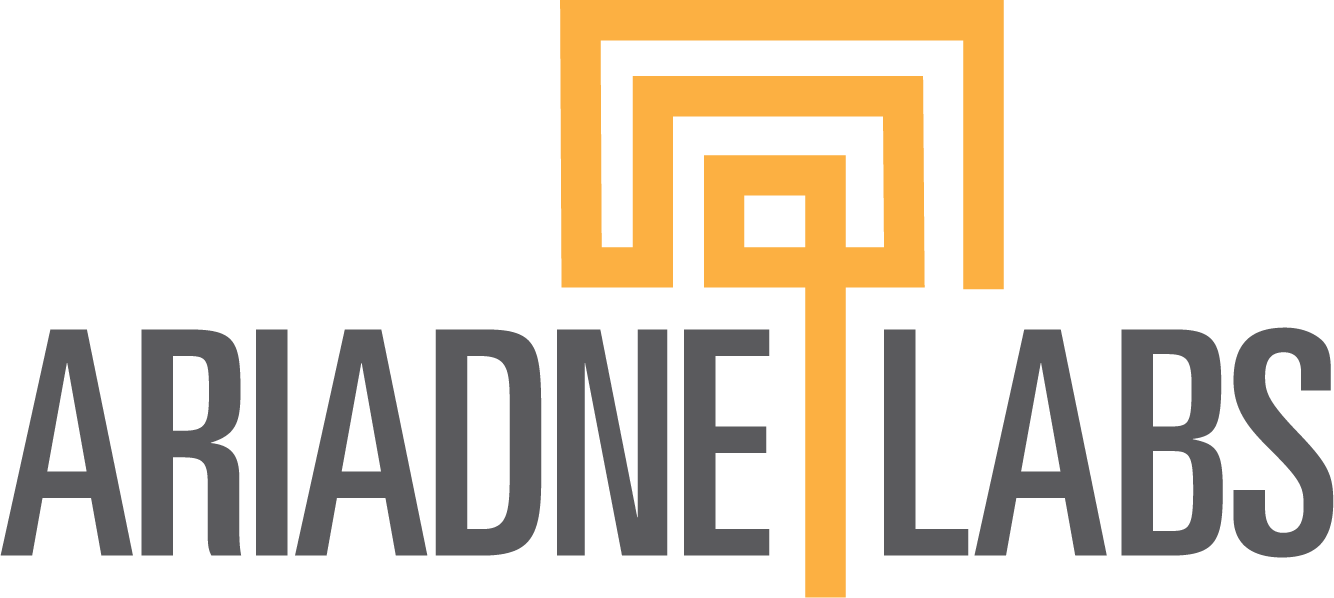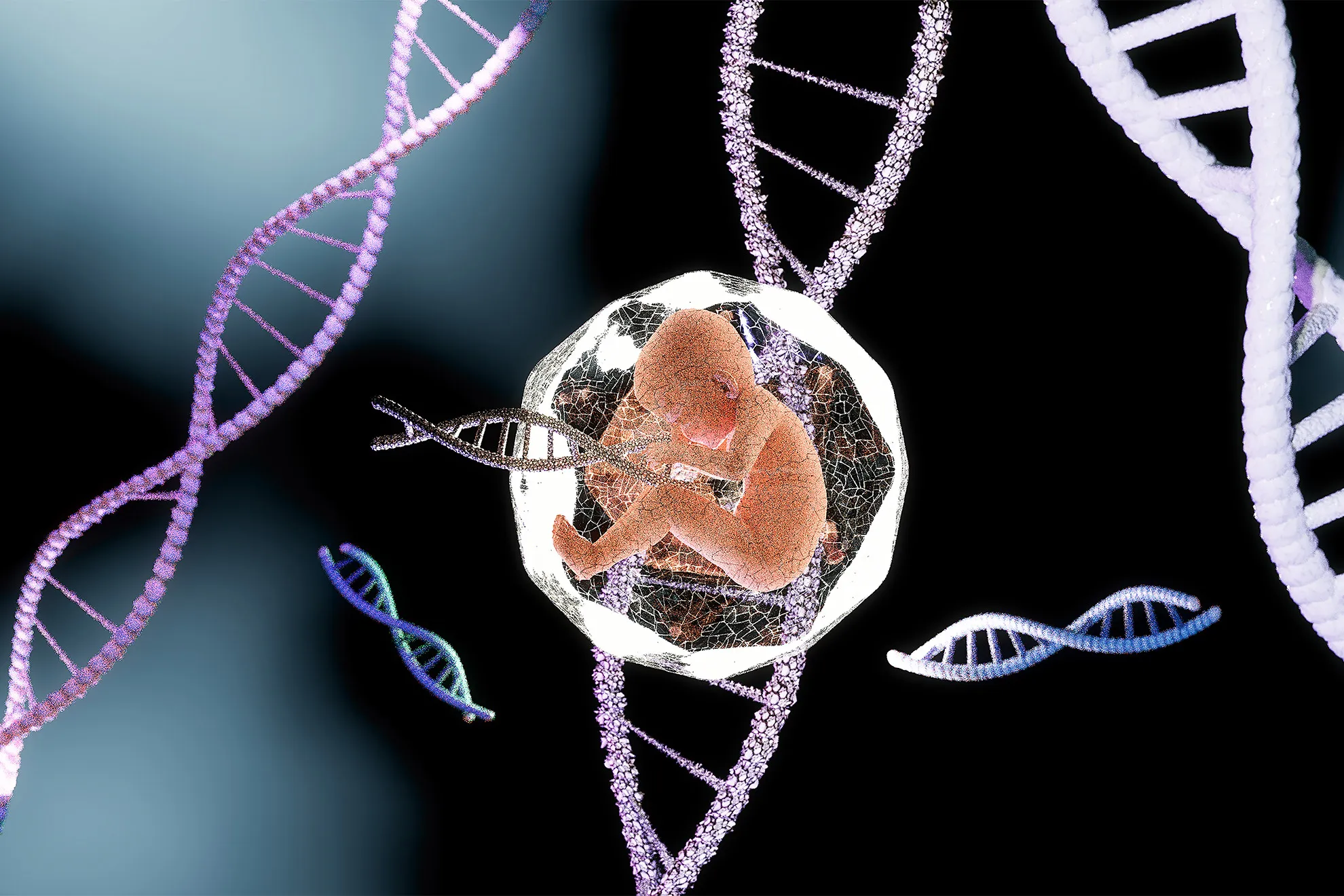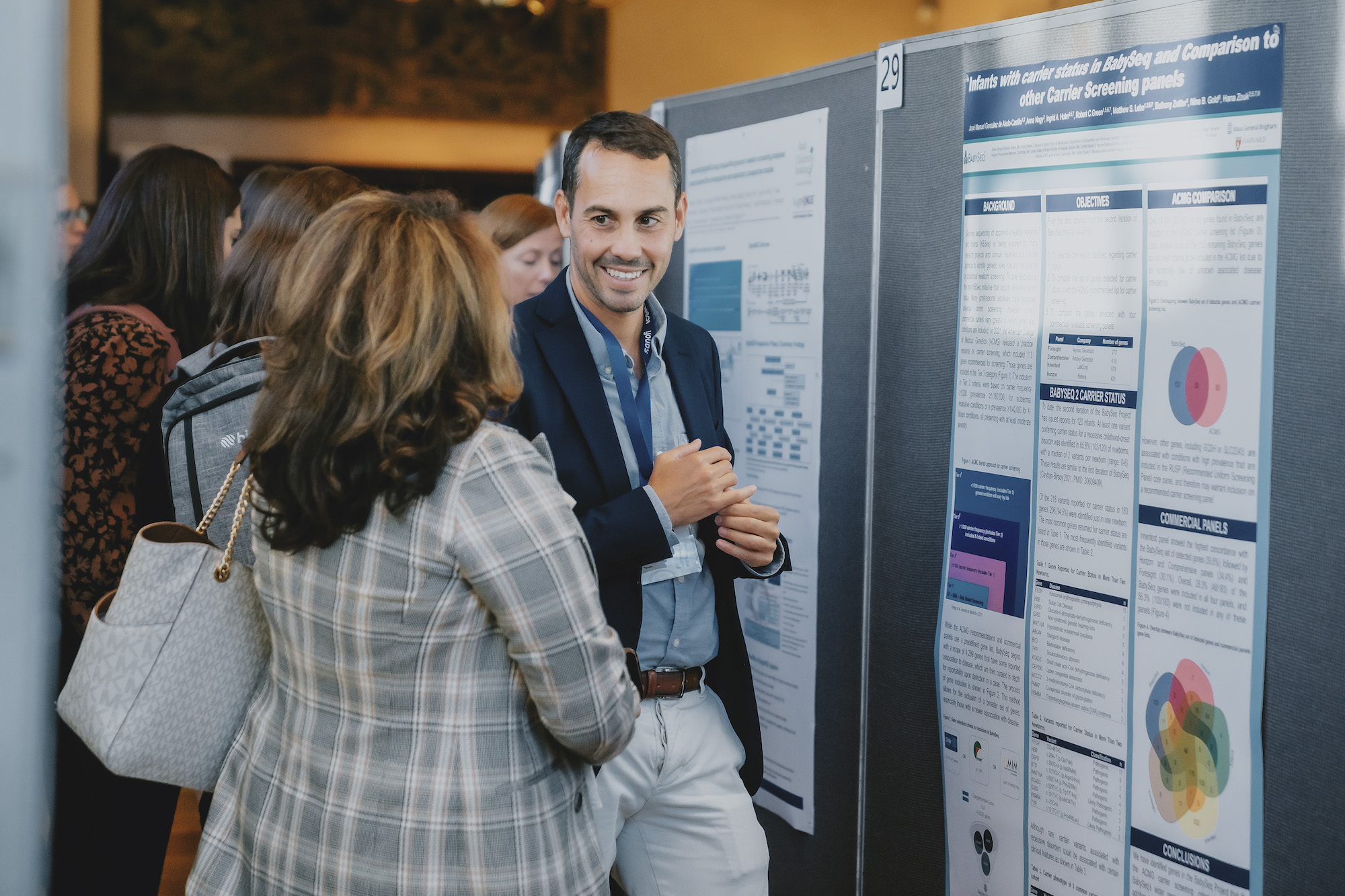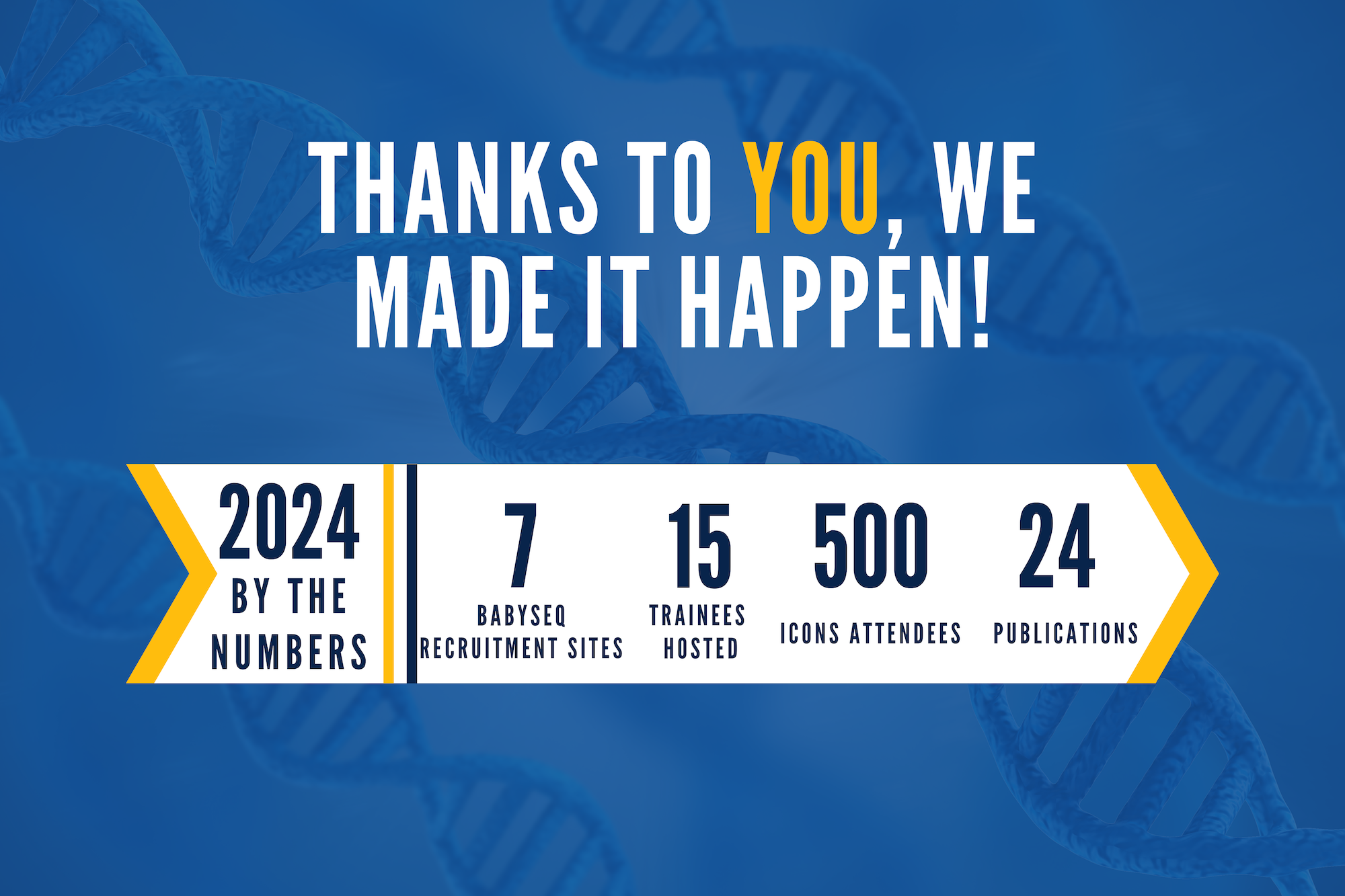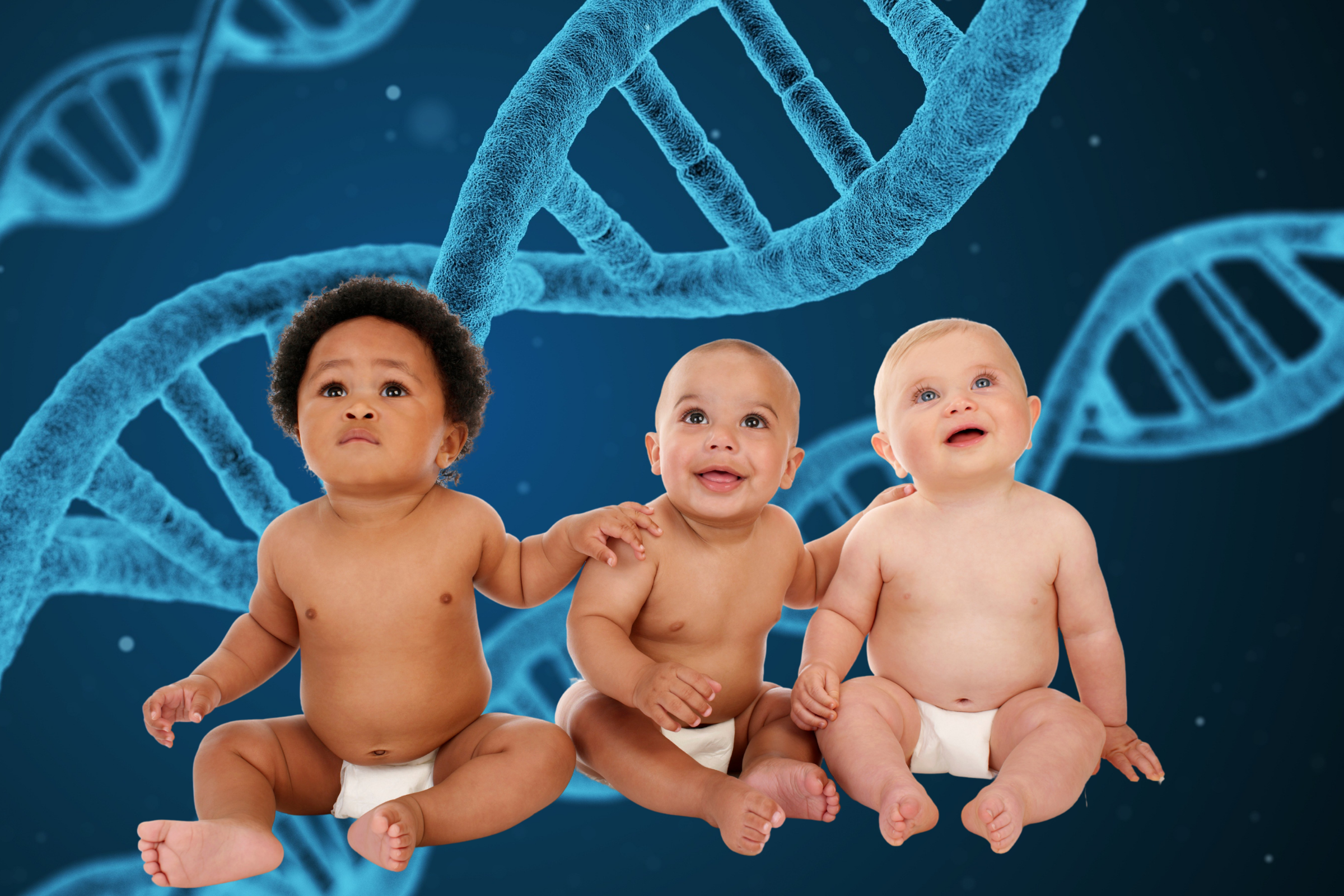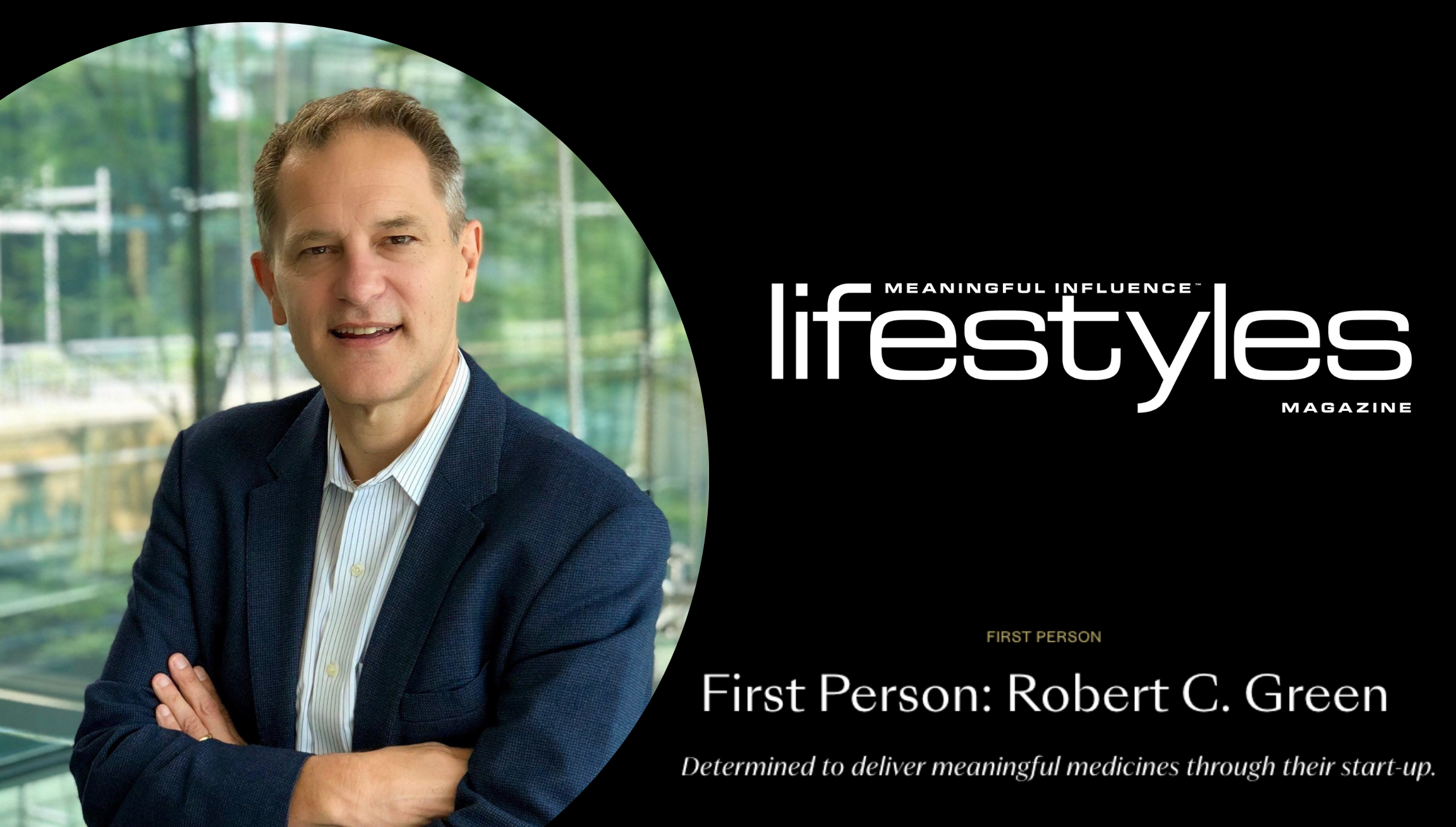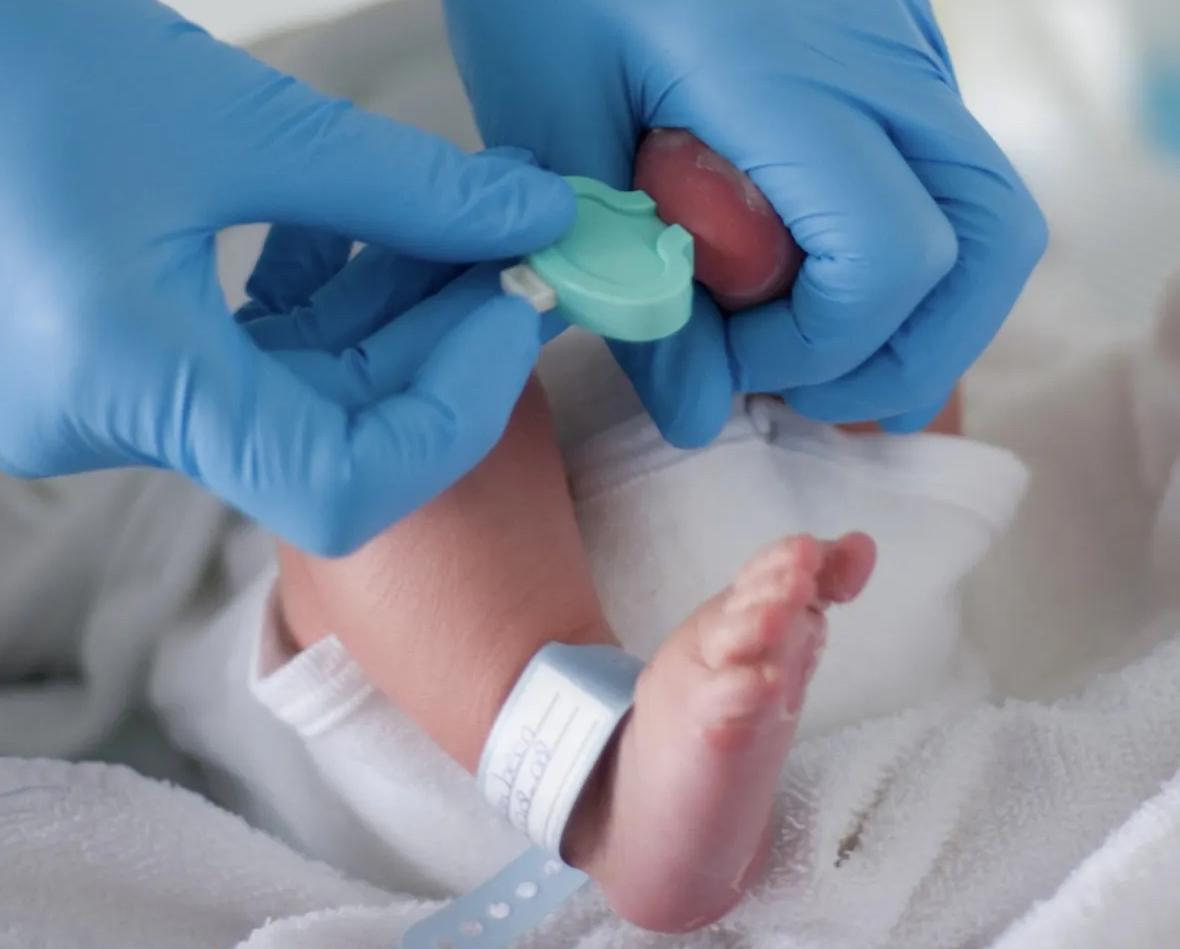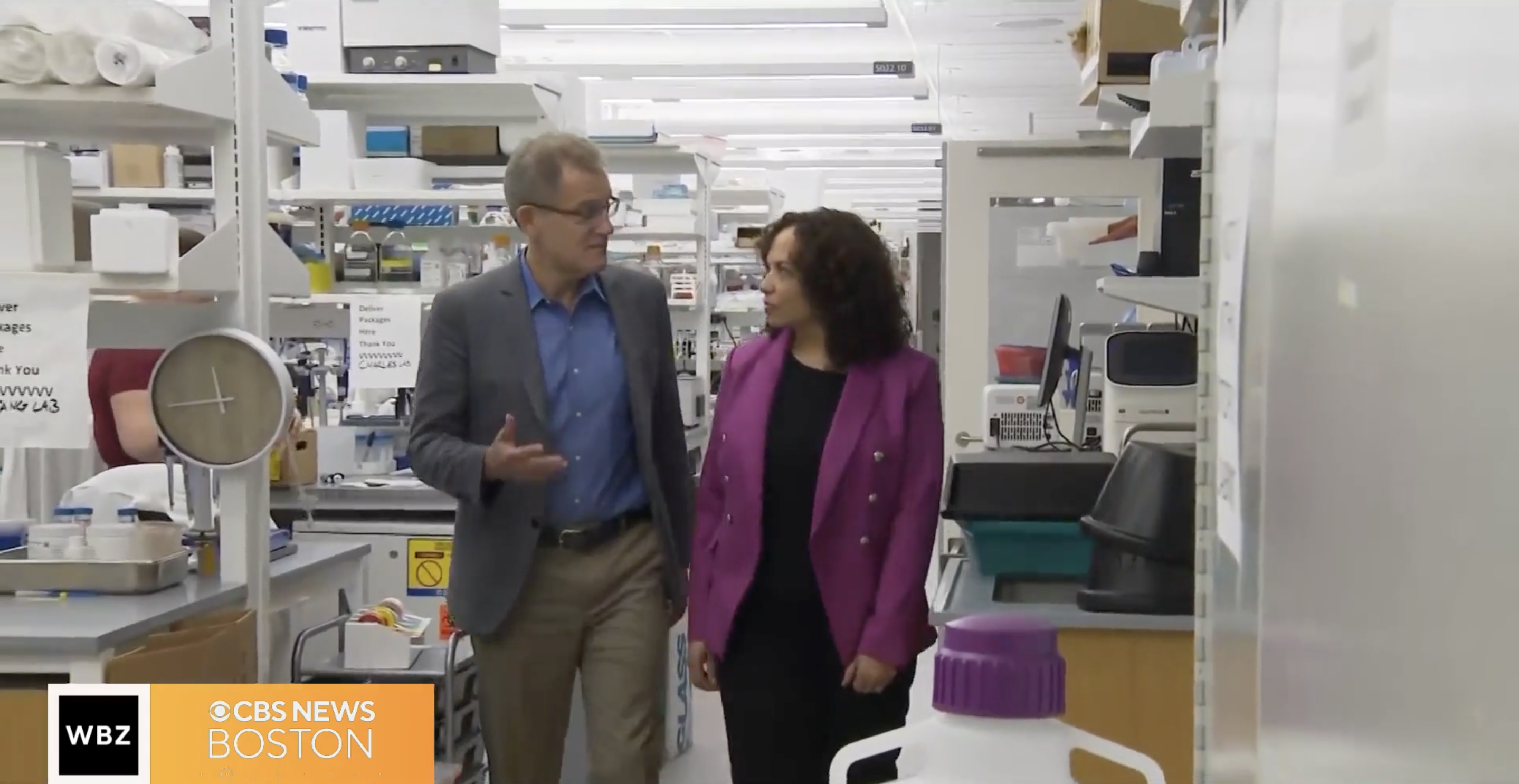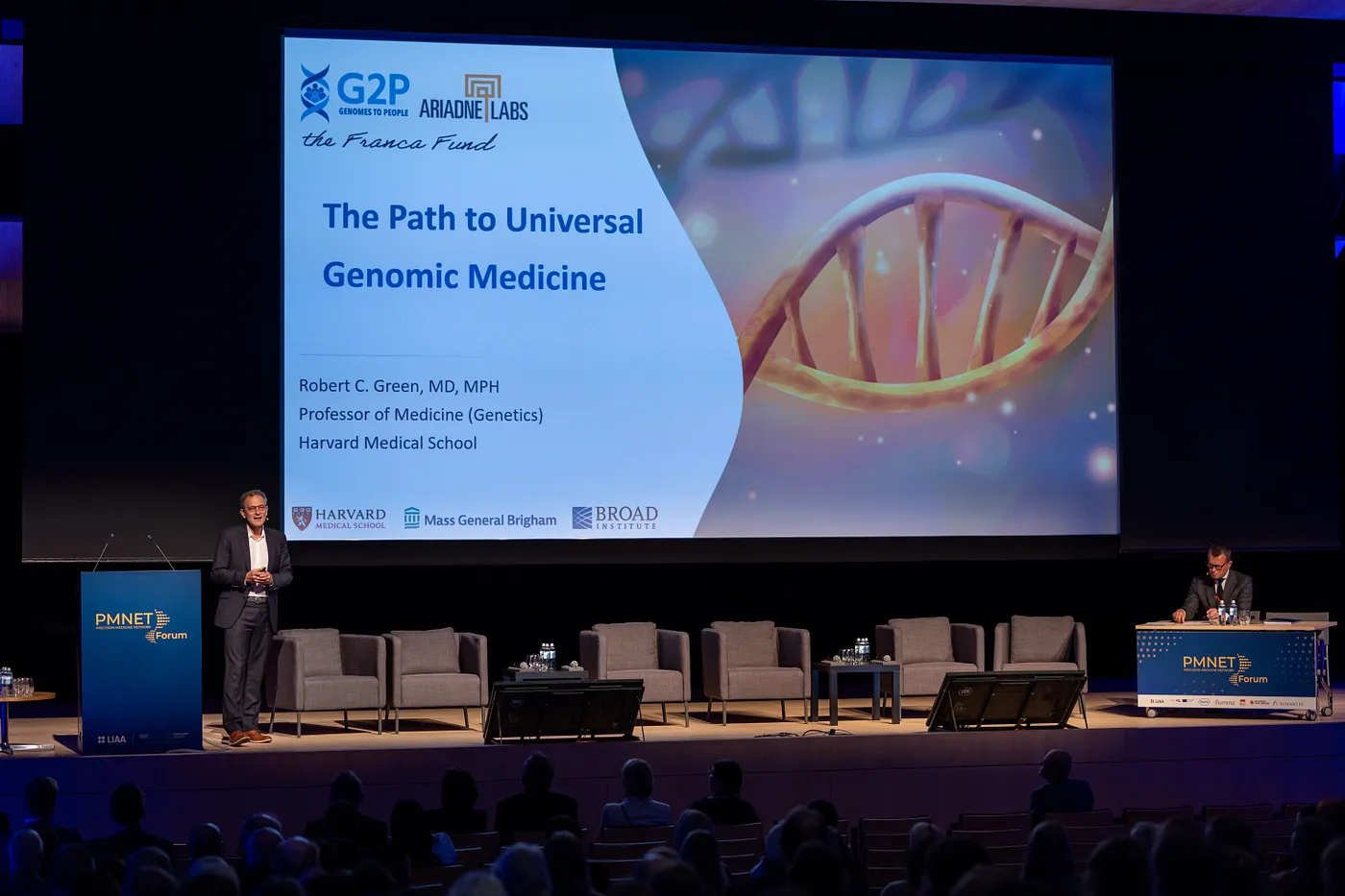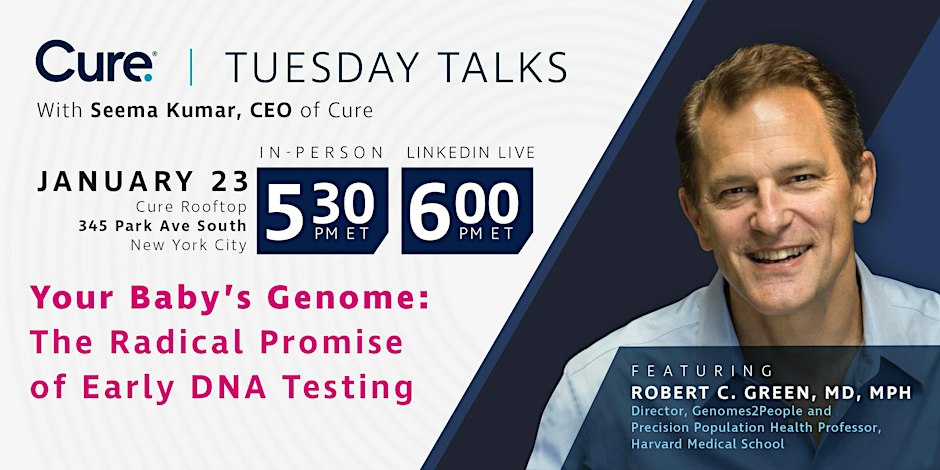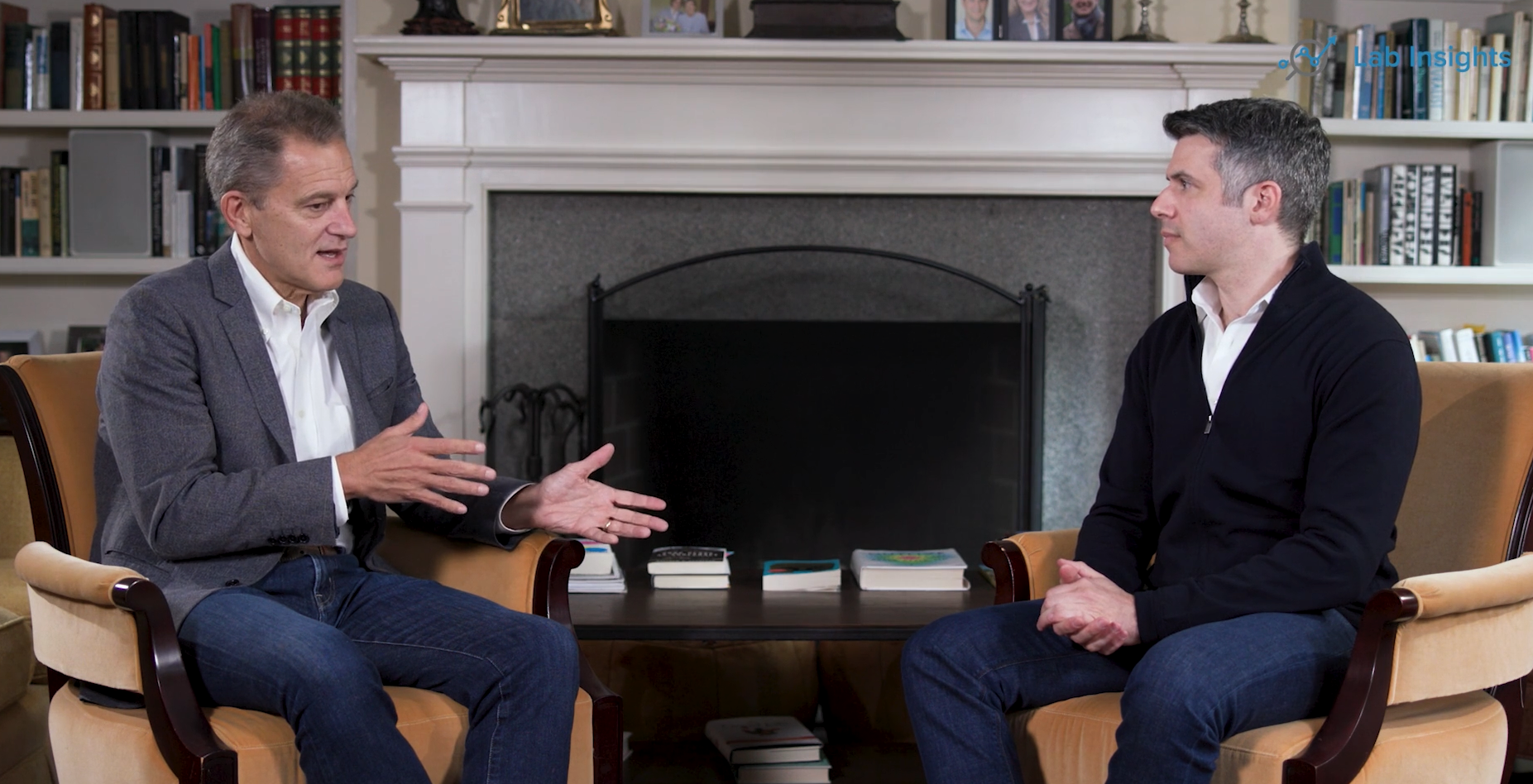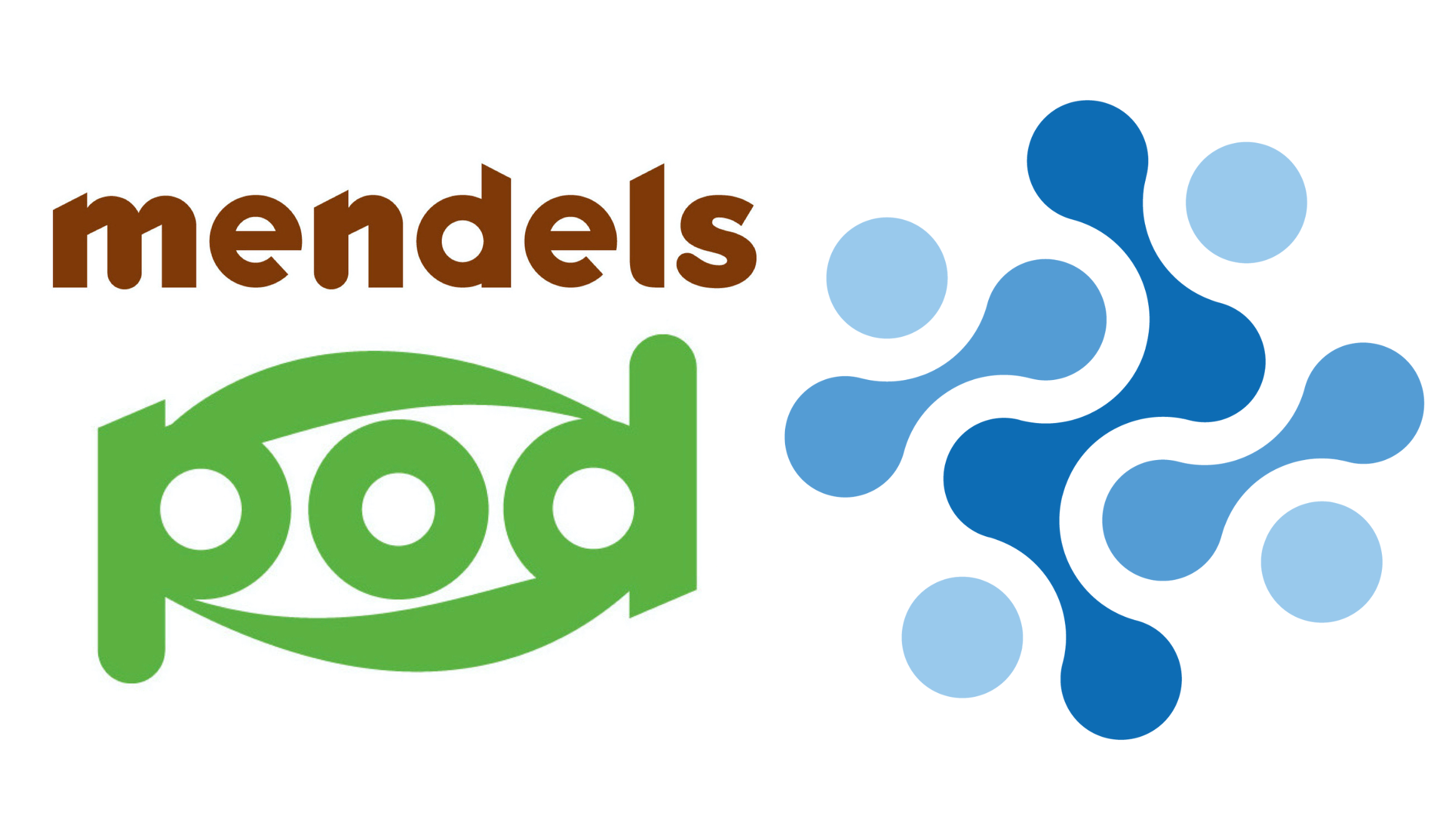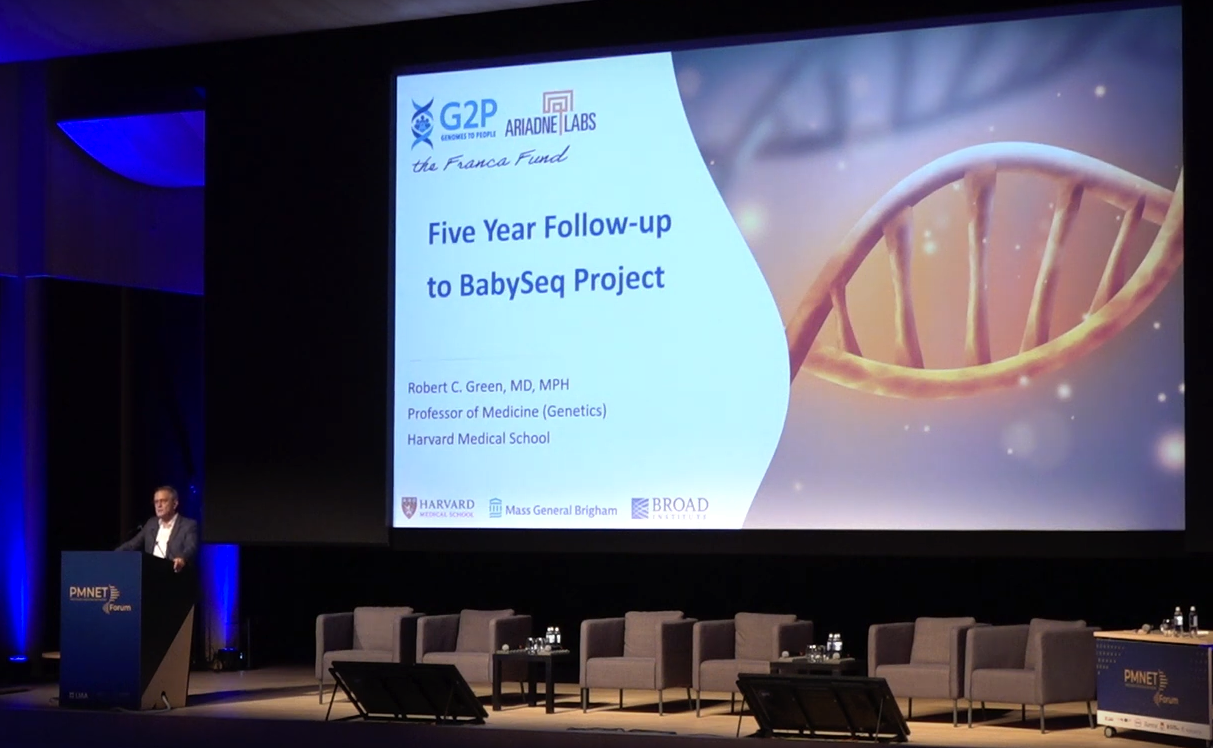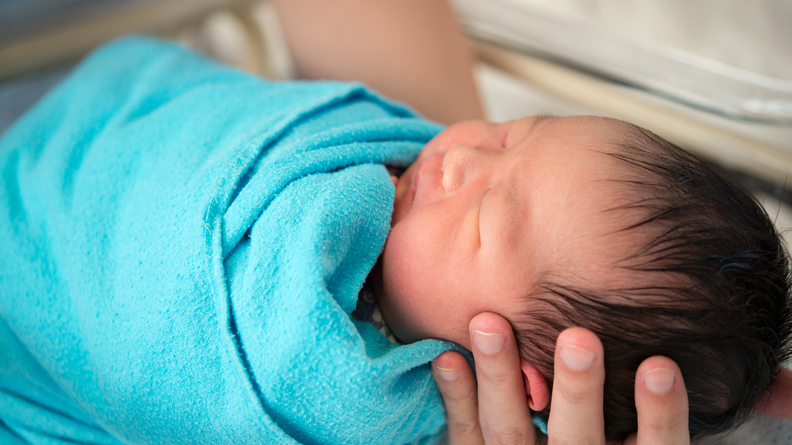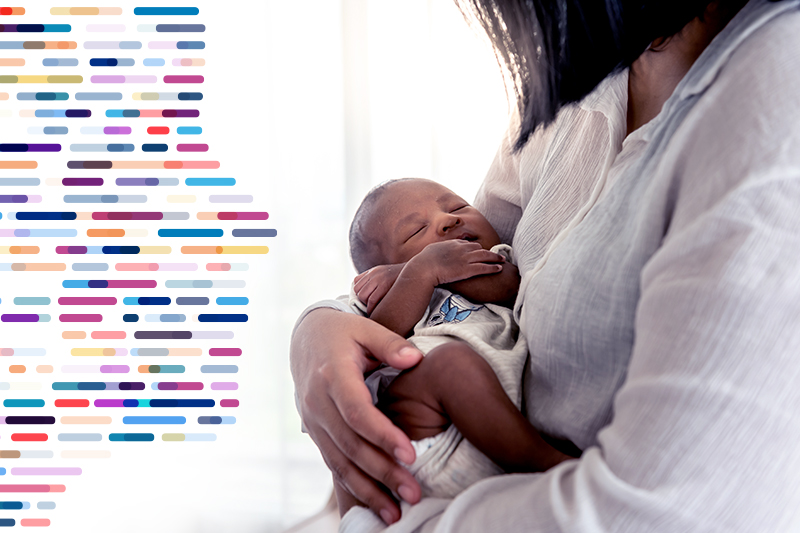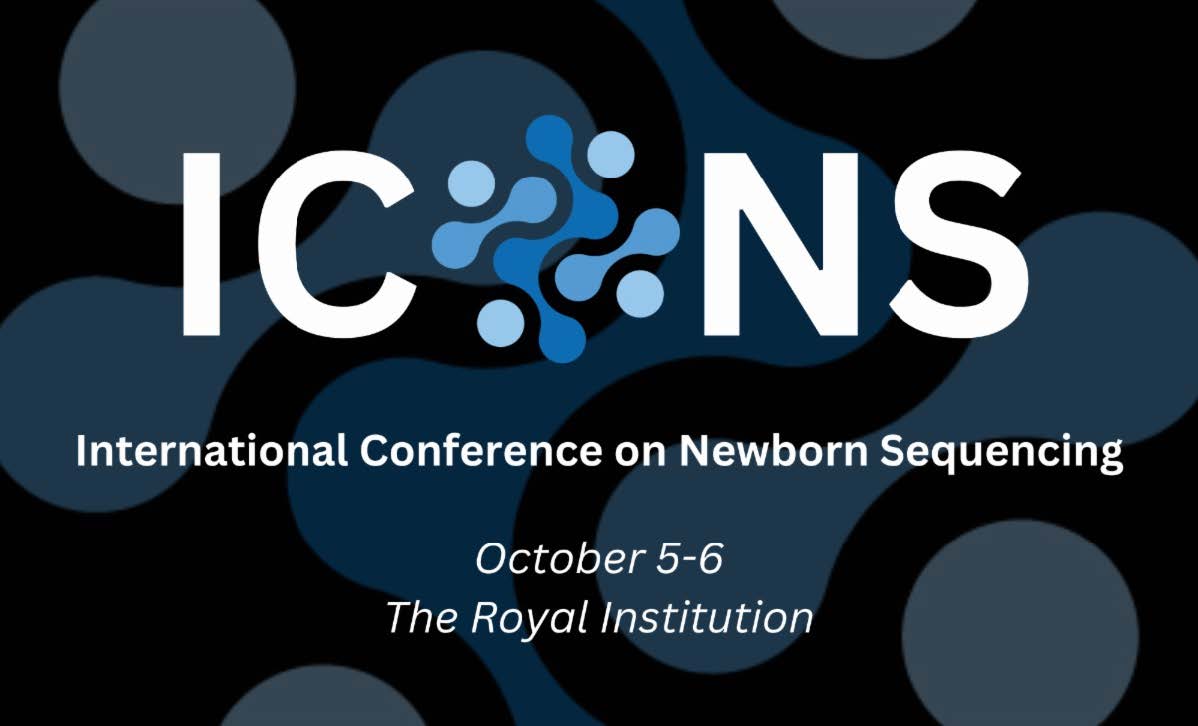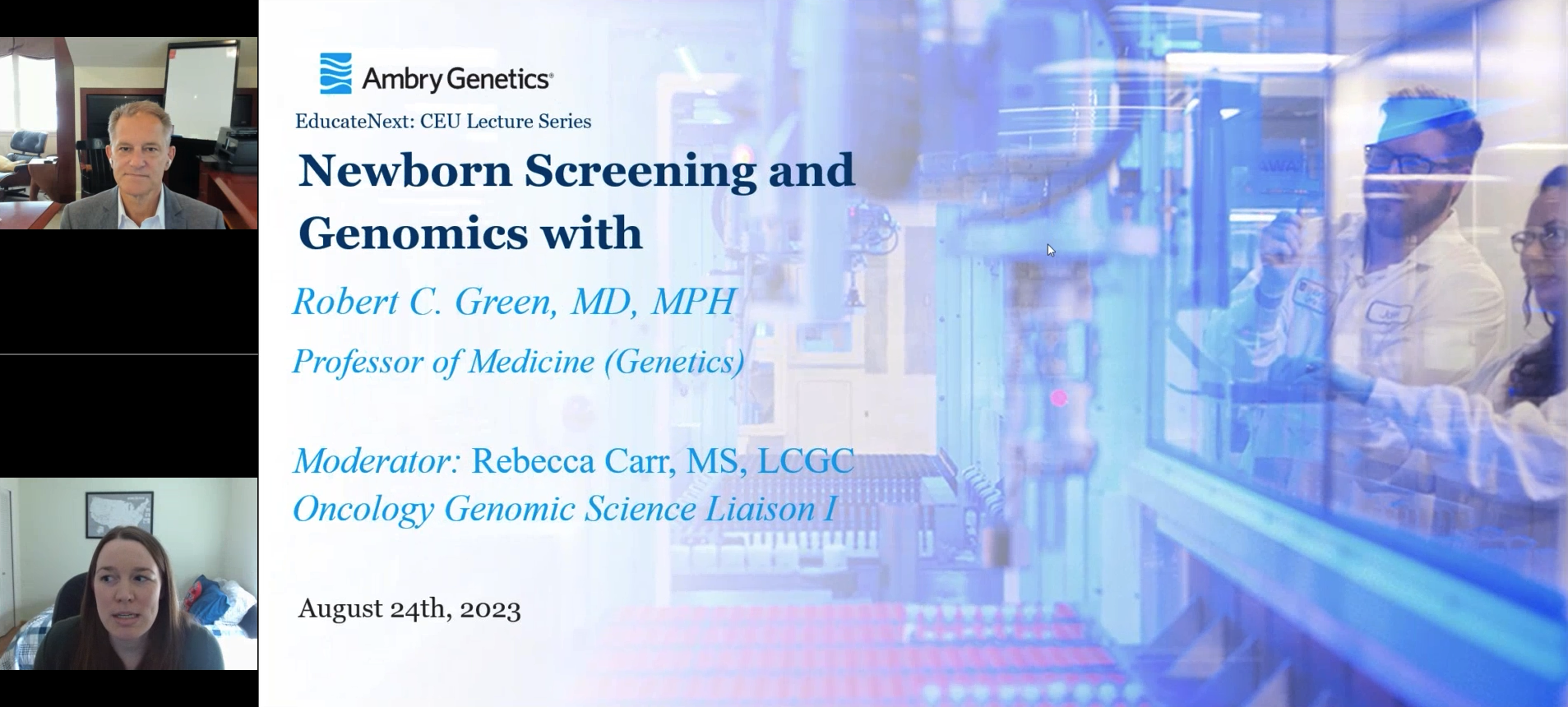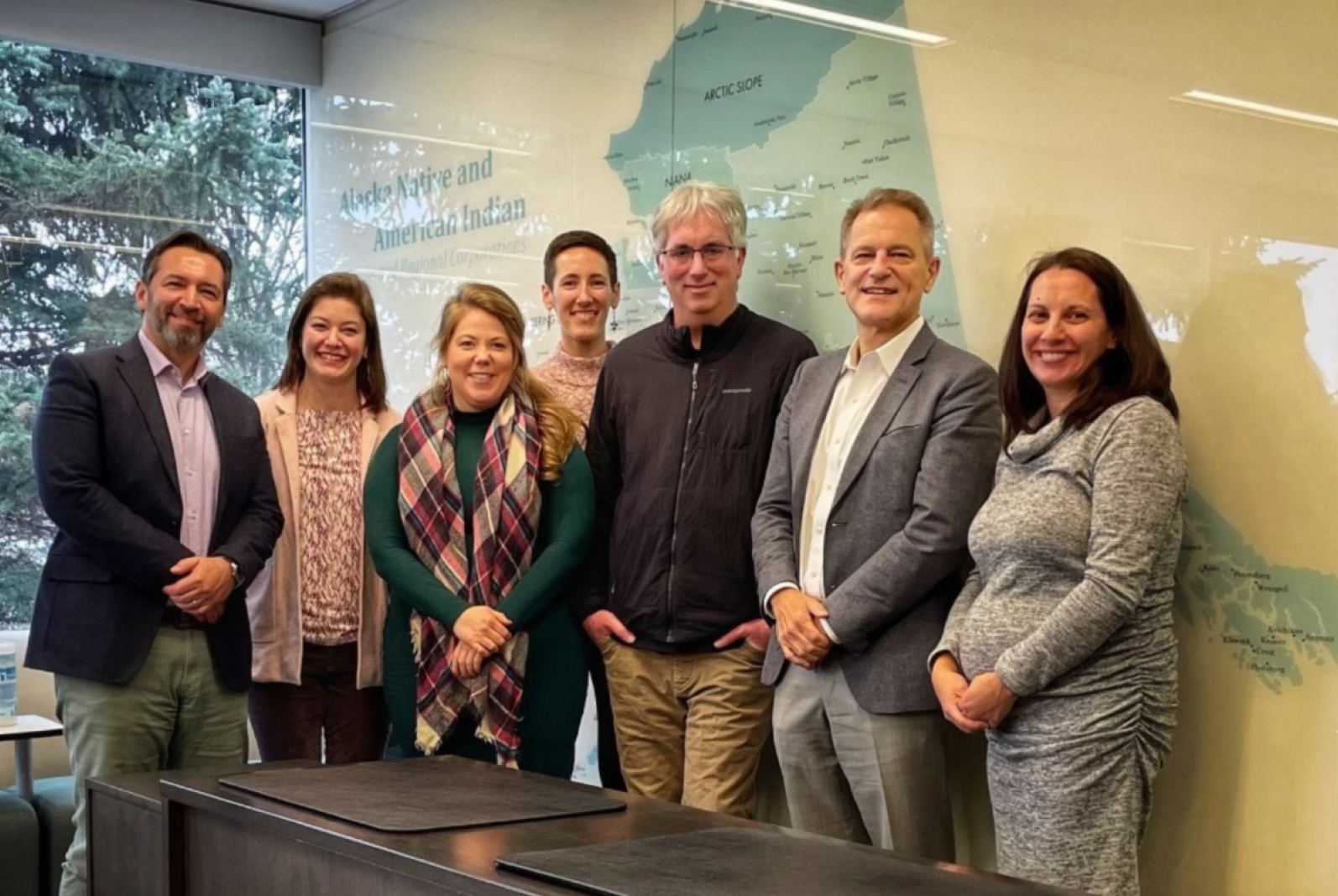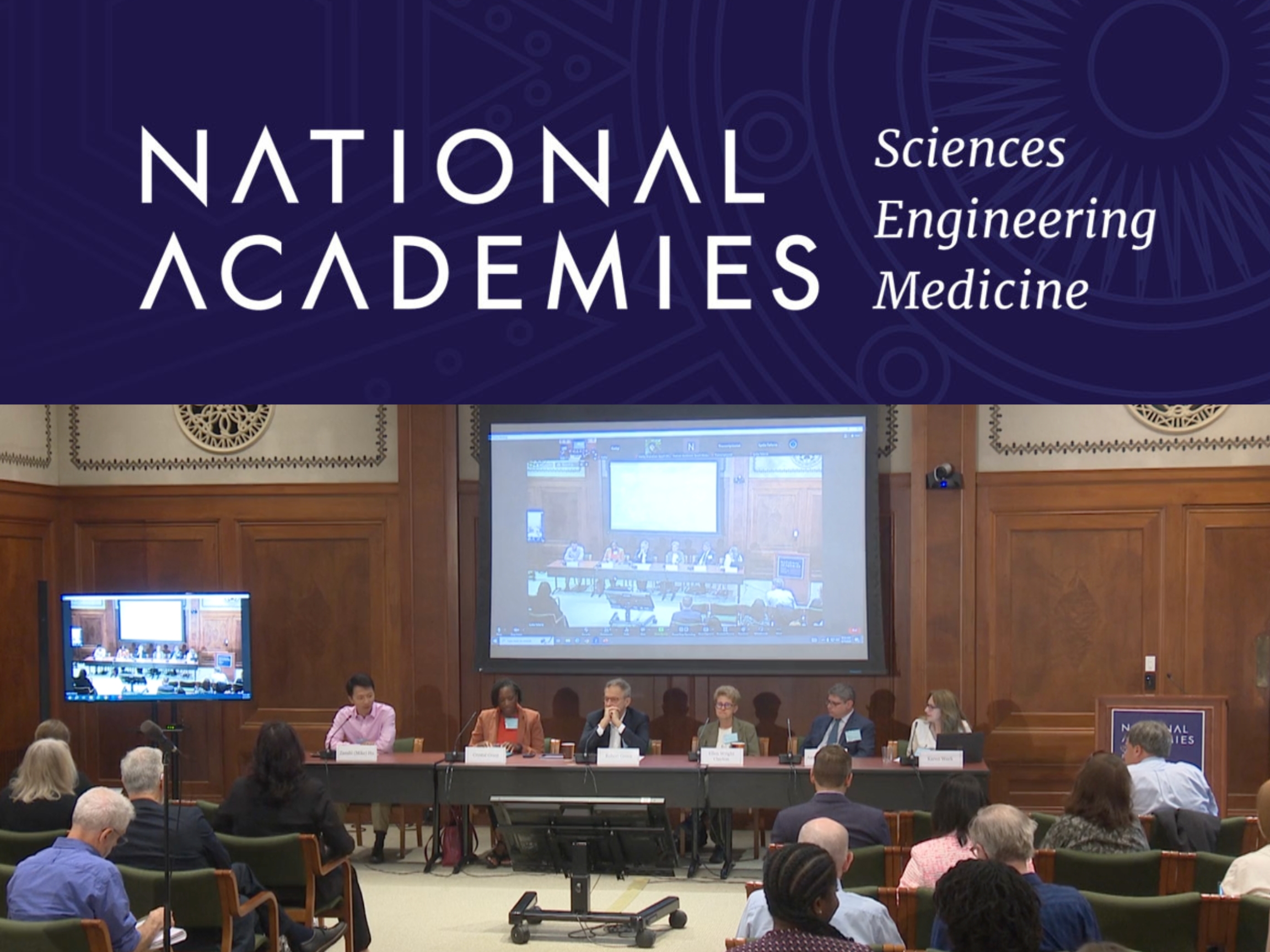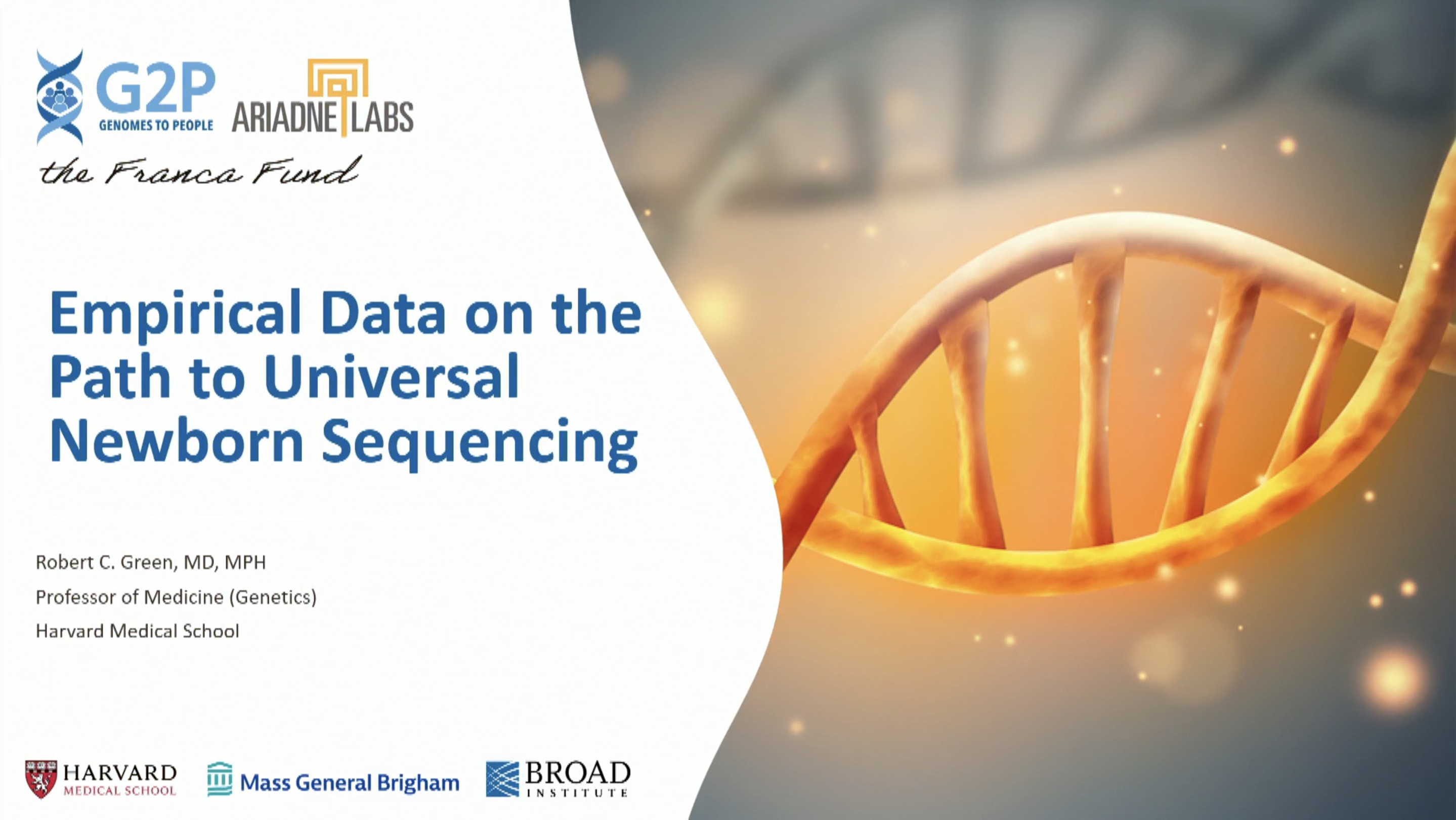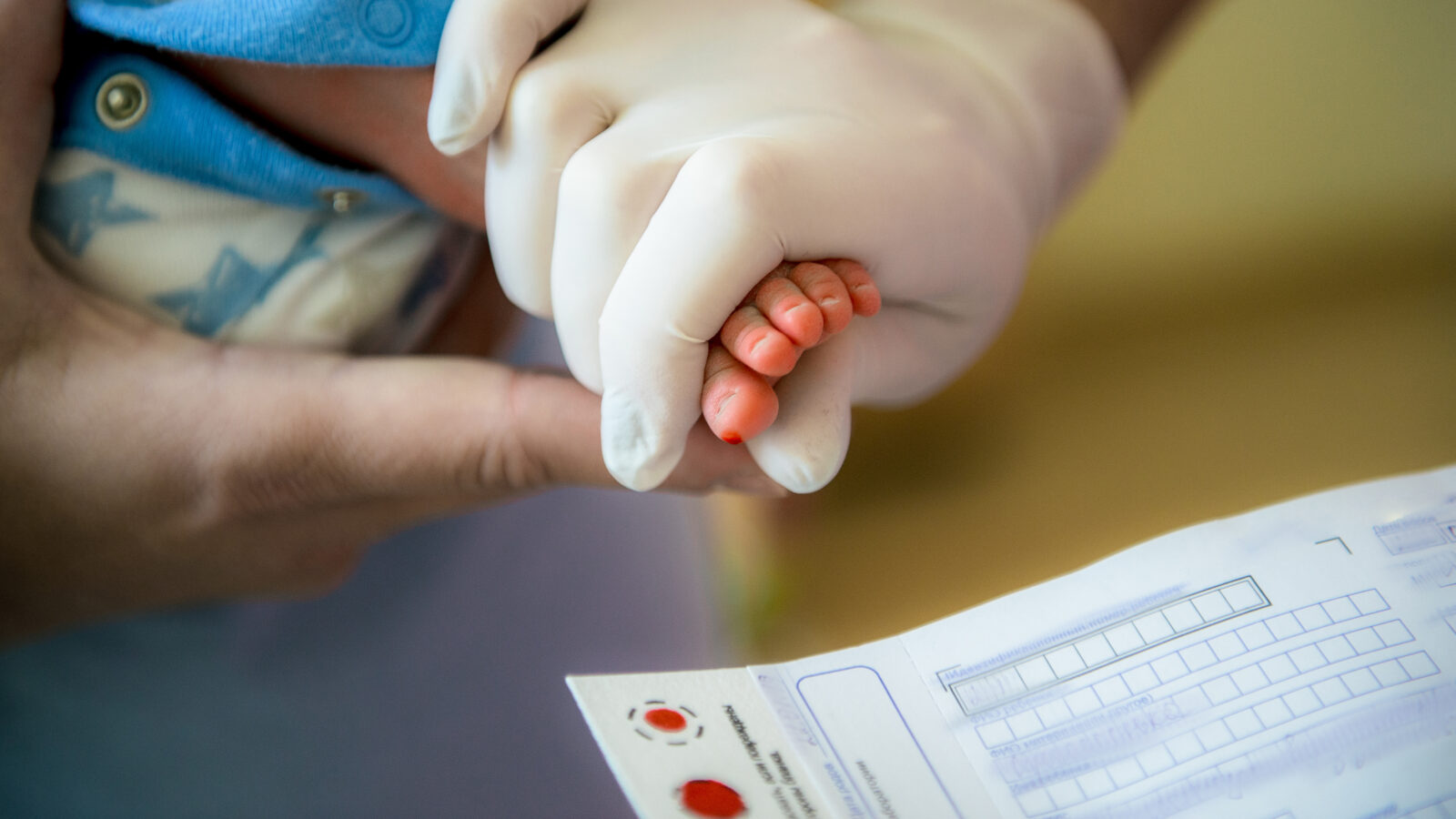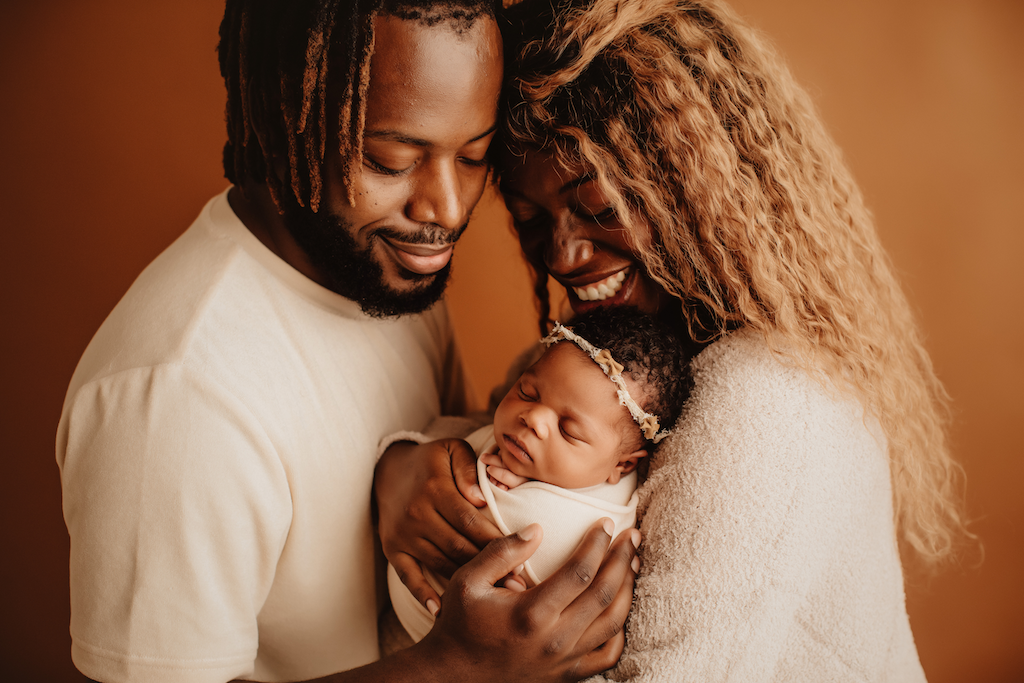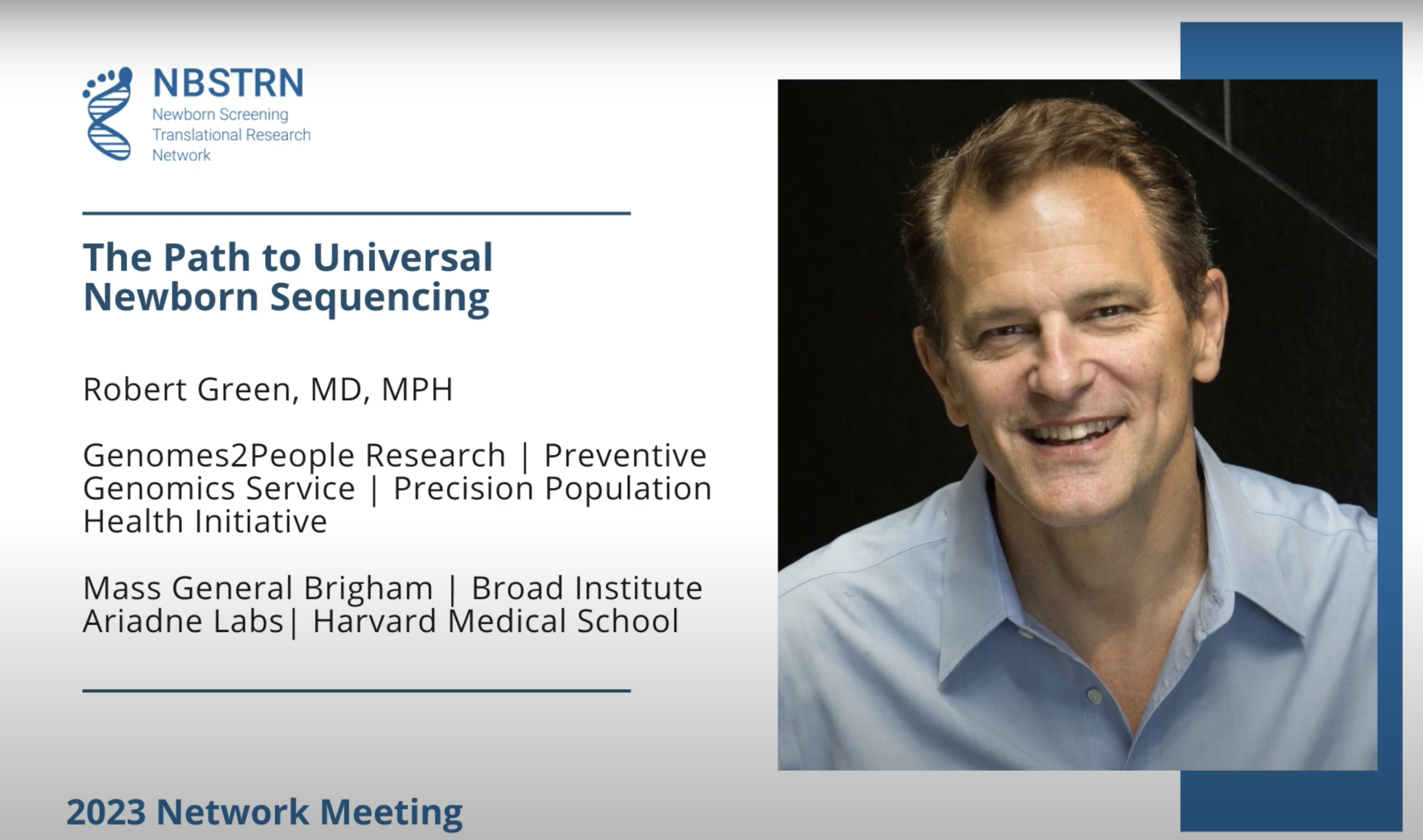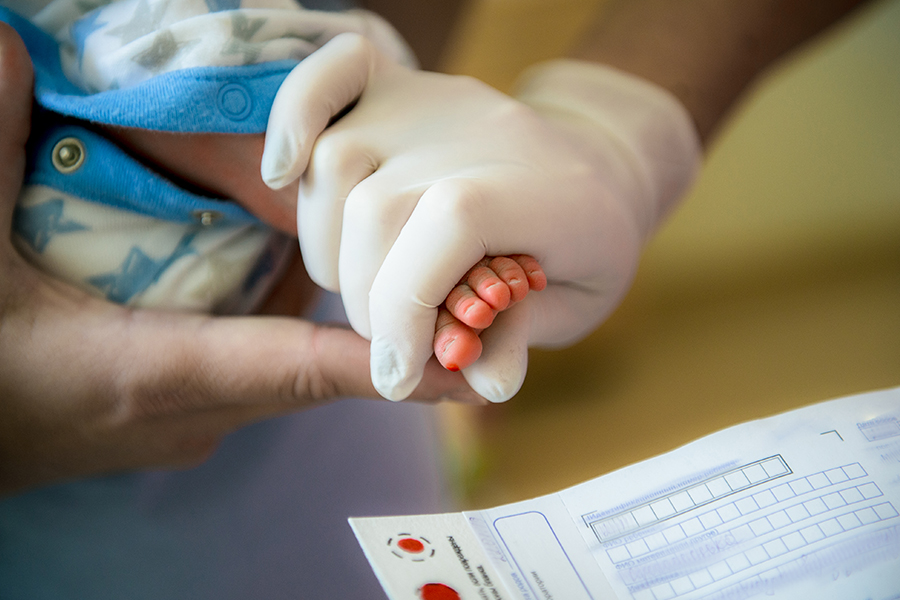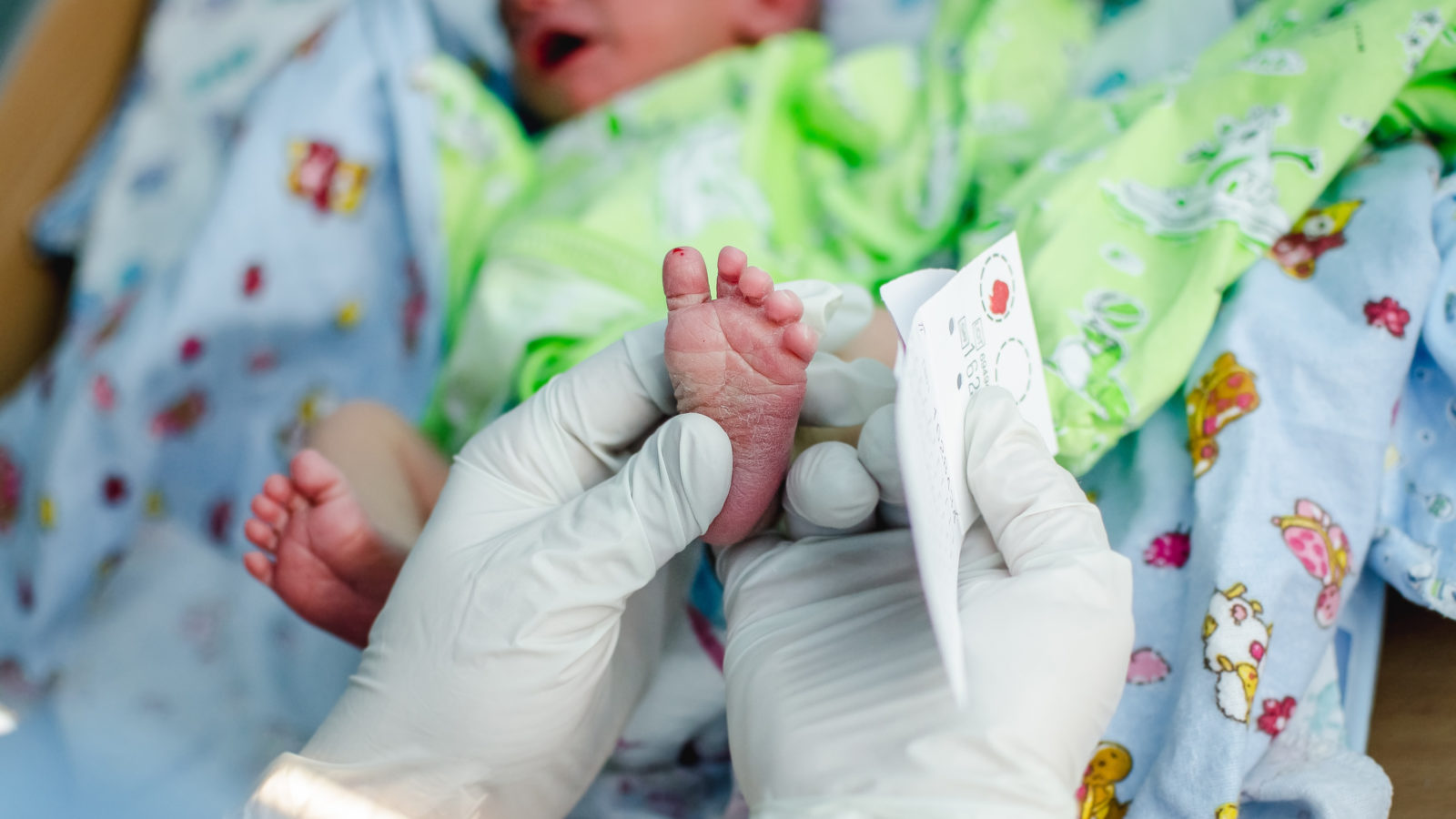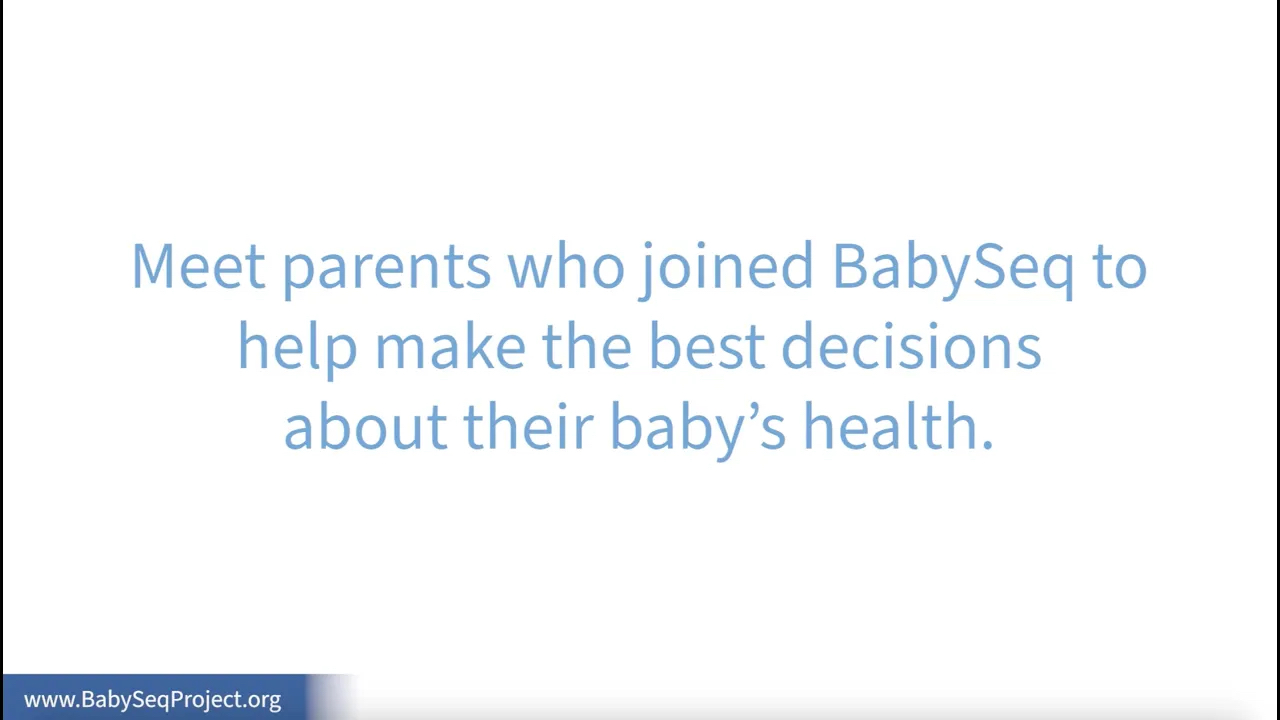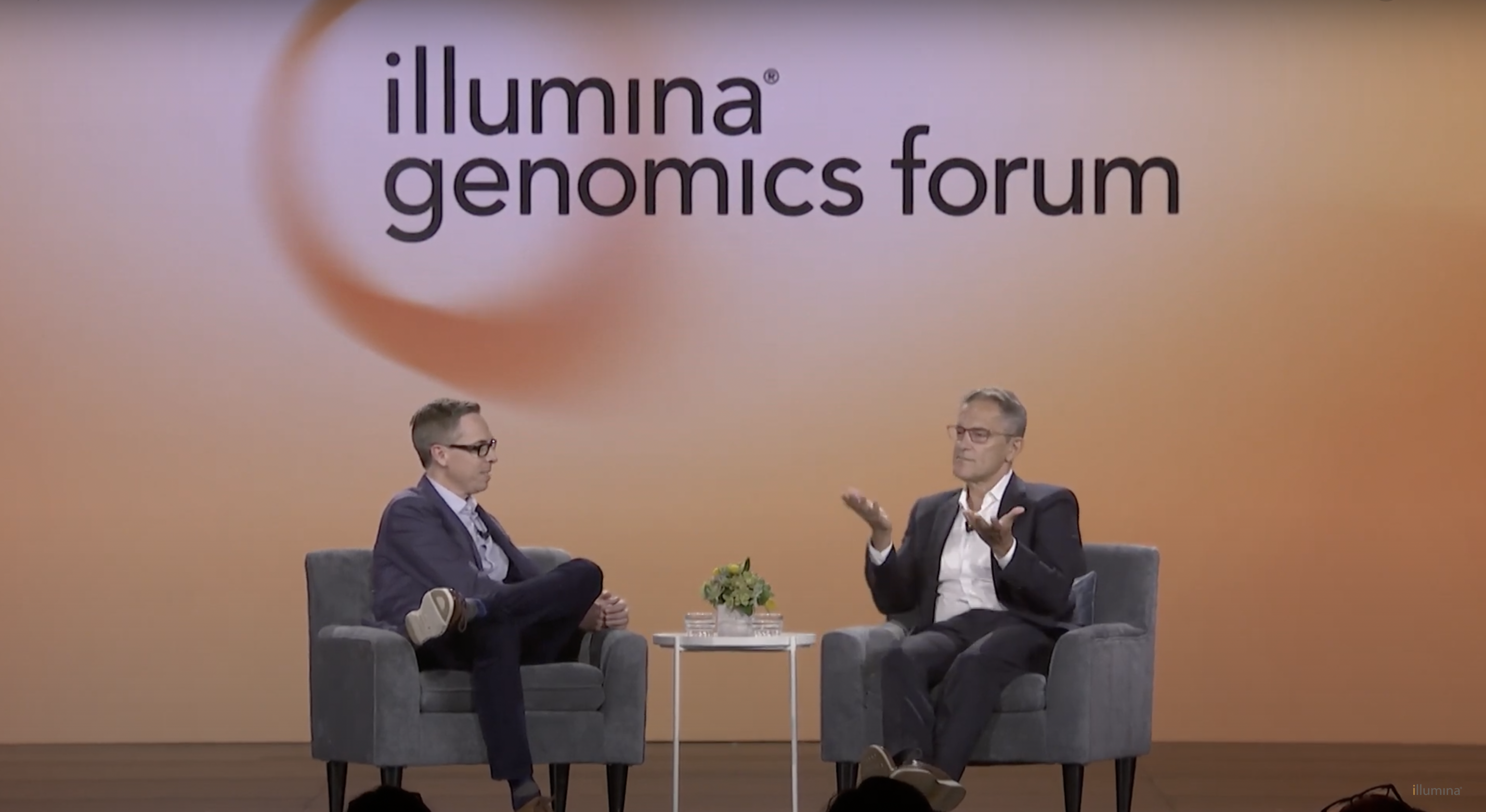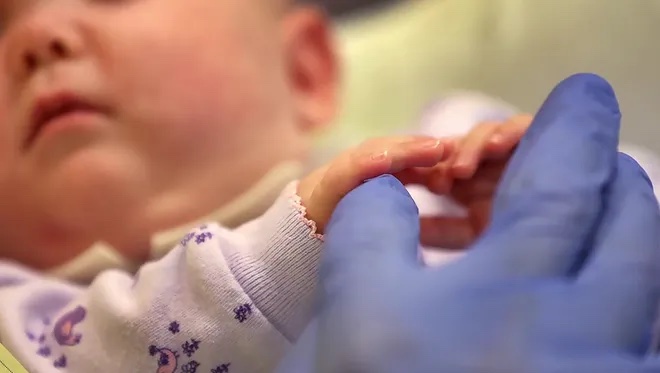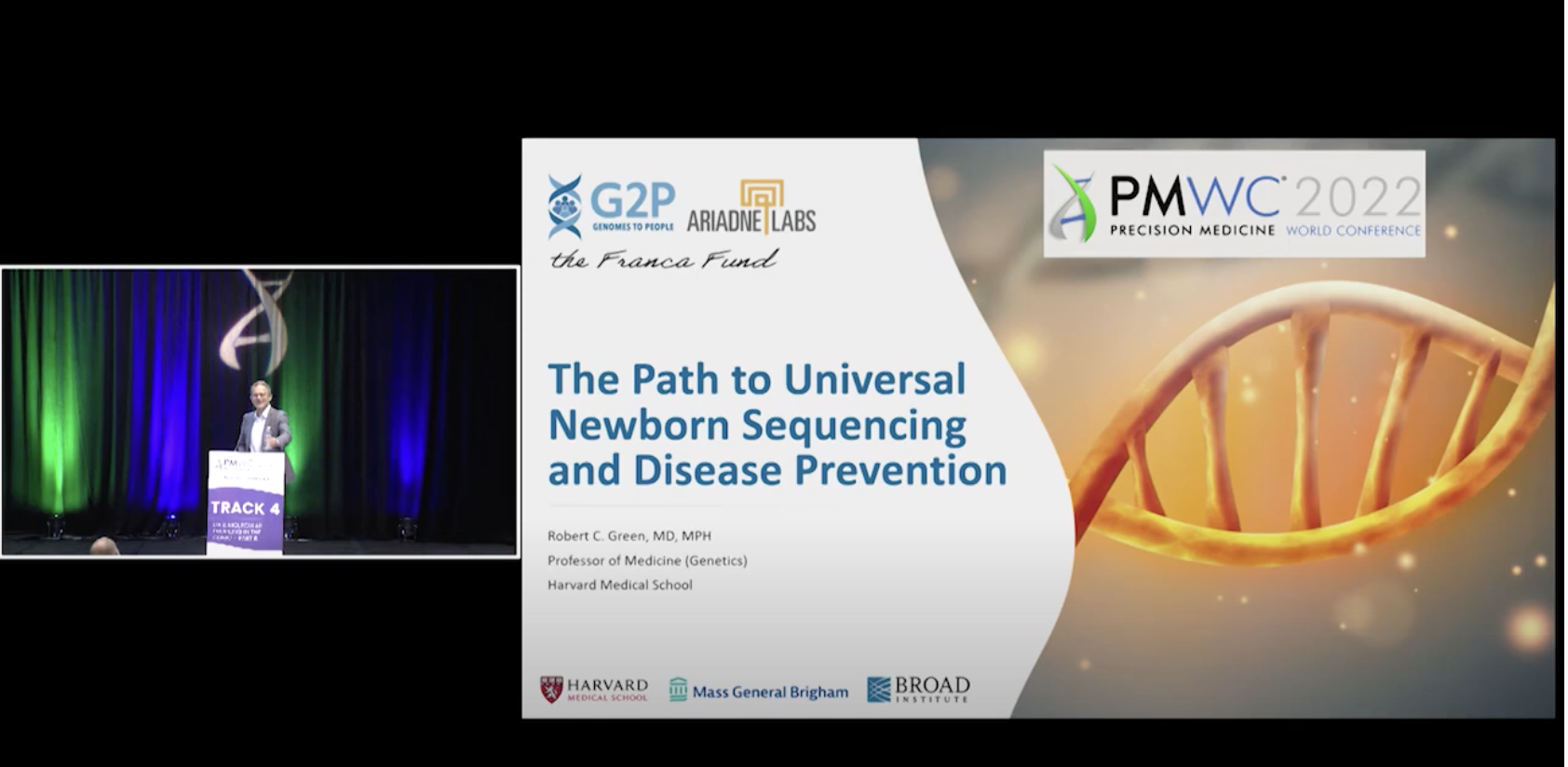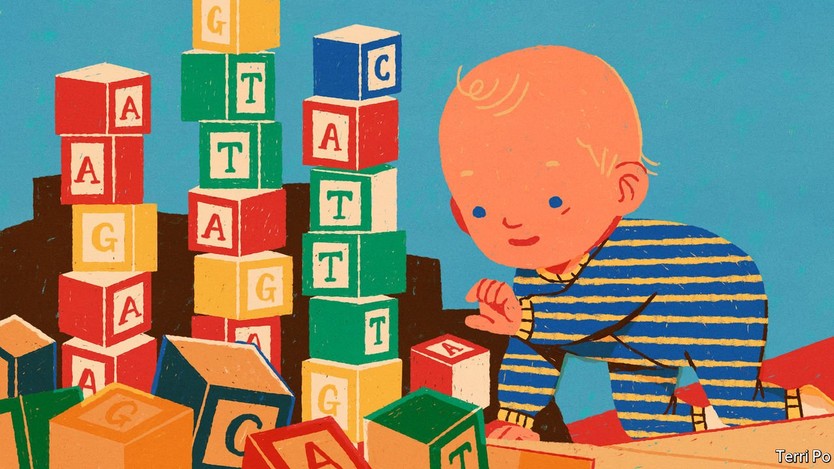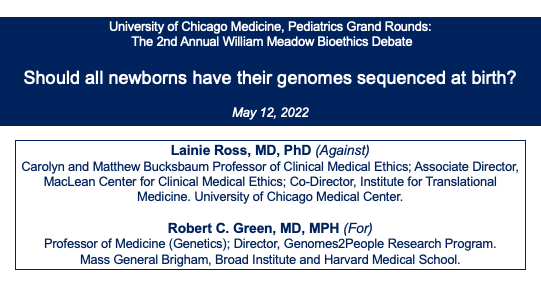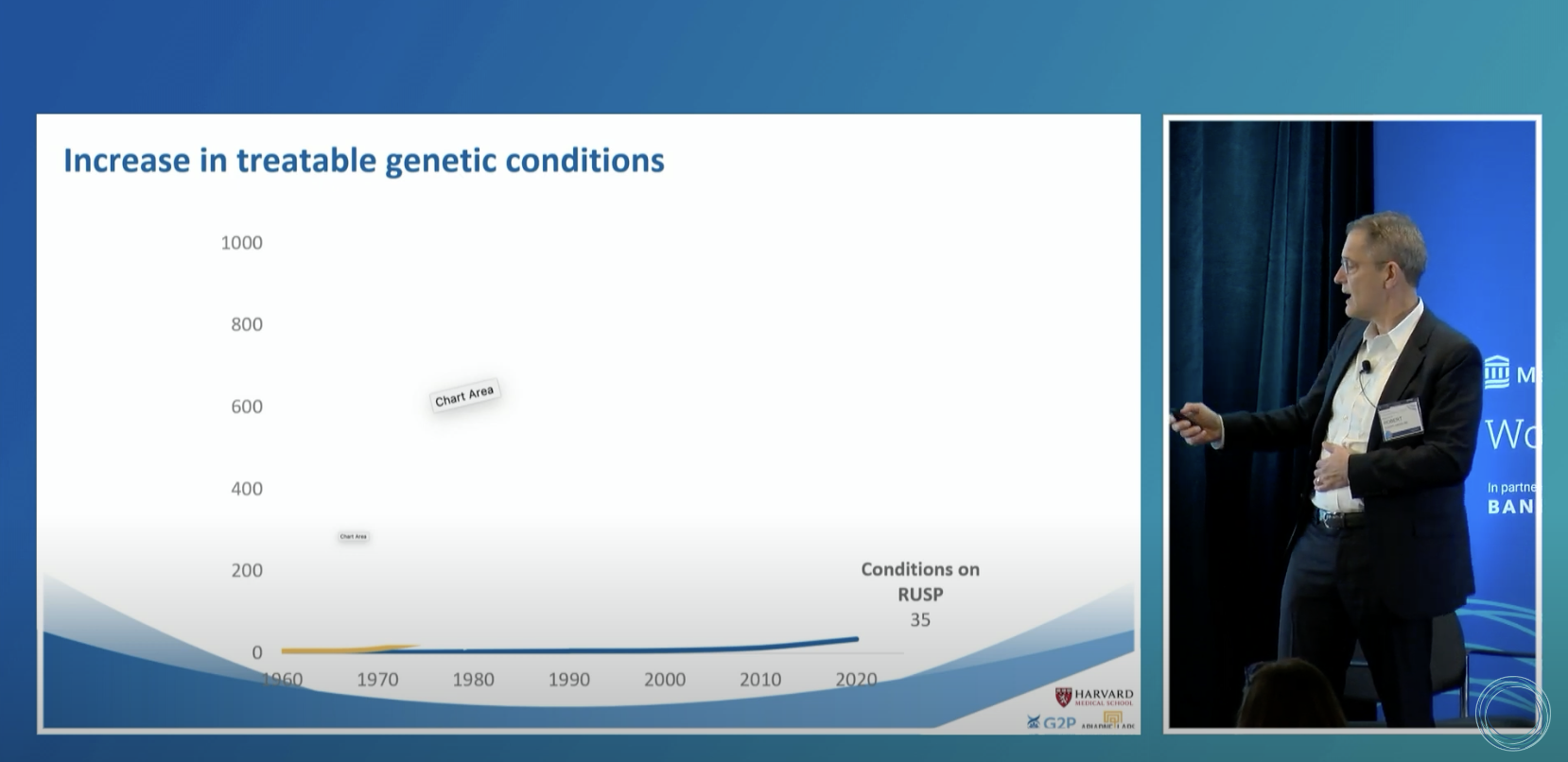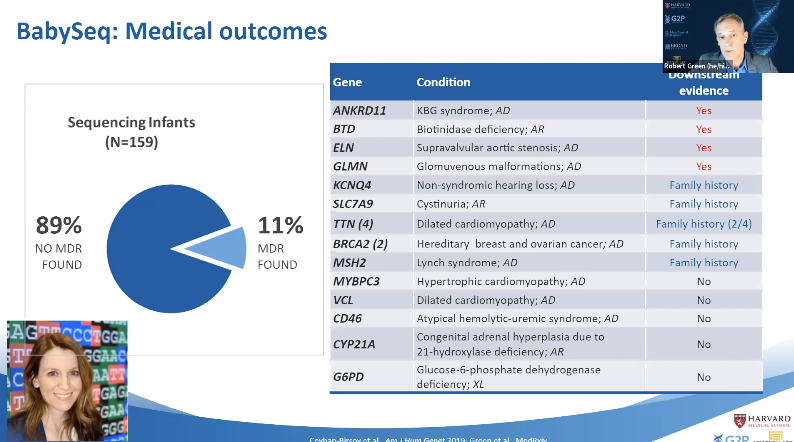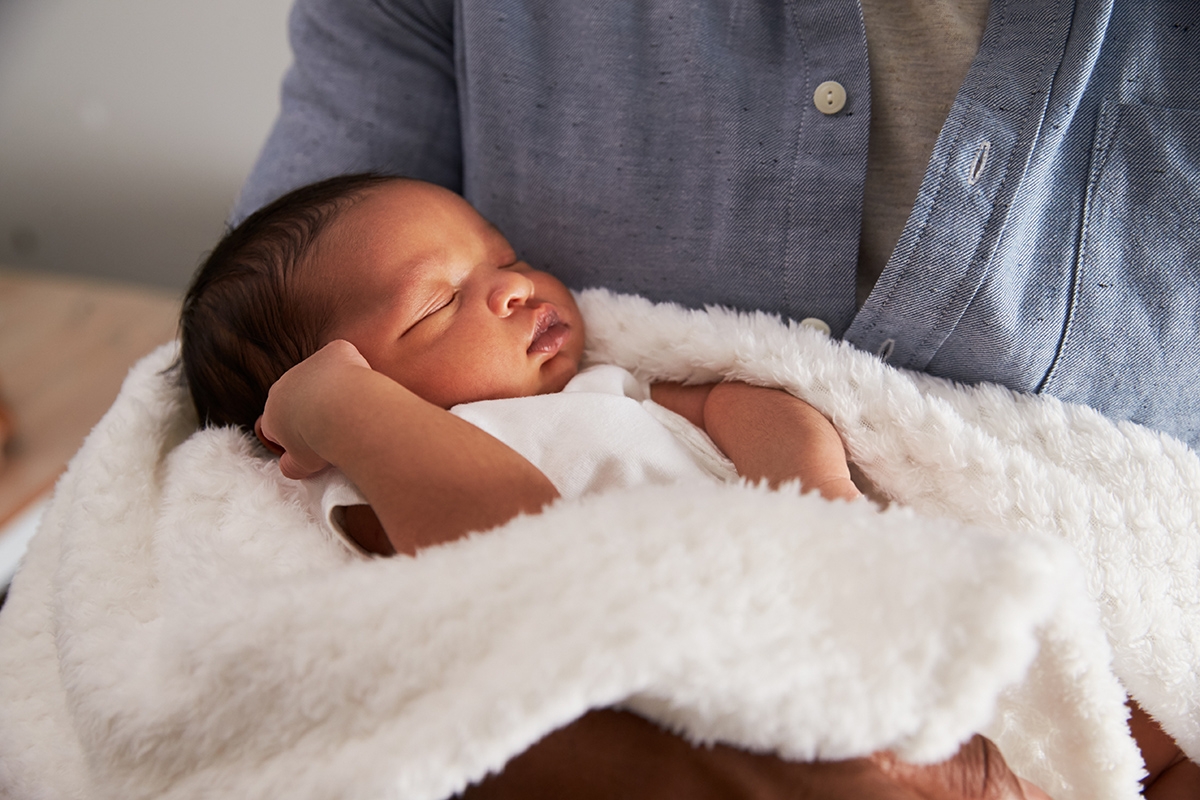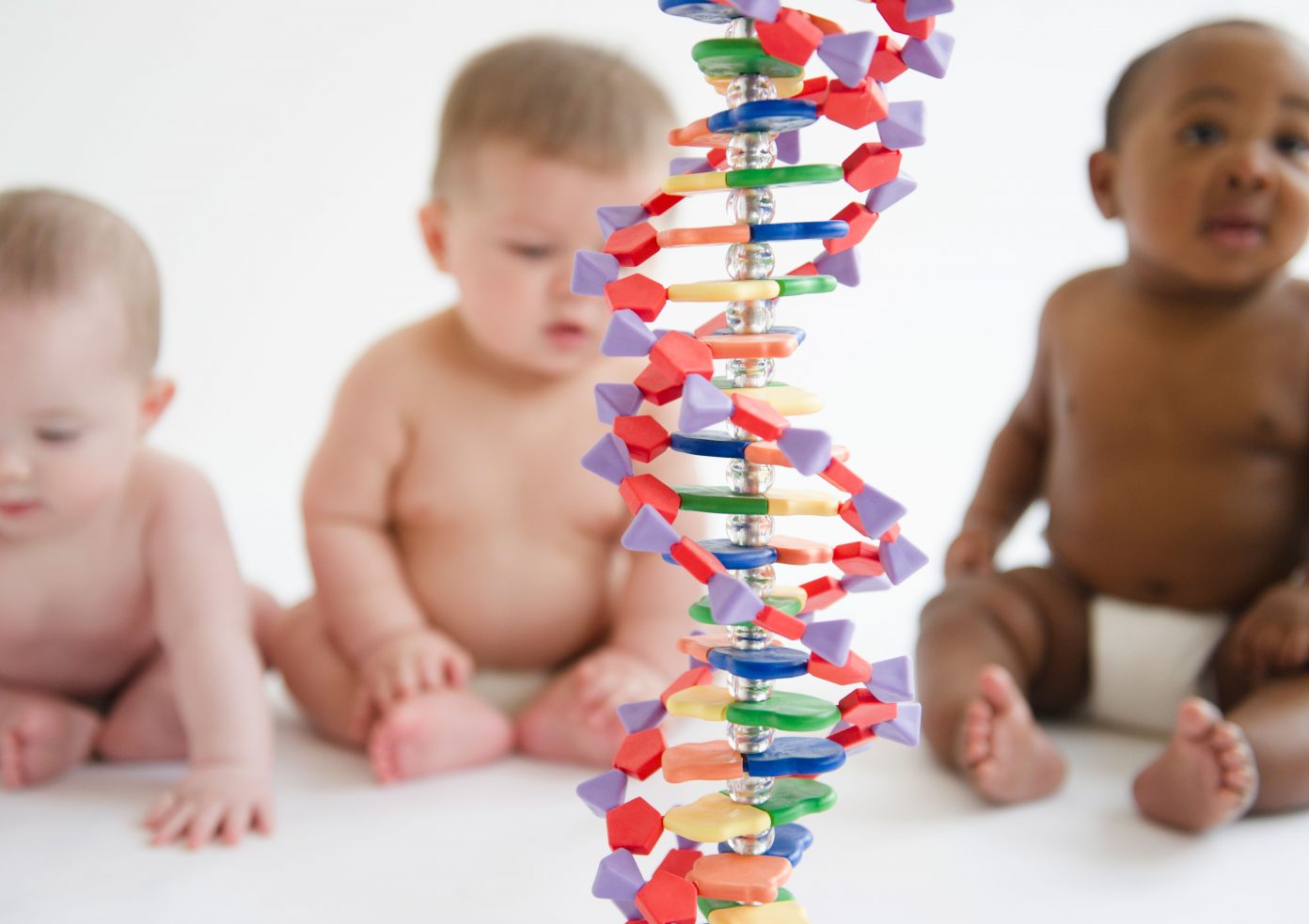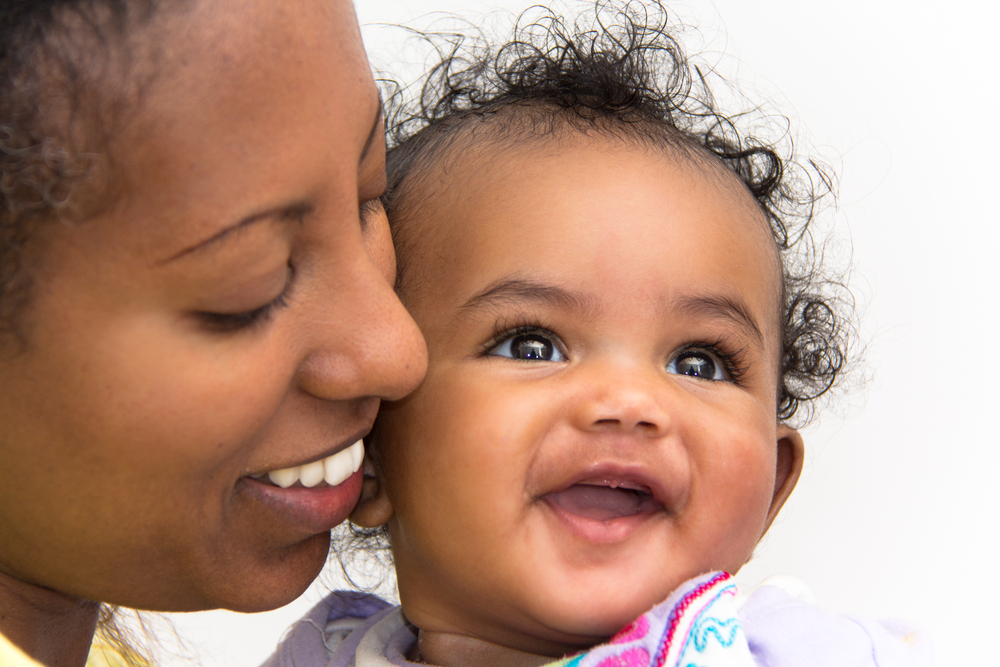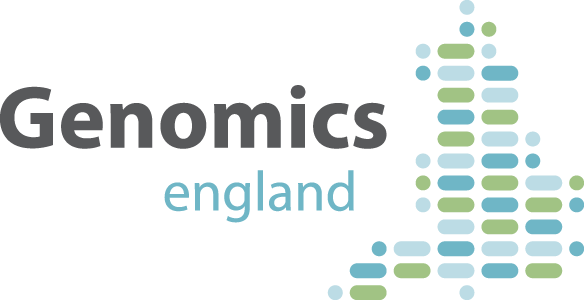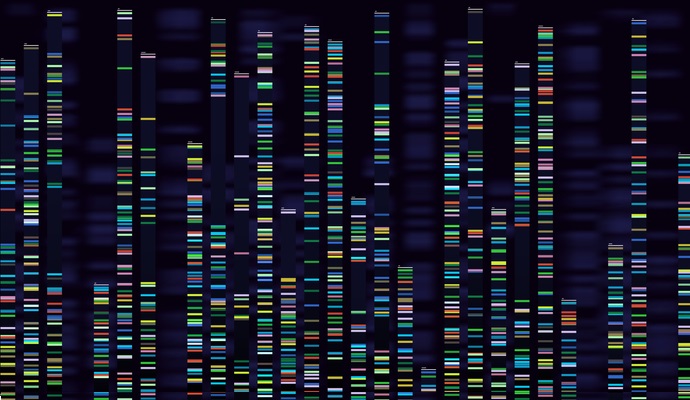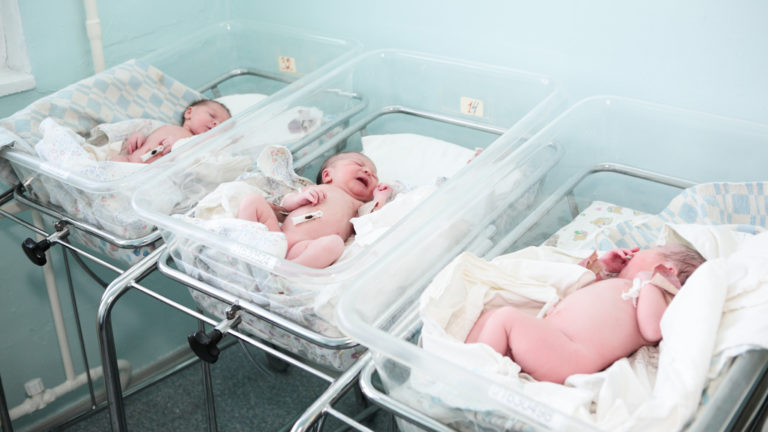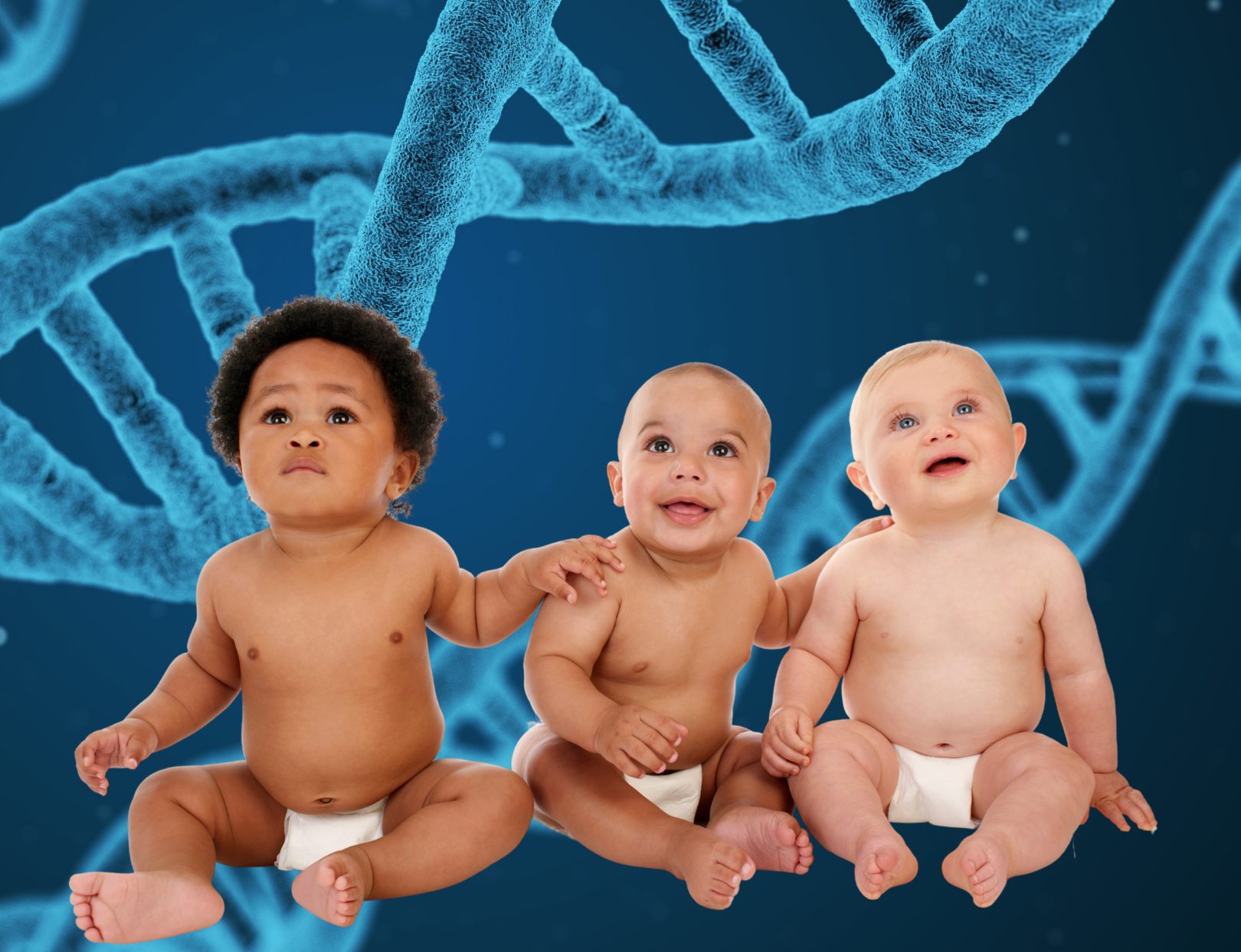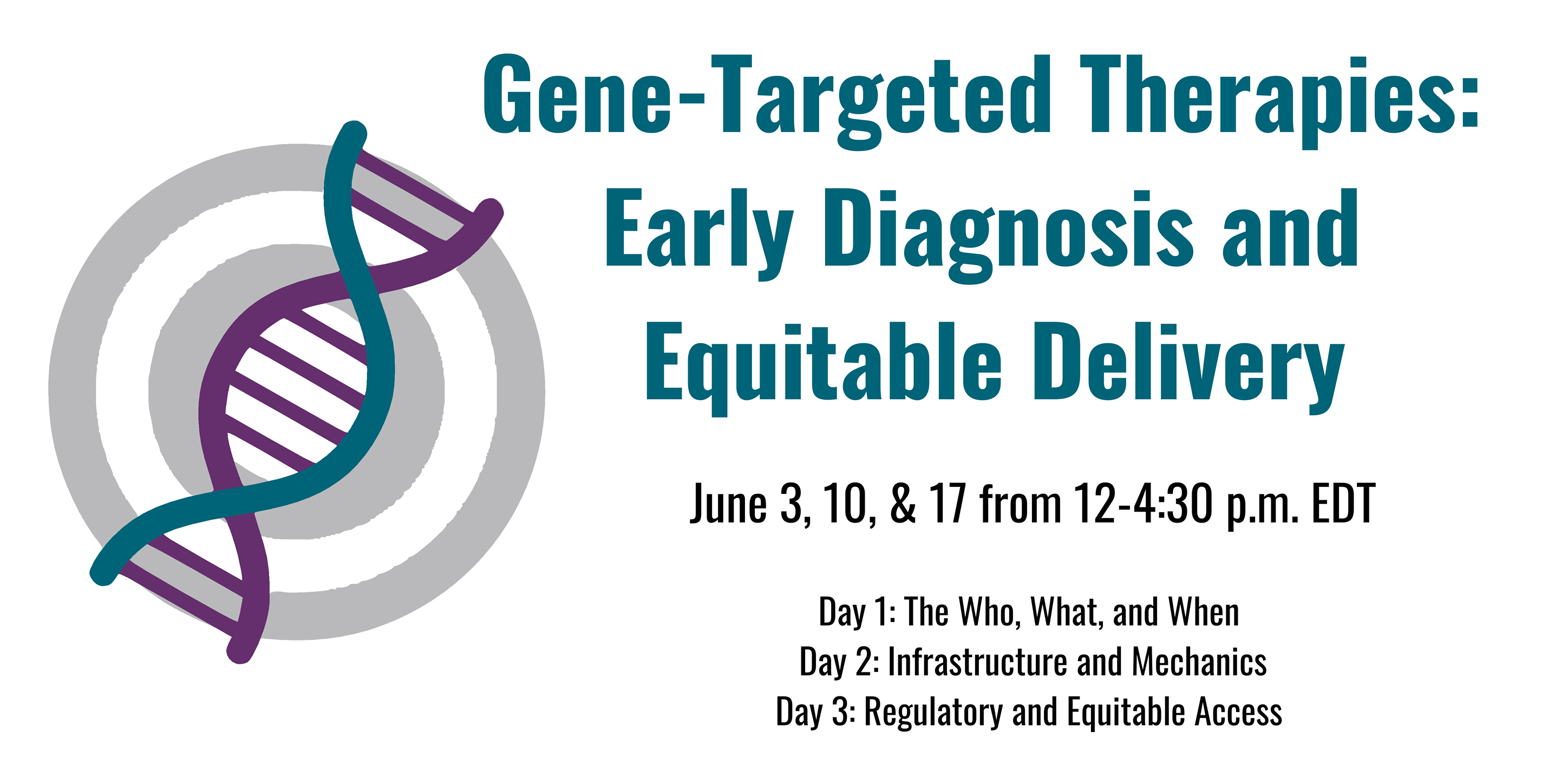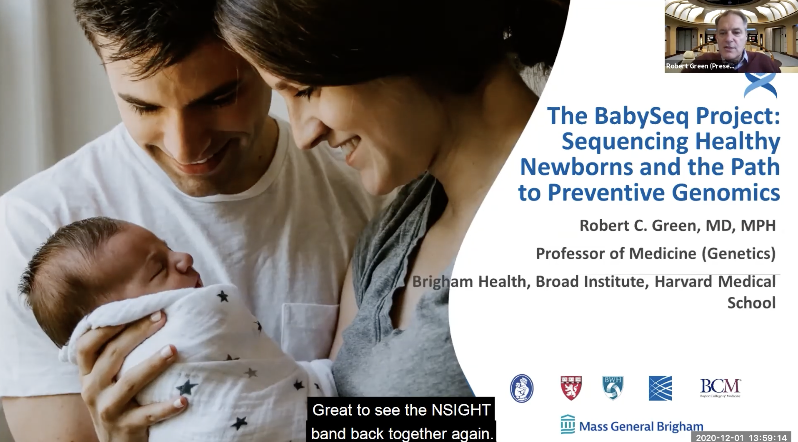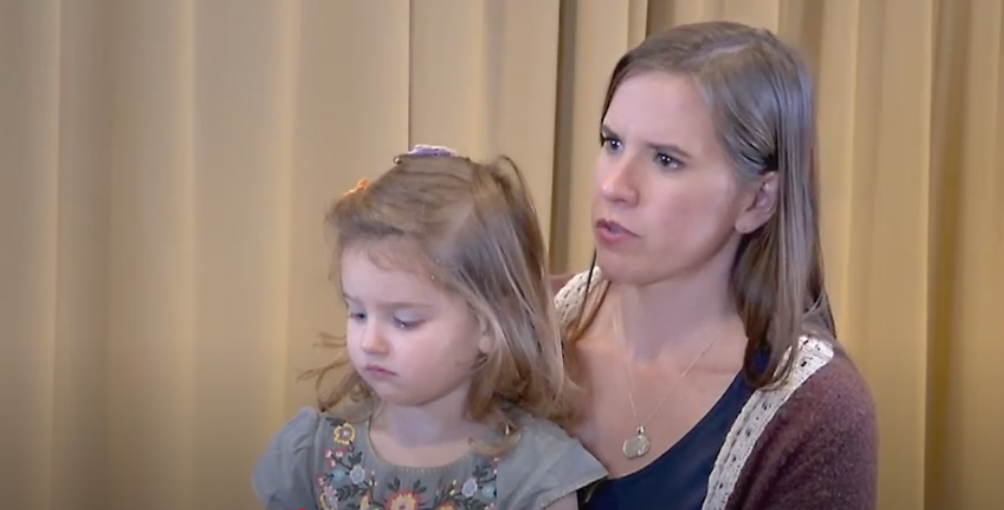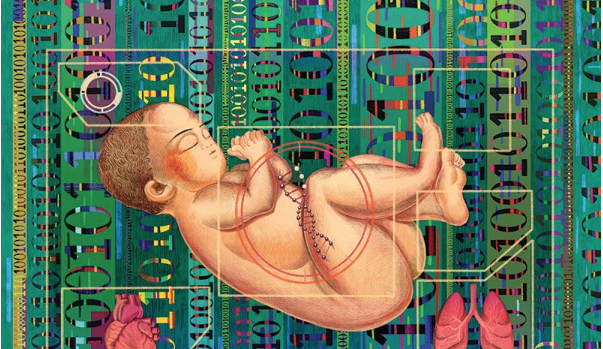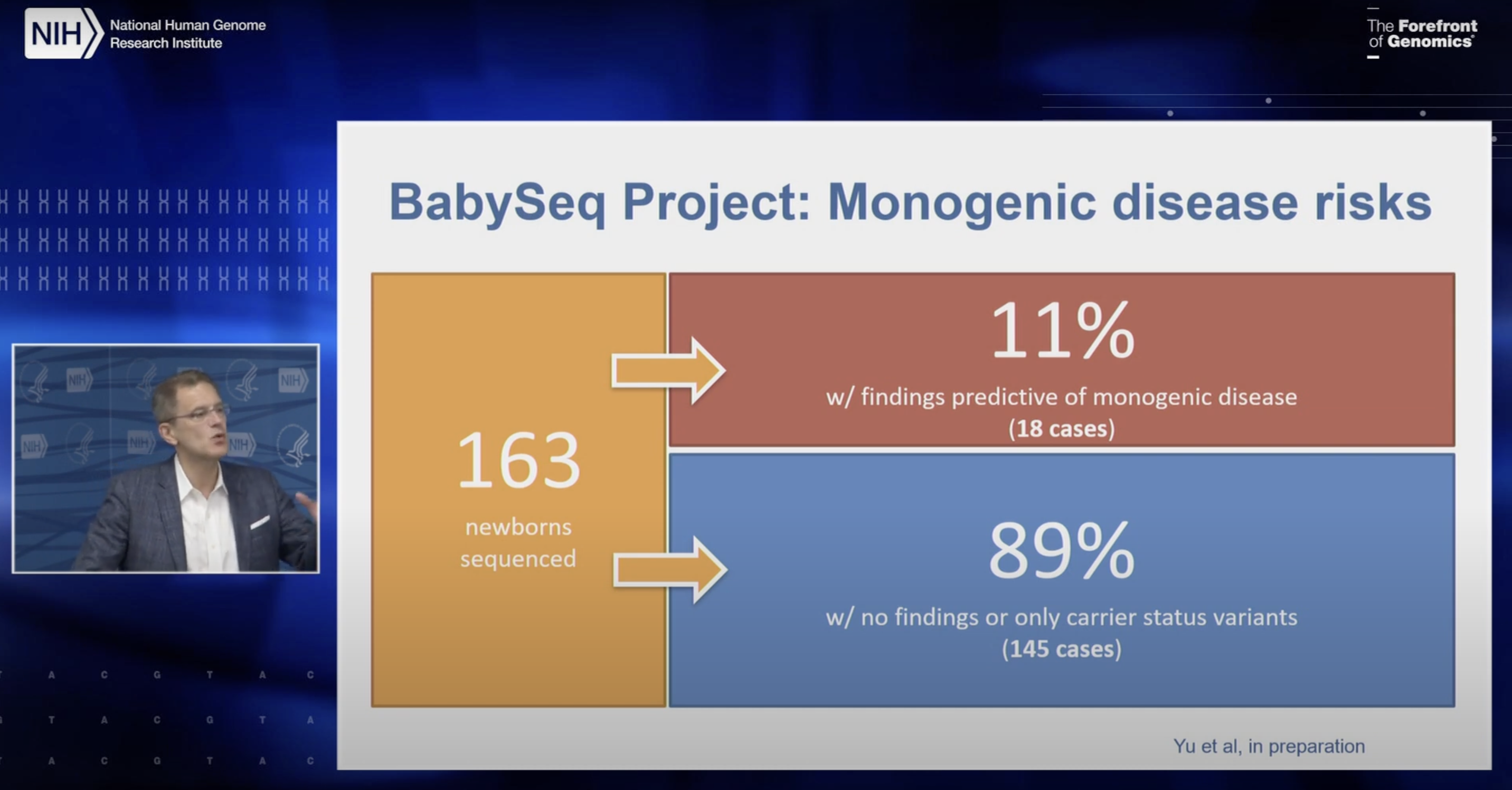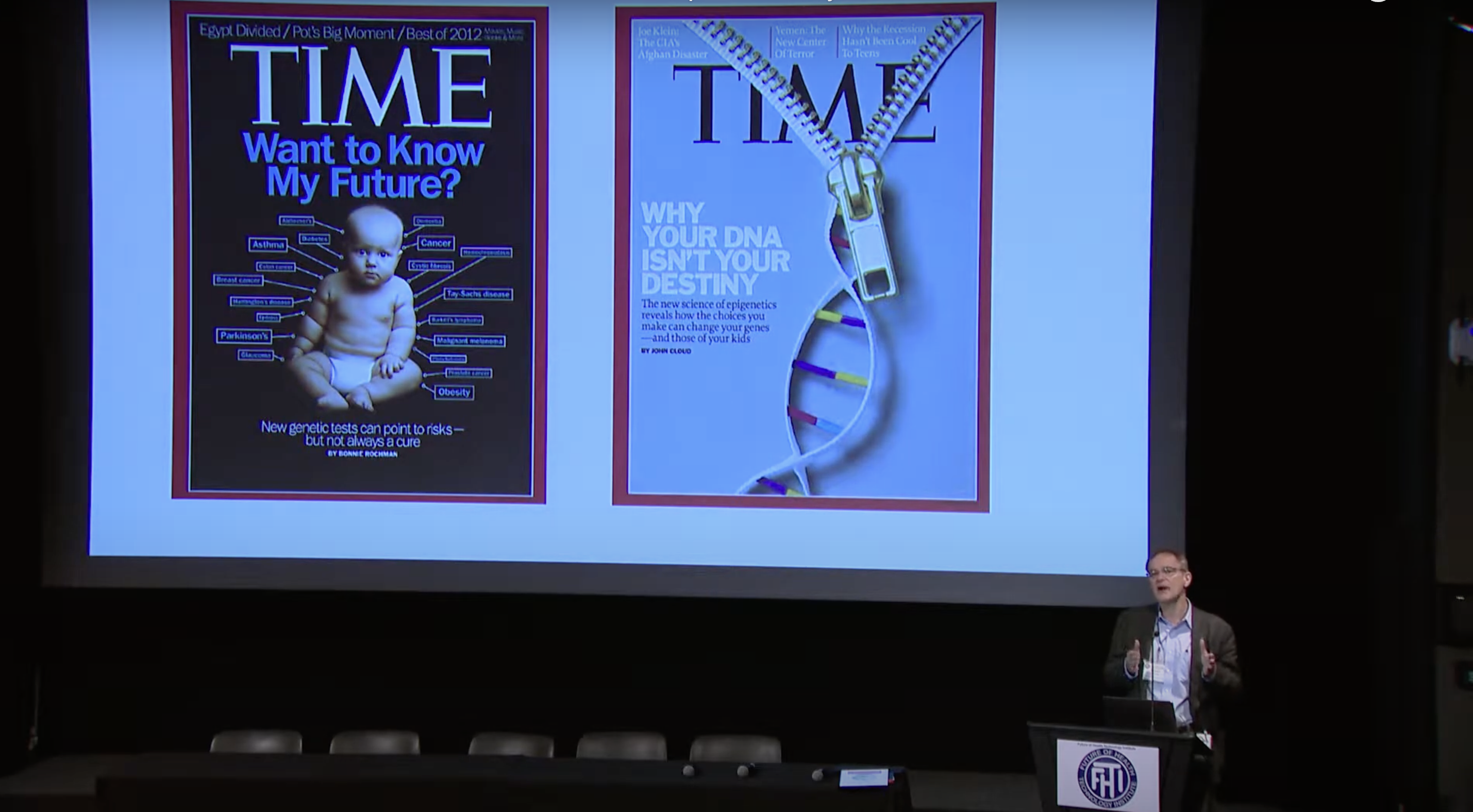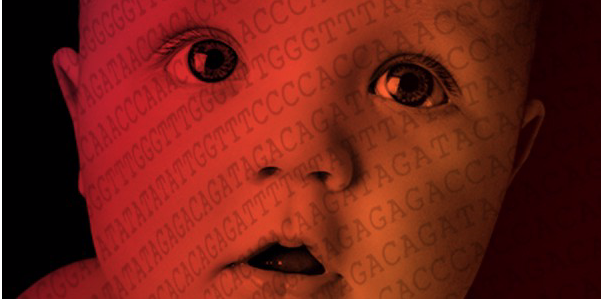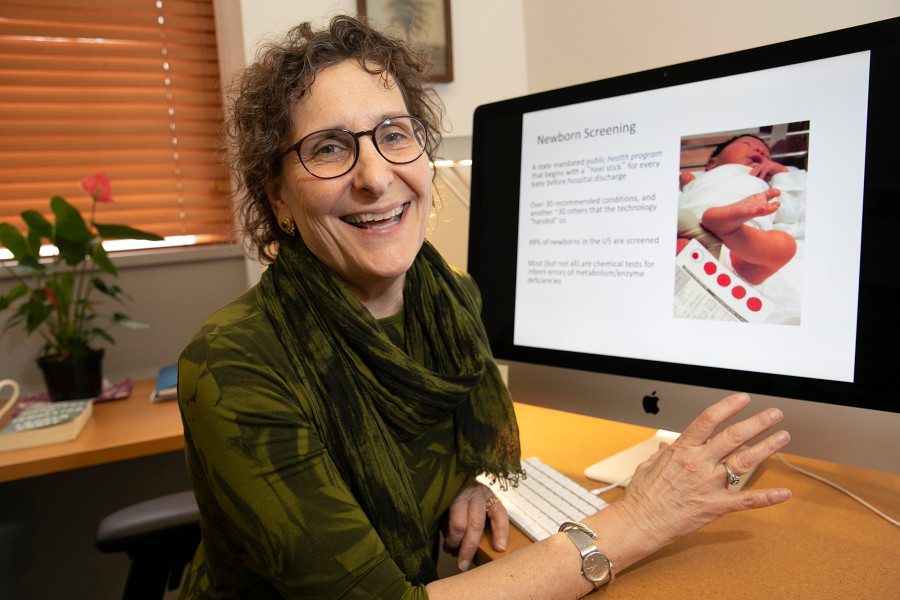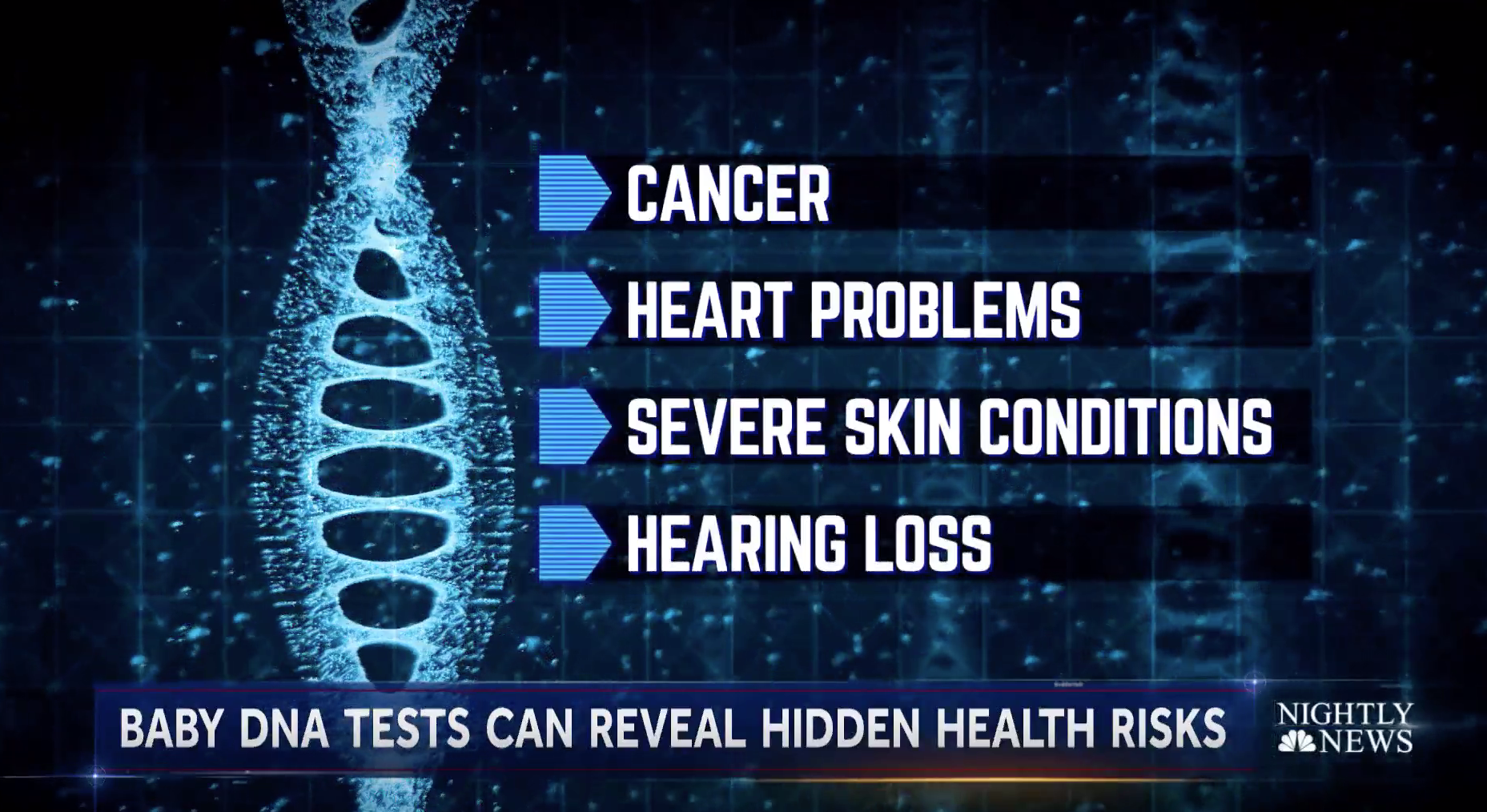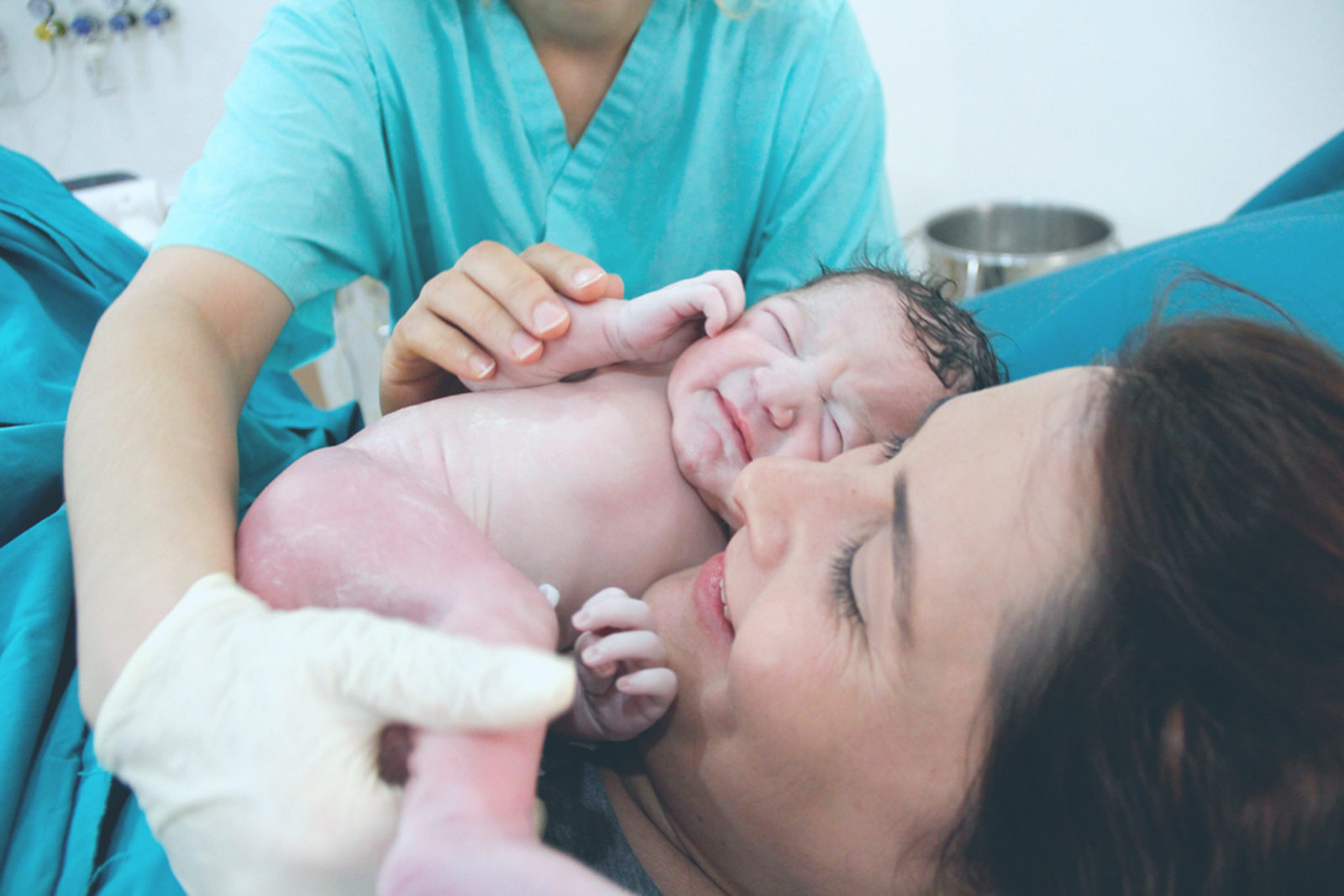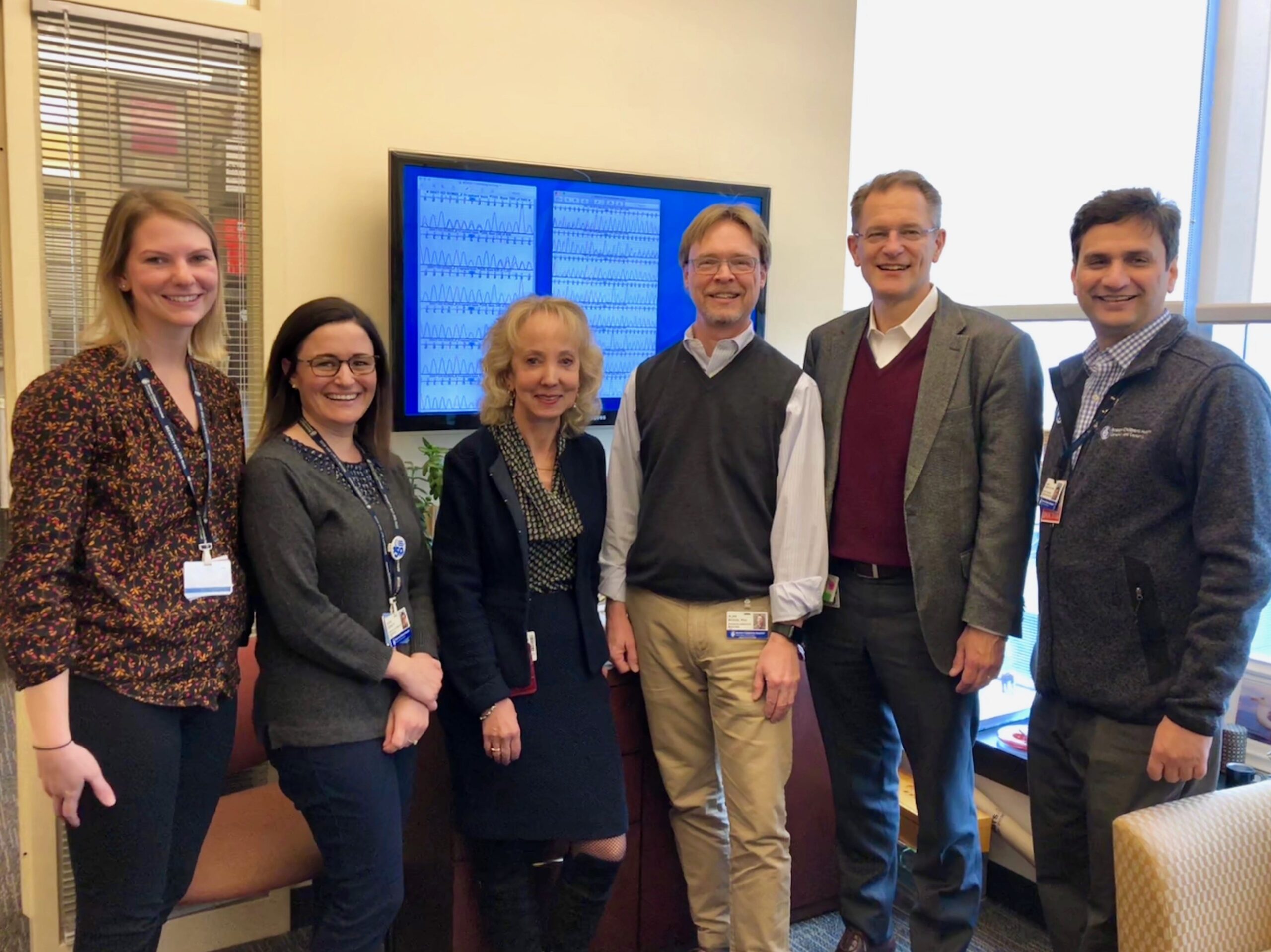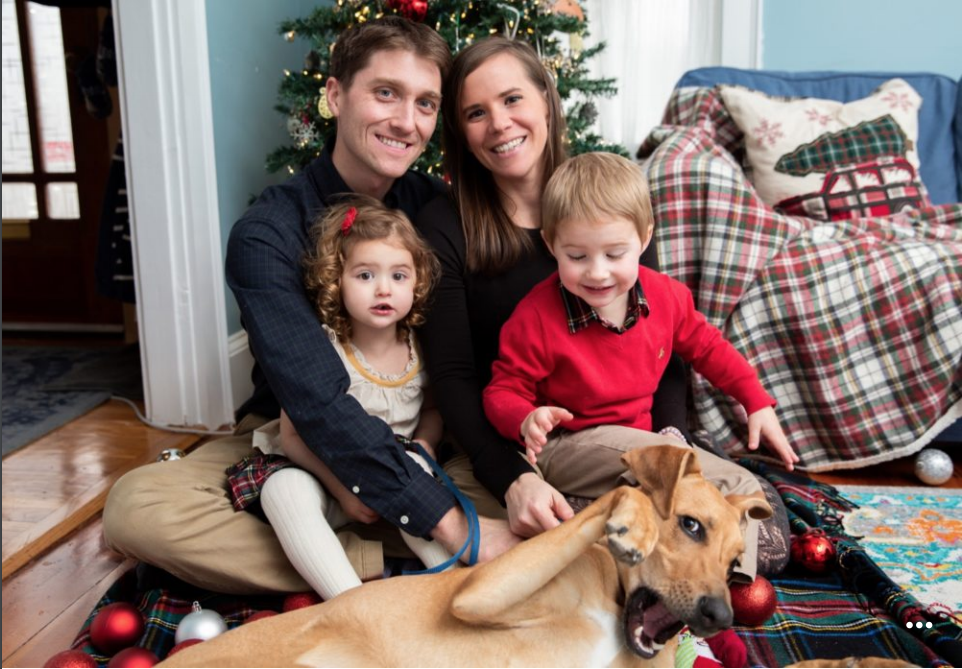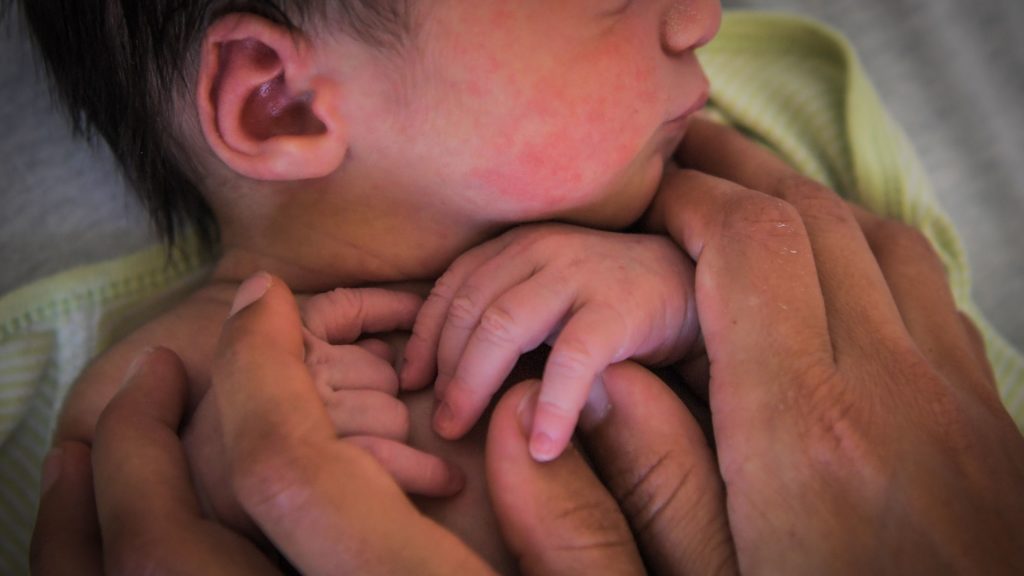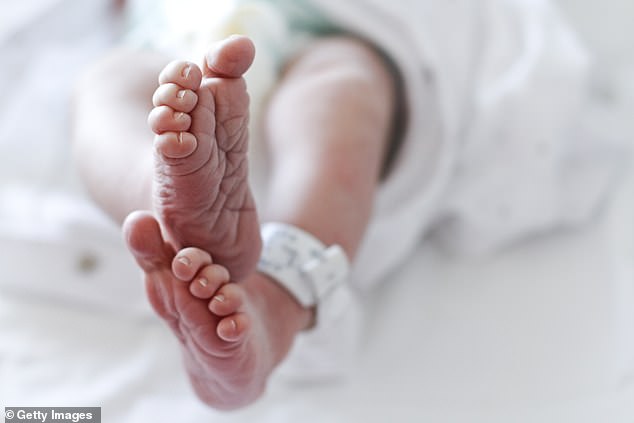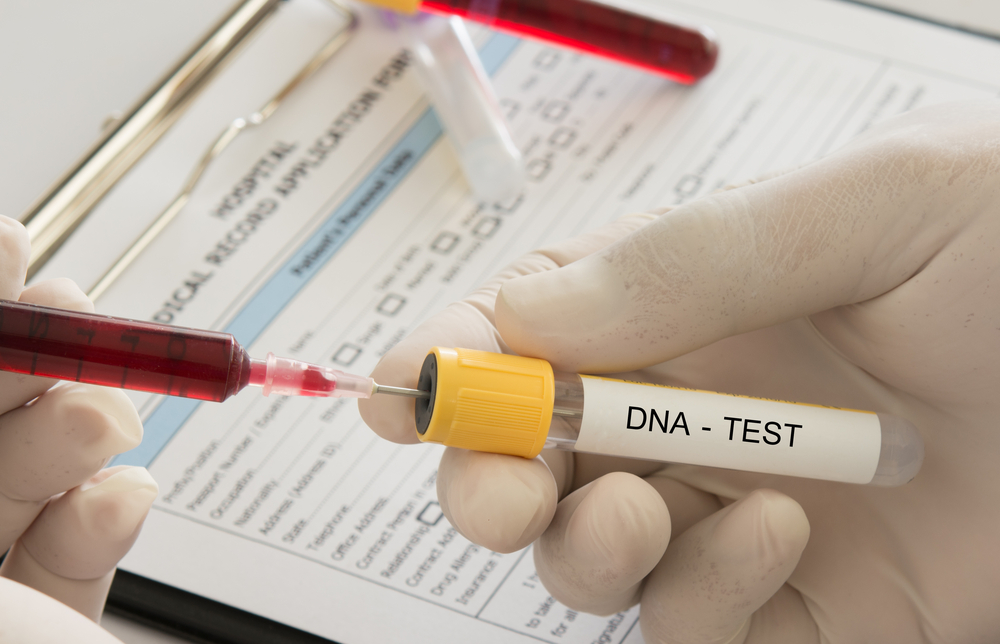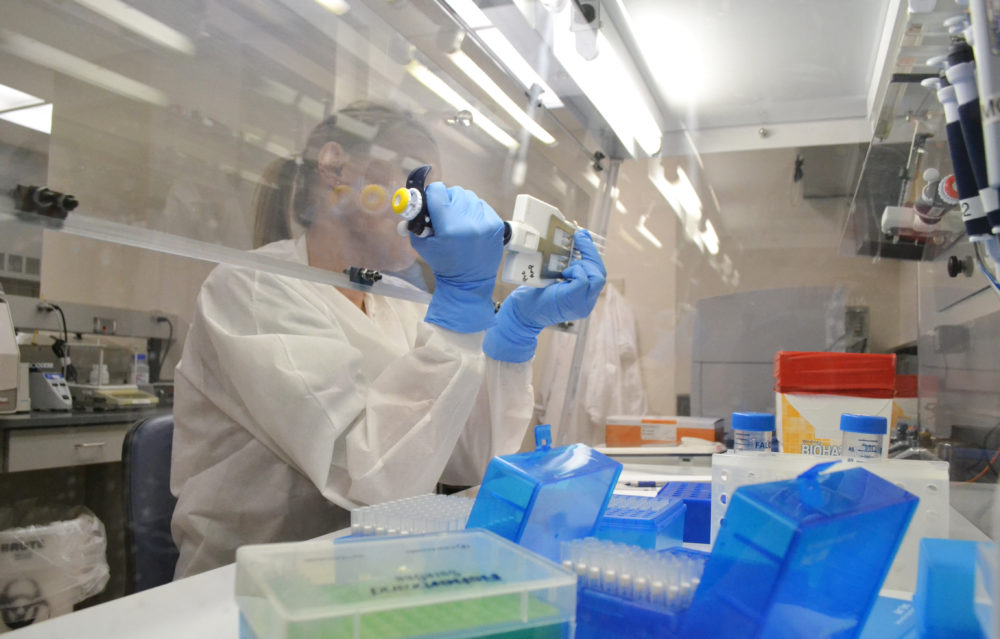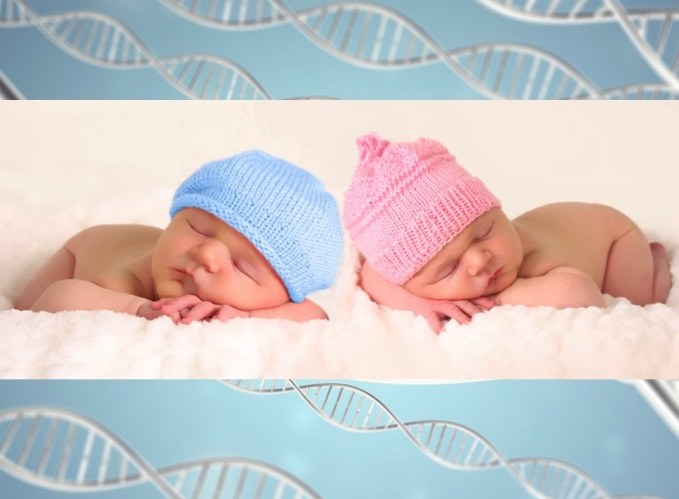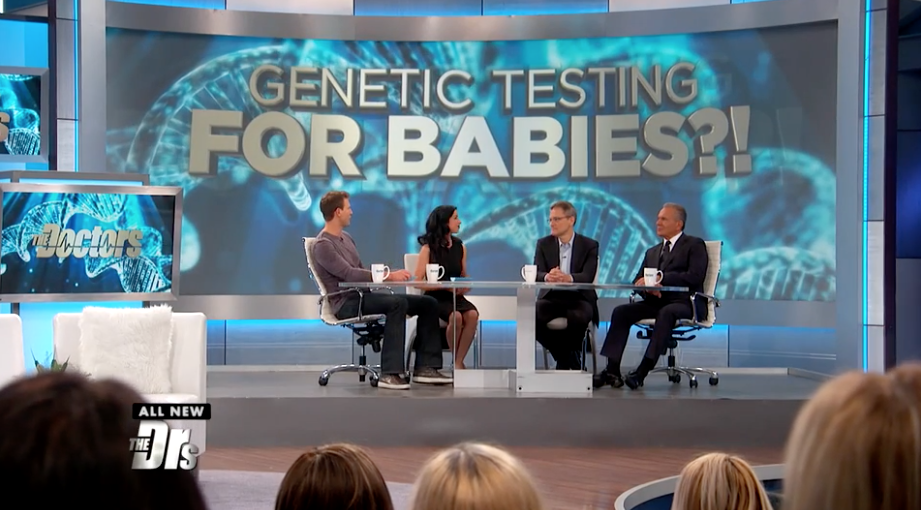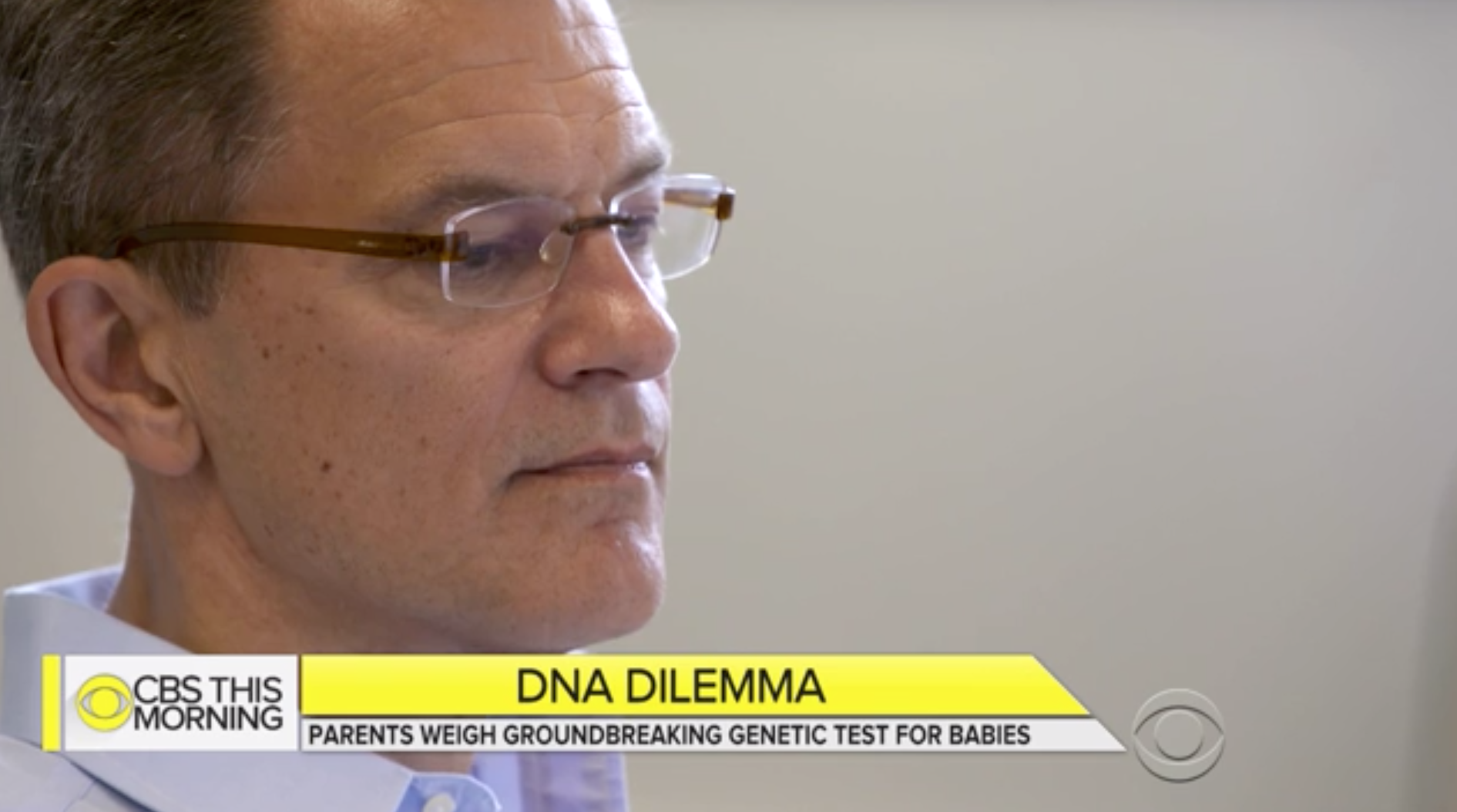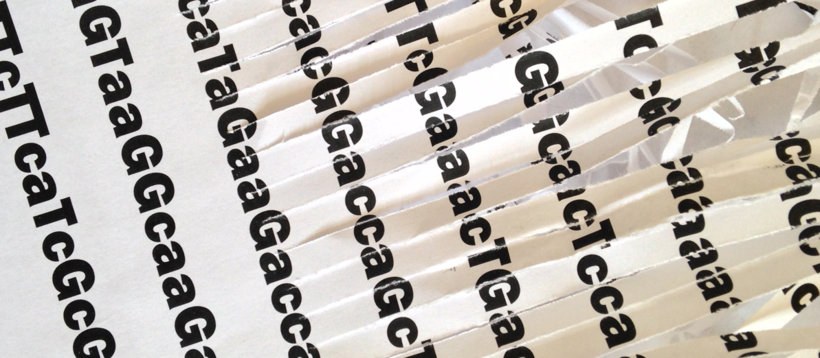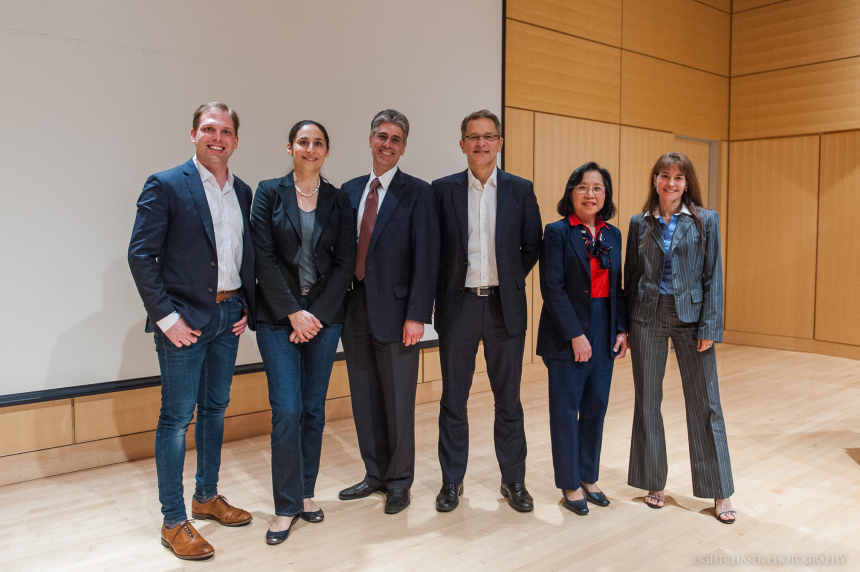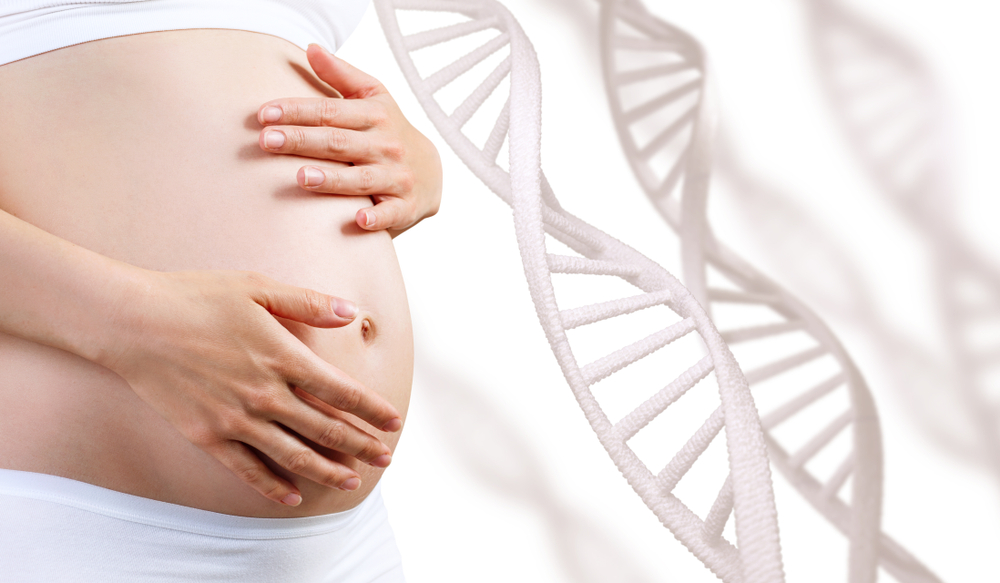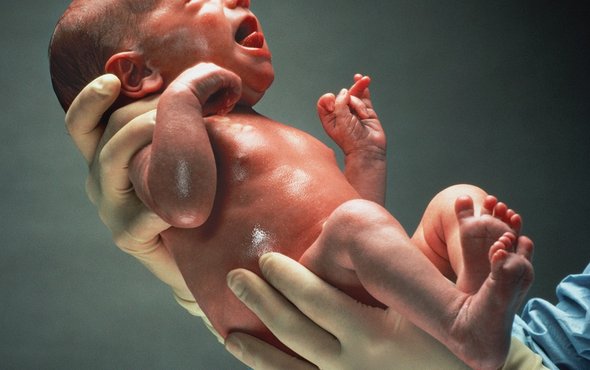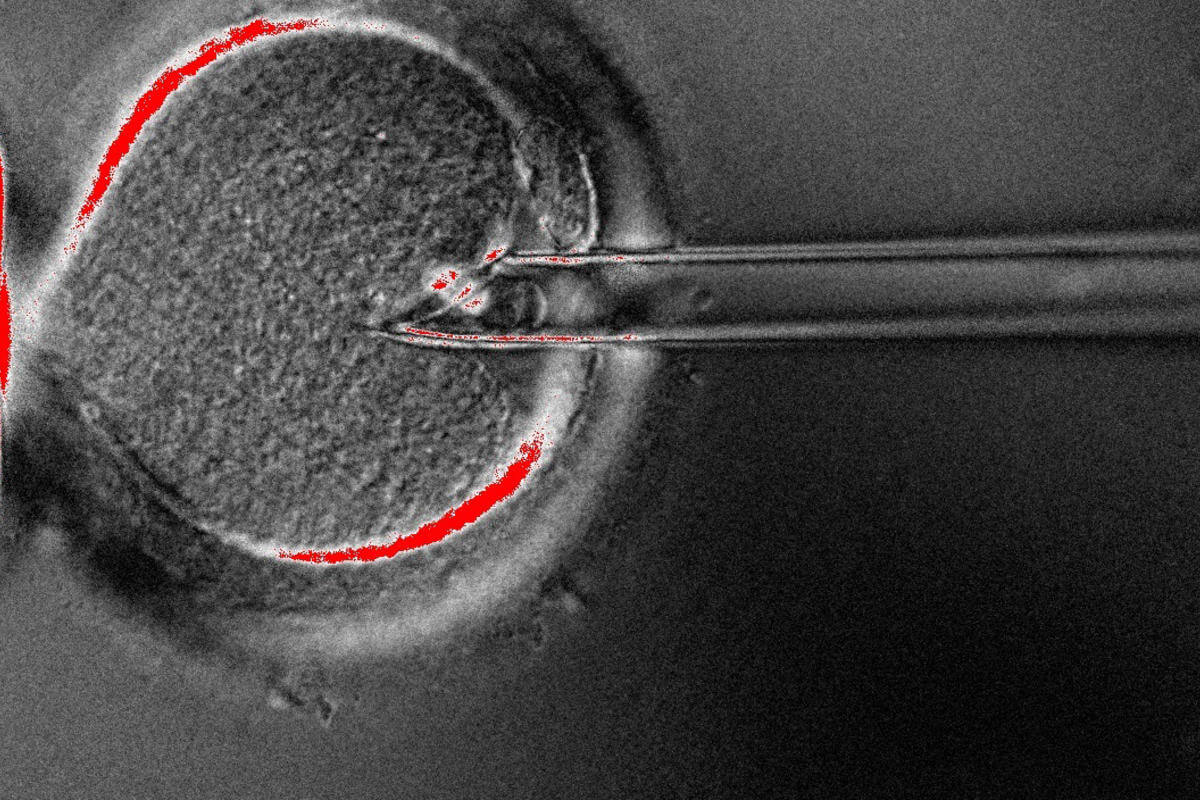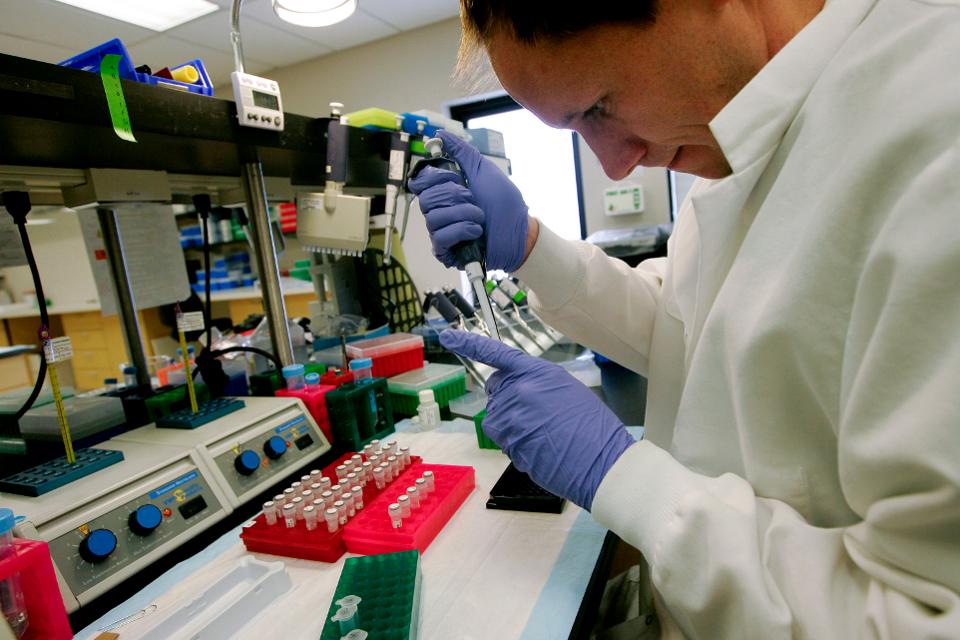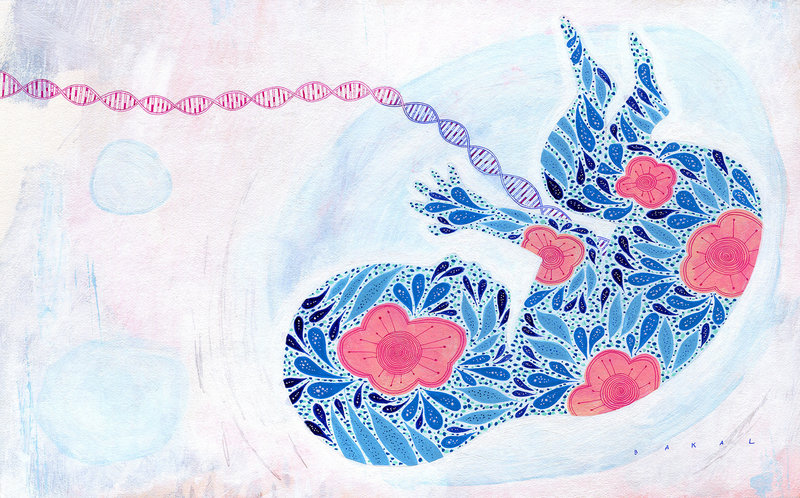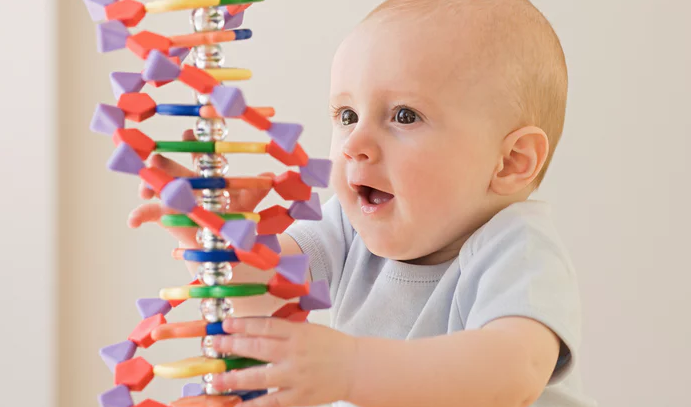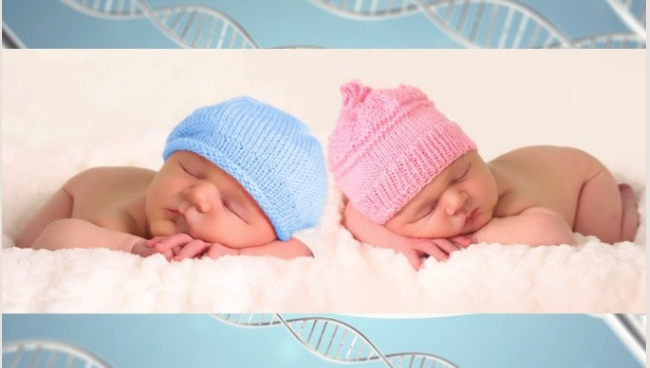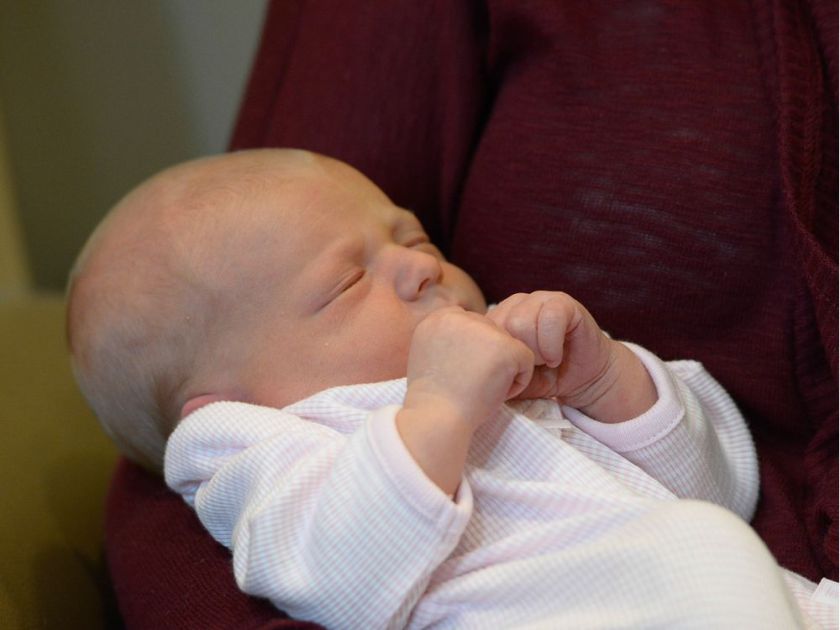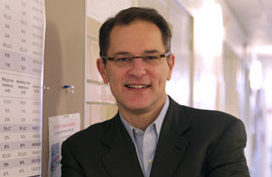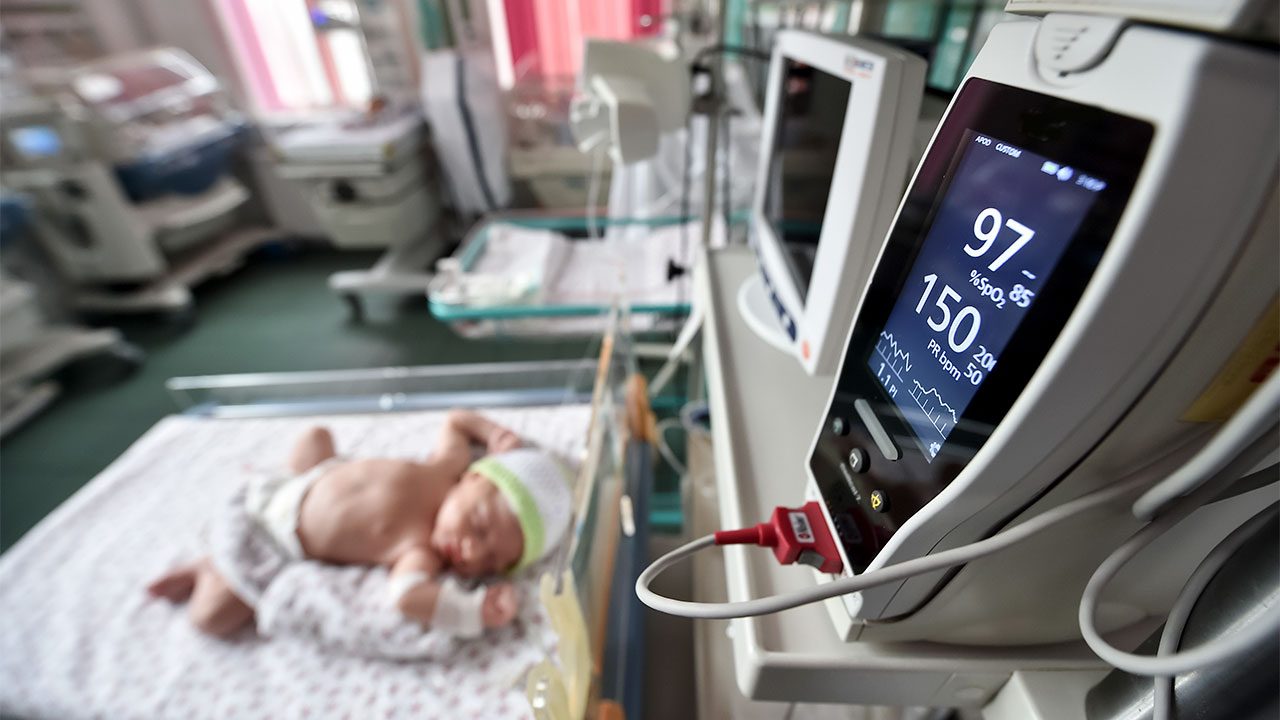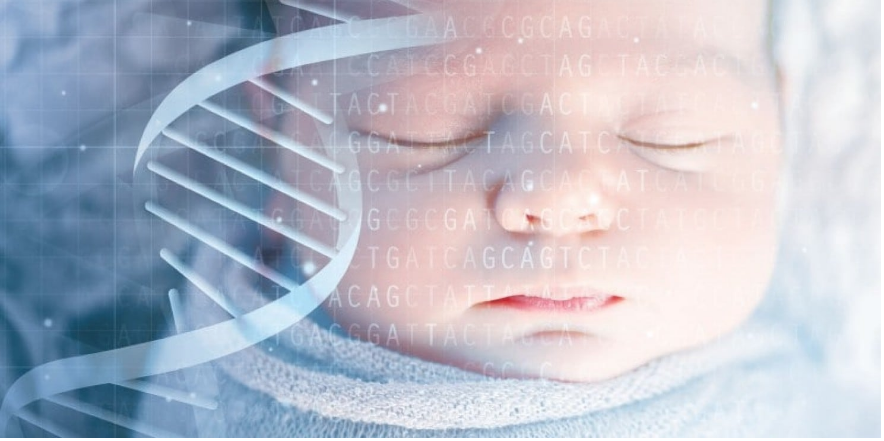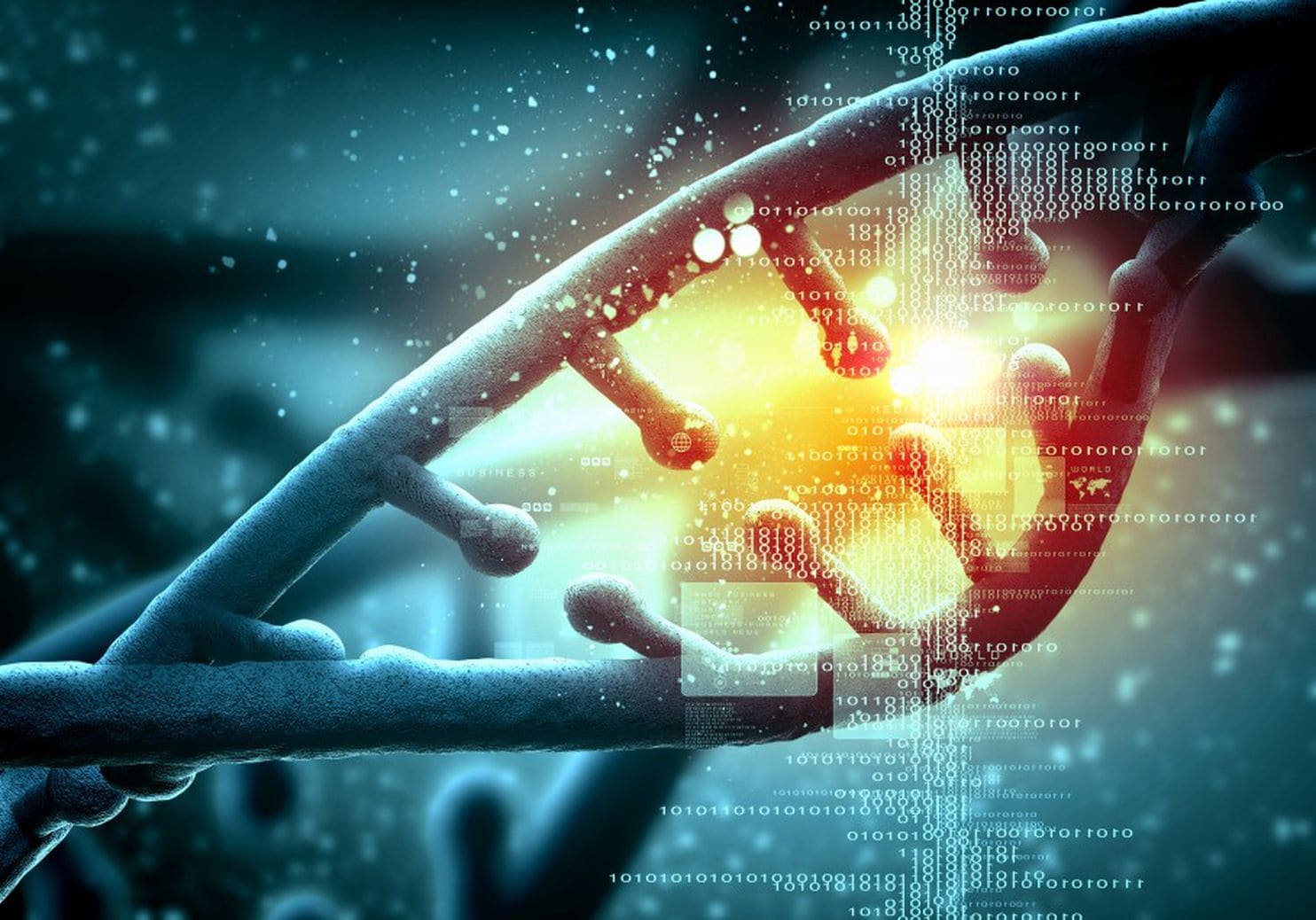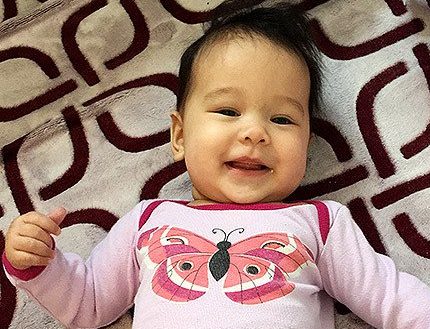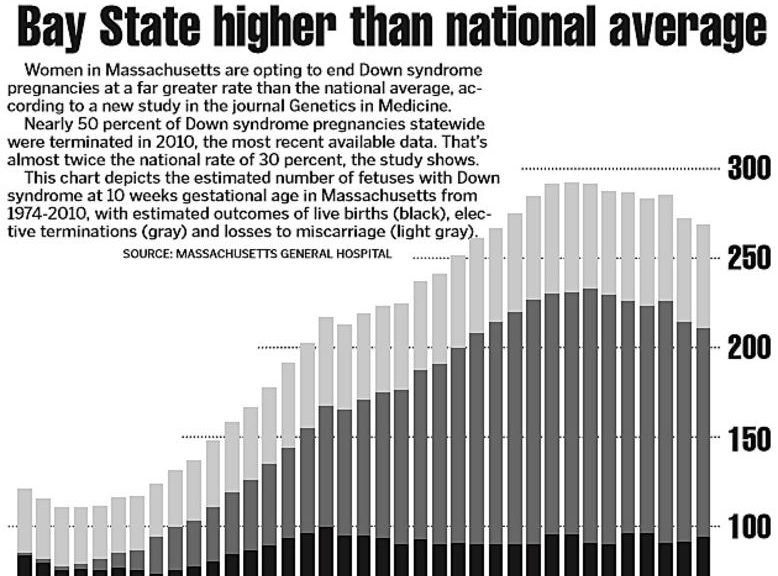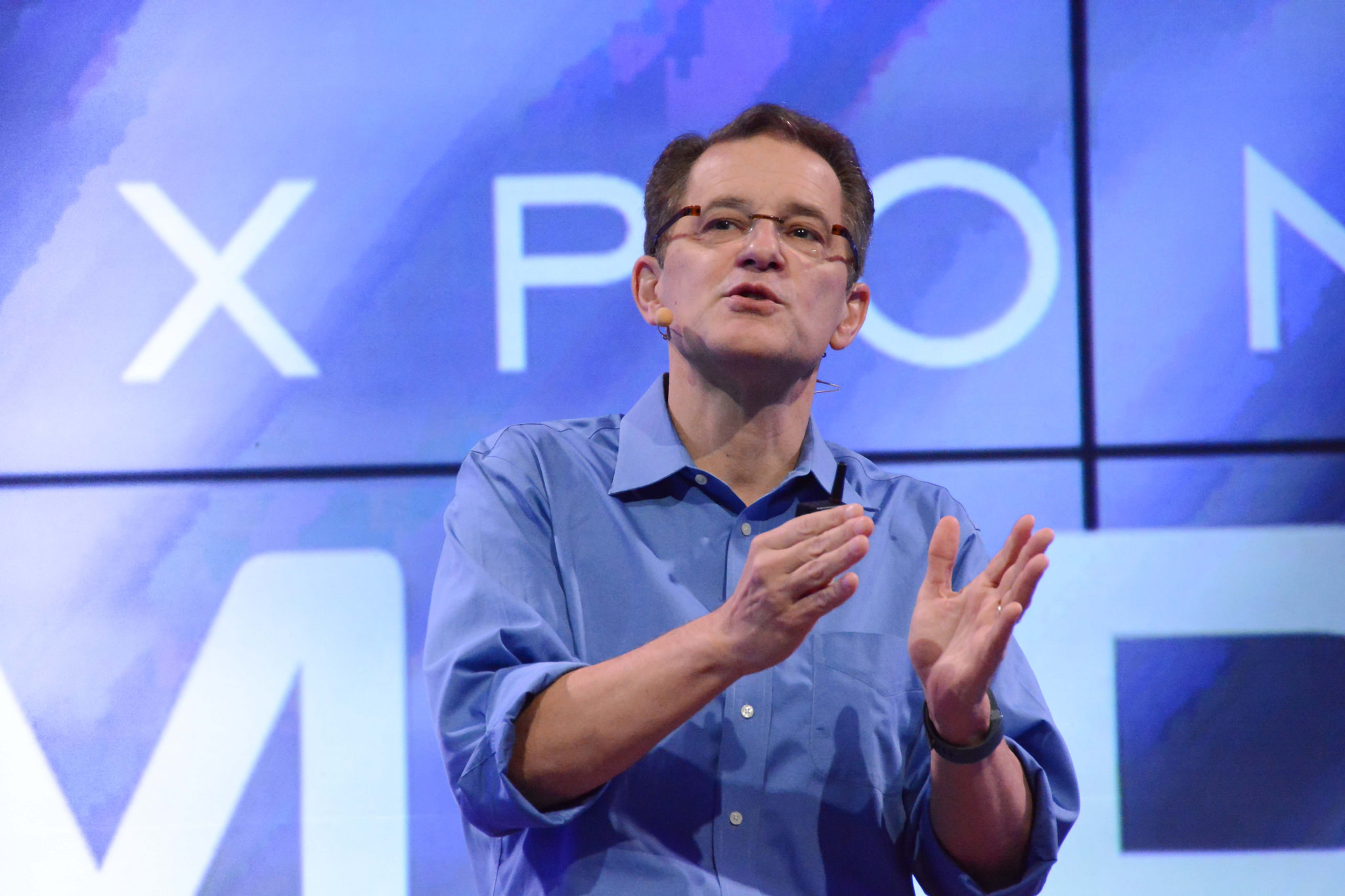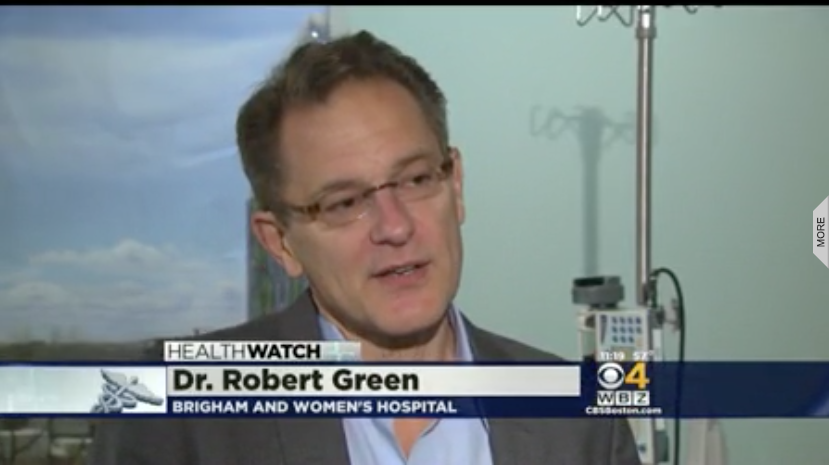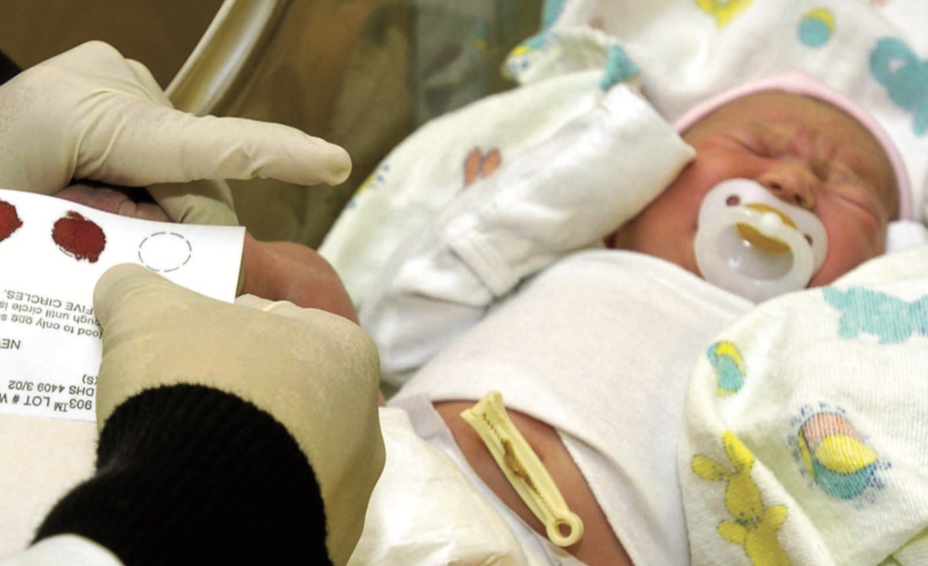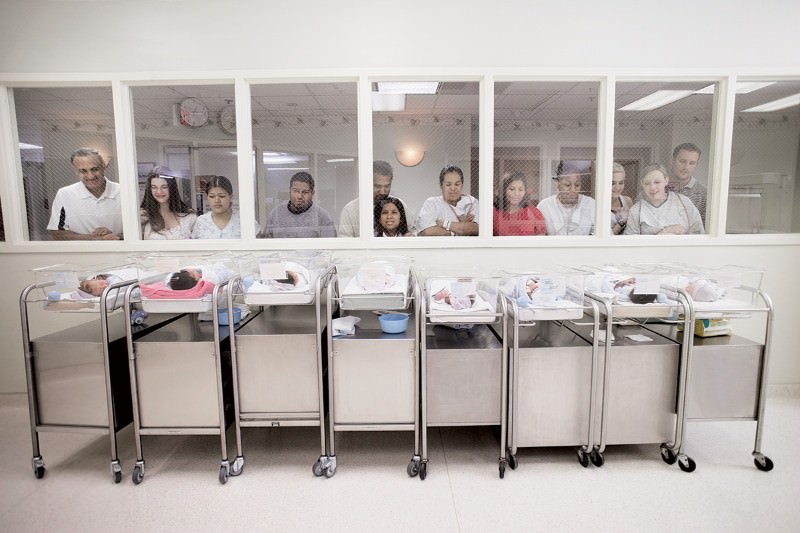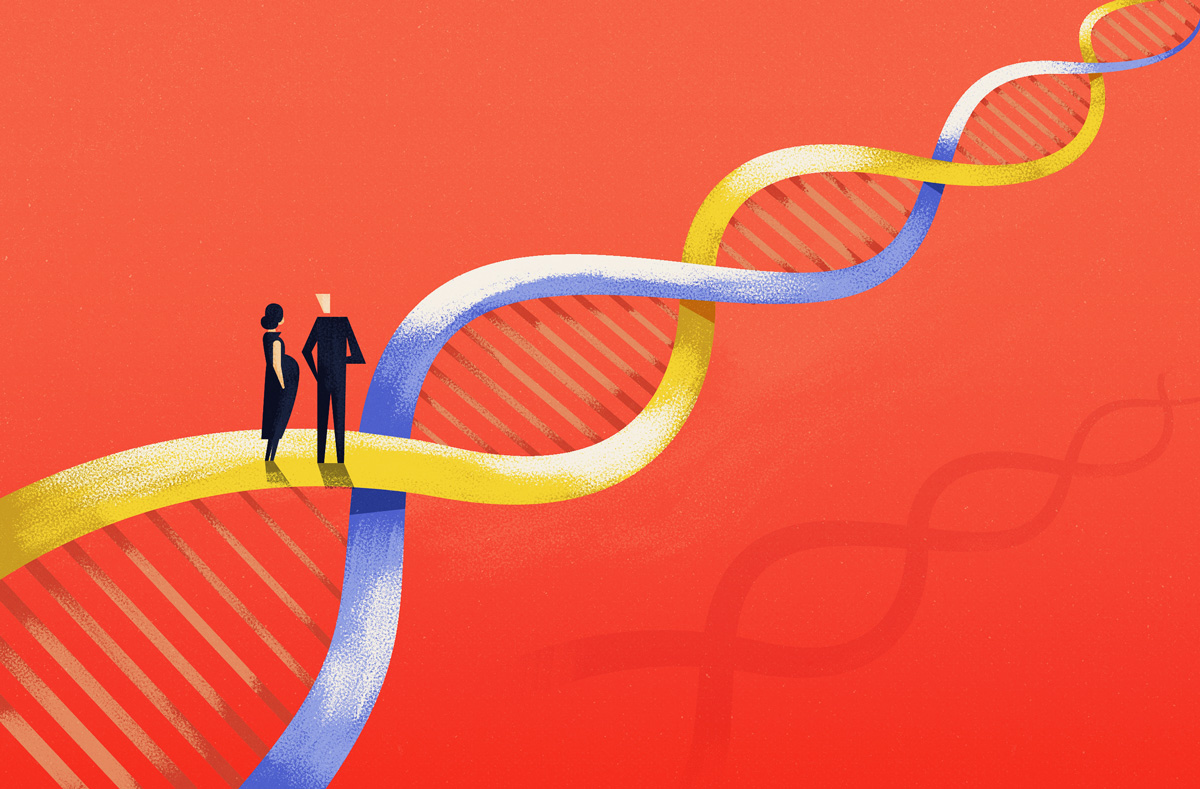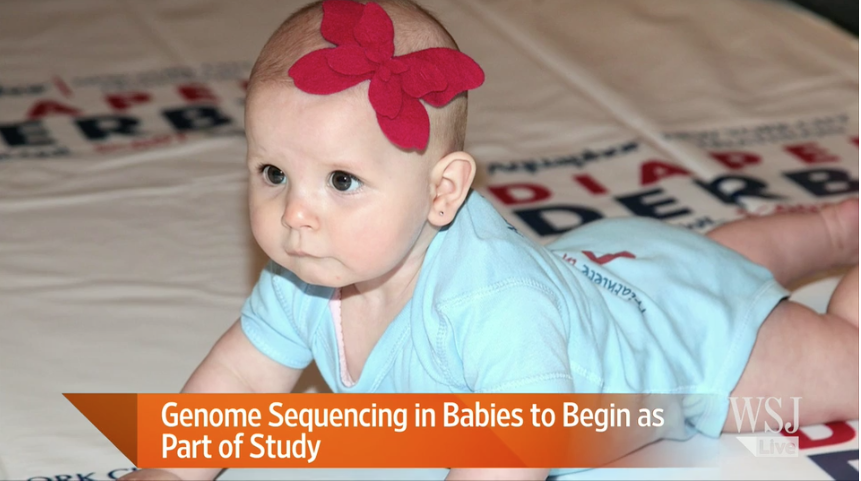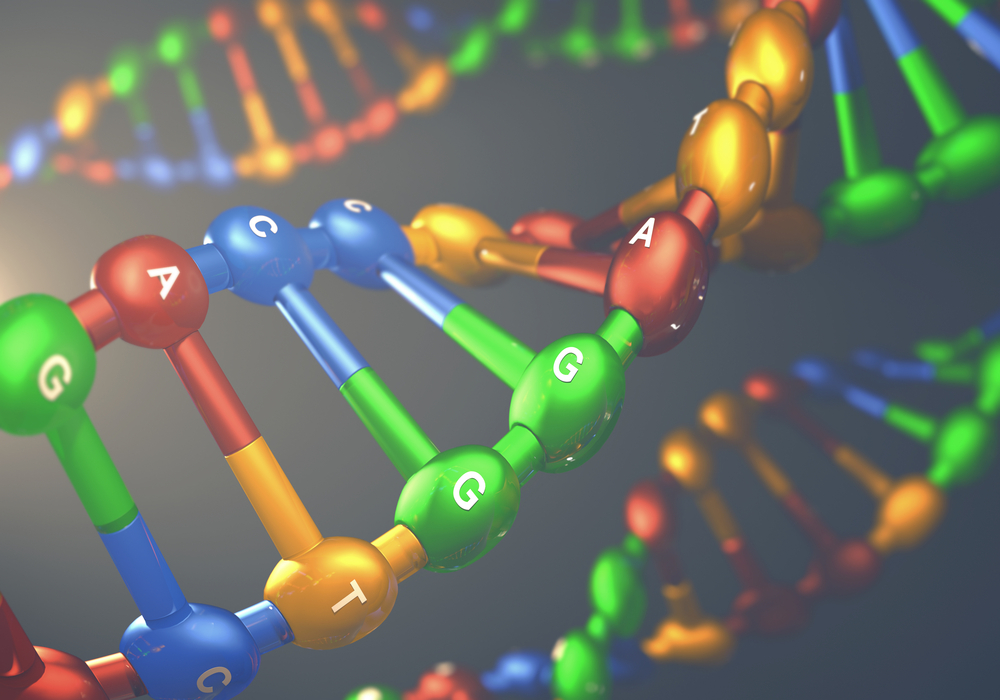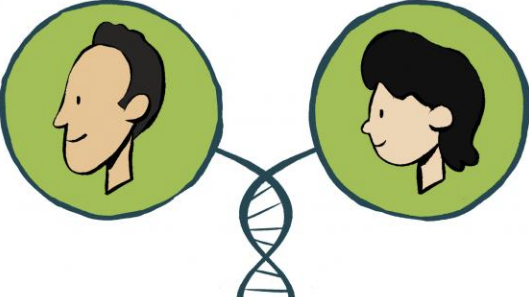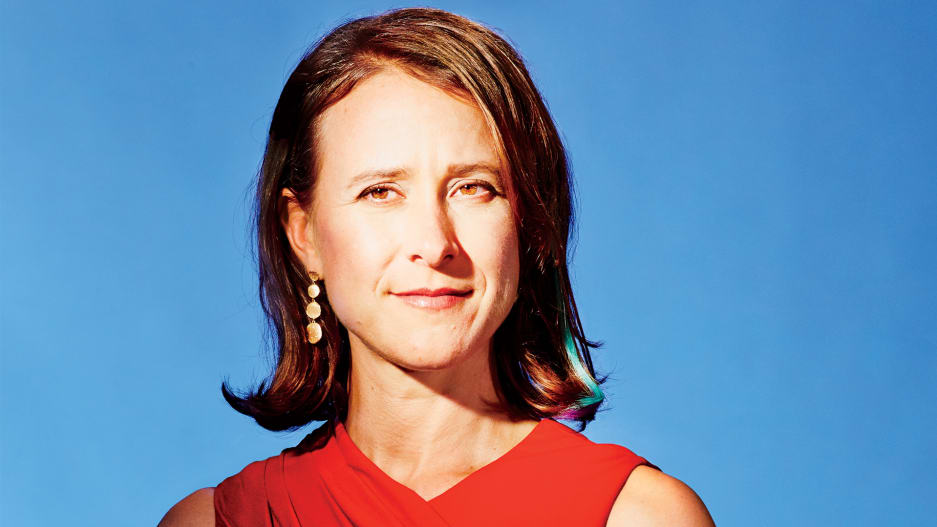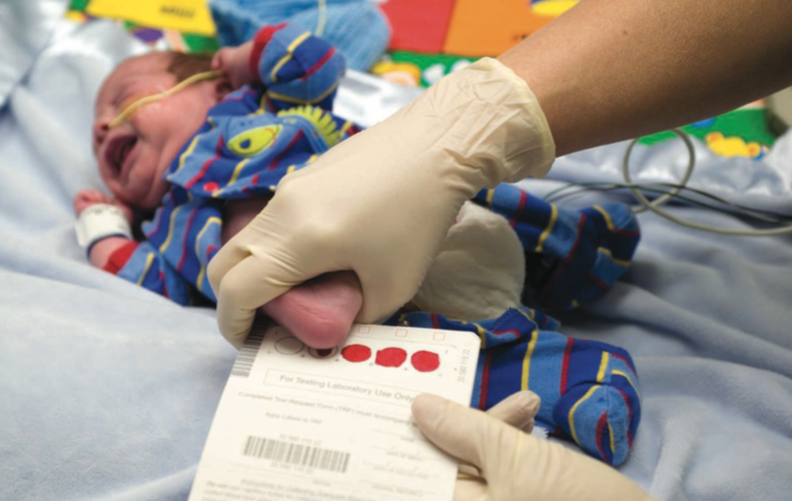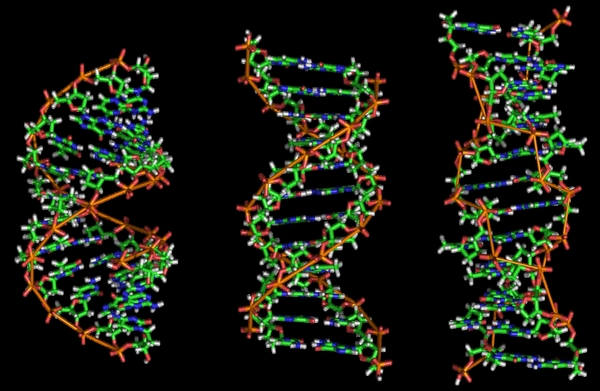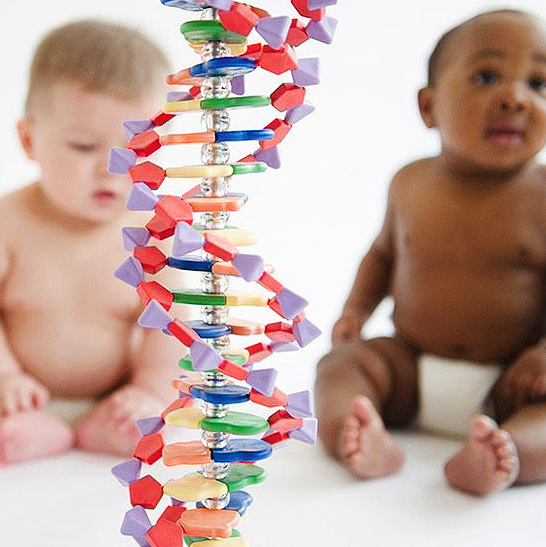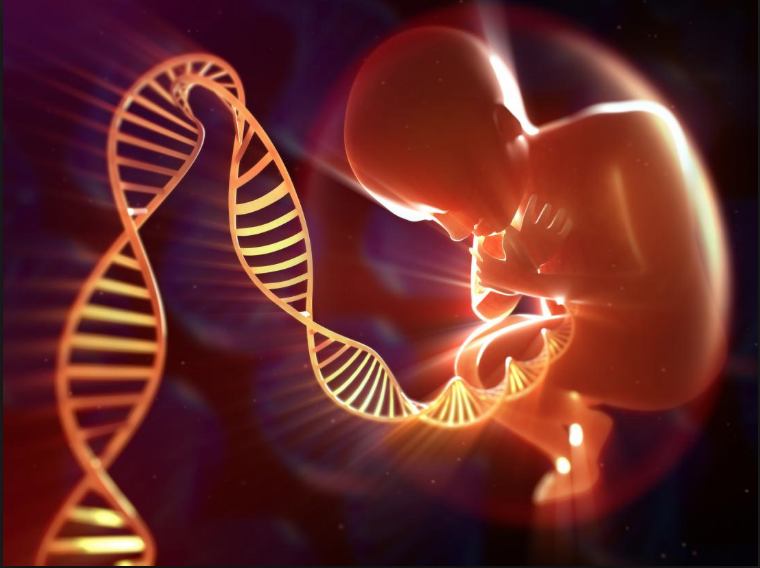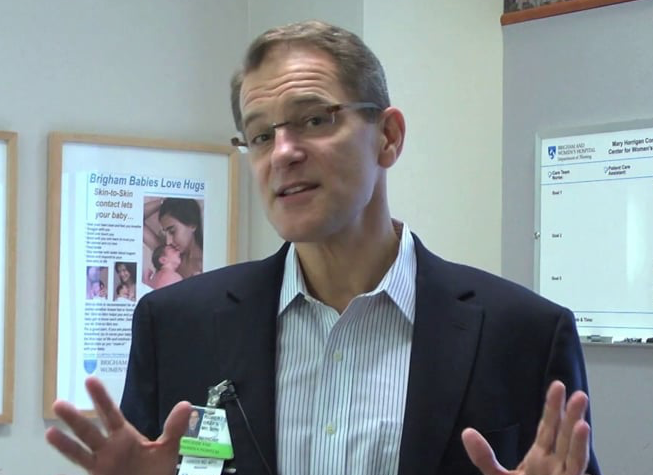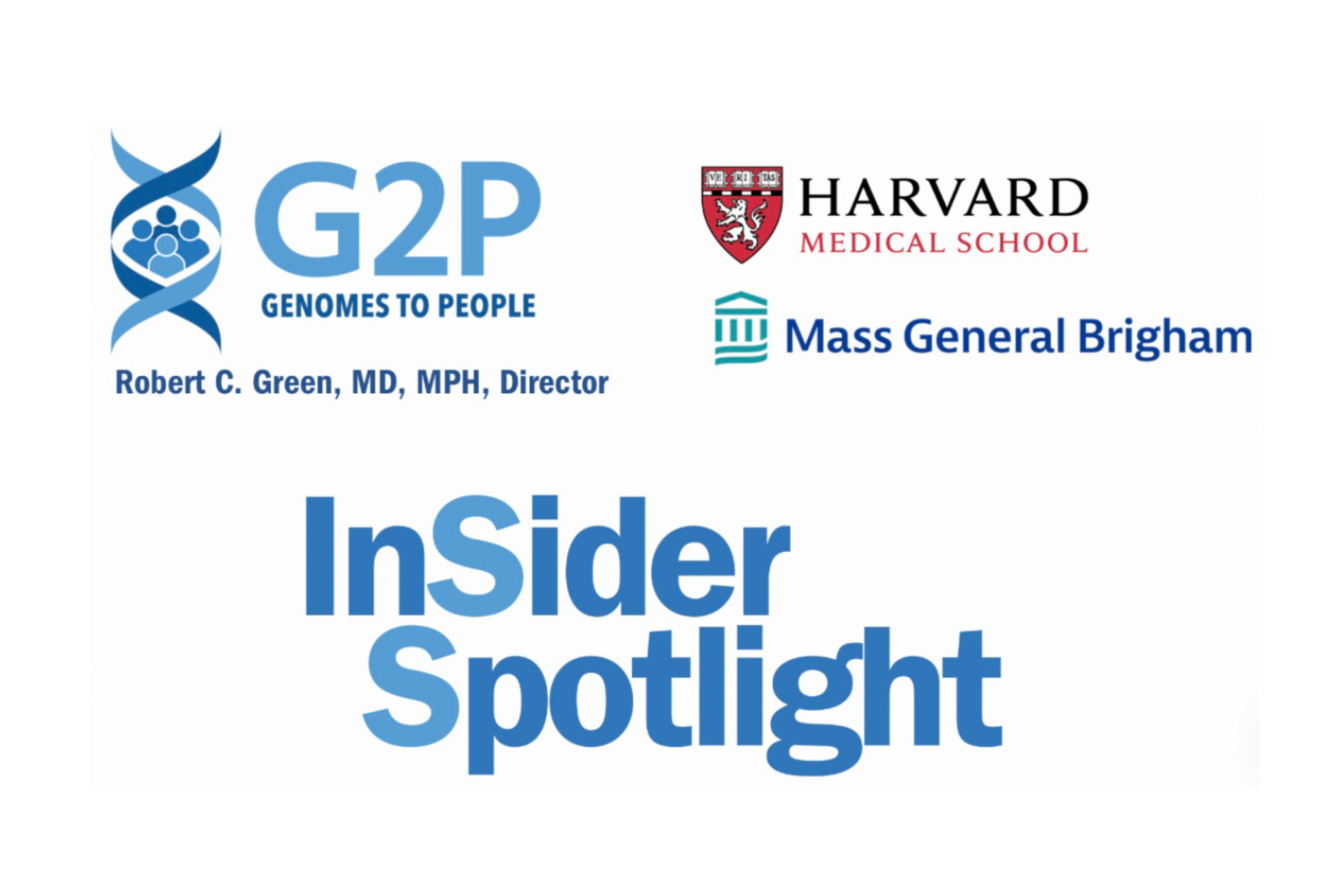Background The BabySeq Project: Phase I was a first-of-its-kind randomized clinical trial designed to measure the utility of using genomic sequencing in routine newborn care. The concept for this project is built off of the existing newborn screening program, an important public health initiative. All newborns born in the U.S. receive a heel stick blood … Continued
News
Researchers ID genetic disorders that can be treated before birth
The Harvard Gazette
April 2025
“We saw a critical gap in prenatal care and an opportunity to define the genetic disorders that are treatable during this time,” said senior author Nina Gold, director of Prenatal Medical Genetics at Massachusetts General Hospital and an assistant professor of pediatrics at Harvard Medical School. “These conditions are actionable — meaning that, empowered with … Continued
Researchers Identify Growing List of Genetic Disorders Treatable Before or Immediately After Birth
Mass General Brigham
April 2025
Researchers from Mass General Brigham, Harvard Medical School and Duke University School of Medicine have identified nearly 300 genetic disorders that can be treated before or immediately after a baby is born. This “treatable fetal findings list” could improve the diagnosis of genetic conditions in pregnancy and enhance the treatment options available for fetuses who have … Continued
IFCC Professional Scientific Exchange Program (PSEP): my experience at Brigham and Women’s Hospital in Boston, USA
International Federation of Clinical Chemistry and Laboratory Medicine
February 2025
José Manuel González de Aledo Castillo, PhD reflects on his experience rotating with the Genomes2People research program and working on the BabySeq project for a year as part of the IFCC Professional Exchange Program (PSEP). During his rotation, he supported recruitment, genomic analysis, and return of results for the BabySeq project. He also presented results … Continued
G2P 2024 Year in Review
G2P News
December 2024
Thanks to you, we made it happen! Extending a heartfelt thank you for your support of the Genomes2People Research Program in 2024. This newsletter highlights milestones in 2024, including expanding the BabySeq project to 7 sites nationwide, hosting 15 research trainees, contributing to a successful International Conference on Newborn Sequencing, and completing the first ever … Continued
‘Qatar well positioned for more leadership roles in genomics’
Gulf Times
December 2024
Robert Green, MD, MPH was interviewed by Gulf Times at the recent Precision Medicine and the Future of Genomics (PMFG) Summit in Doha, Qatar. Dr. Green discusses findings from the BabySeq Project and the potential for Qatar to be leader in genomics and precision medicine.
BabySeq Project Finds Similar Rates of Genetic Risk Variants Across Diverse Groups
GenomeWeb
September 2024
“Similar rates of genetic variants have been reported across demographic groups participating in the BabySeq1 and BabySeq2 projects, according to a new analysis presented at the National Society of Genetic Counselors annual meeting here last week.”
First Person: Robert C. Green
Lifestyles Magazine
August 2024
Robert C. Green, MD, MPH writes a piece for Lifestyles Magazine on the promise of preventive genomics. Dr. Green draws on his experience researching preventive genomics over the past 20 years and his experience launching Nurture Genomics, a start-up delivering genome sequencing to newborns and children.
Every baby deserves access to genetic screening
Nature Medicine
August 2024
In this recent editorial, Nature Medicine argues that every baby deserves access to genetic screening. There are currently several international studies underway—including the Generation Study, Guardian Study, and the BabySeq Project—that are evaluating the utility and challenges of implementing routine expanded newborn genetic screening. Nature Medicine concludes that while newborn sequencing has great potential to … Continued
The Second Revolution of Newborn Screening
Medium
July 2024
Visiting researcher, José Manuel González de Aledo Castillo, speaks on what newborn sequencing programs can learn from conventional newborn screening in his recent blog entitled “The Second Revolution of Newborn Screening.” He advocates for a future in which newborn sequencing and traditional newborn screening can work together in a complementary manner to ultimately reduce costs … Continued
Genome Sequencing for Kids – Robert Green
Deep Future
June 2024
Robert Green joins Pablos Holman on the Deep Future podcast to discuss the promise of genome sequencing in children. He draws upon his work from the BabySeq Project and from his new start-up company, Nurture Genomics, where he uses genomic screening in infants to detect and mitigate actionable genetic conditions.
Boston doctor wants more screening for rare genetic conditions in newborn babies
CBS News
February 2024
This Rare Disease Day, CBS News reports on the BabySeq Project in an interview with Dr. Robert Green and family participants from the project. Dr. Green shares how he hopes the attention will lead to more screening for genetic conditions in newborn babies.
Video: Boston doctor calls for more screening for genetic rare diseases in newborns
CBS News
February 2024
In this short video from CBS Boston, Dr. Robert Green shares findings from the BabySeq Project and makes the case for more screening of genetic diseases in newborns. Families who participated the BabySeq Project also share their stories.
How Genomics Could Save Your Life
Medium
February 2024
In this blog post, Dr. Robert Green poses the question: “What’s holding us back from doing more with preventive genomics in medicine?” Drawing on his recent keynote talk at the Precision Medicine Network (PMNET) Forum in Riga, Latvia, Dr. Green explores near-term applications of precision medicine using genetic testing such as: newborn and childhood sequencing, … Continued
Your Baby’s Genome: The Radical Promise of Early DNA Testing
Cure.
January 2024
Robert Green is interviewed by Seema Kumar, Cure CEO about The Radical Promise of Early DNA Testing for human health and longevity. He shares results from the BabySeq Project and progress on building the new start-up company, Nurture Genomics.
G2P December Newsletter 2023
G2P News
December 2023
G2P’s final newsletter of 2023 celebrates the five year anniversary of The Franca Sozzani Fund for Preventive Genomics. Other highlights include the second annual meeting of the International Consortium on Newborn Sequencing (ICoNS) in London and the 2023 Advisory Board members of the year, Mike and Ann Marie Einziger. We also join Genomes2Veterans in celebrating … Continued
BabySeq, ICoNS and the power of newborn sequencing: Q&A with Dr Robert Green
Lab Insights
December 2023
“In this Q&A with Will Greene, Healthcare Engagement Lead at Roche Diagnostics Asia Pacific, Dr Green talks about his pioneering work in newborn sequencing, including via the BabySeq project and the International Consortium on Newborn Sequencing (ICoNS), as well as his broader efforts to make genomic information actionable and accessible for people everywhere.”
Broad Institute Rebrands Clinical Lab Services to Be ‘a Little Bit More Out There’
GenomeWeb
November 2023
“Robert Green, a professor at Harvard Medical School and co-PI of the BabySeq2 study, said the project picked the Broad lab as its sequencing provider, while the Mass General Brigham Laboratory for Molecular Medicine (LMM) is doing the genome interpretation. The project, which is currently recruiting, intends to enroll between 500 and 2,000 families over … Continued
Newborn Sequencing 2023 Part II: What Evidence Is Enough?
Mendelspod
November 2023
Julia Karow, Managing Editor at GenomeWeb; Robert Green, Director of Genomes2People and Co-Chair of the International Consortium on Newborn Sequencing (ICoNS); Wendy Chung, Chair of Pediatrics in Medicine at Boston Children’s Hospital and leader of the Guardian Study; and James Buchanan, Senior Lecturer in Health Economics at Queen Mary University in London, discuss takeaways and … Continued
Global leaders convene in London: Advancing newborn sequencing on an international scale
Medium
October 2023
Earlier this month, leading researchers and experts in genomics and newborn sequencing representing the U.S., the U.K., Europe, Australia, and the Middle East came together in London at the Royal Institution for the second annual International Conference on Newborn Sequencing co-hosted with Genomics England to present updates regarding their own research and share future plans.
Five Year Follow-Up to BabySeq Project
PMNET Forum
October 2023
The 2023 Precision Medicine Network (PMNET) Forum was held on October 12-13, 2023 in Riga, Latvia. PMNET’s mission is to improve patient care and outcomes by promoting development and adoption of Precision Medicine. Robert Green gave a talk about the five year follow-up of the BabySeq Project.
International newborn genome sequencing projects discuss differences, future goals
GenomeWeb
October 2023
Last week a dozen newborn sequencing research programs from the US, the UK, Europe, Australia, and the Middle East shared progress updates and future plans at the second annual International Conference on Newborn Sequencing (ICoNS) in London. Robert Green and Ingrid Holm, co-PIs of the BabySeq2 study, shared enrollment updates from the second iteration of … Continued
BabySeq Project Update at ICoNS’23
International Consortium on Newborn Sequencing
October 2023
At the 2023 International Conference on Newborn Sequencing (ICoNS), Drs. Robert Green and Ingrid Holm, Co-PIs of BabySeq2, share updates on the BabySeq Project.
Bringing equity to genomic sequencing in newborns: BabySeq 2.0
Boston Children's Hospital
October 2023
Read about how the second iteration of The BabySeq Project, BabySeq 2.0, is striving to make genome sequencing accessible to a diverse population of newborns at Boston Children’s Hospital and other sites around the country. Ingrid Holm, MD, MPH who co-leads BabySeq 2.0 describes how seeking input from a Community Advisory Board from each participating … Continued
G2P September Newsletter 2023
September 2023
This newsletter highlights the International Conference on Newborn Sequencing (ICoNS) that is just around the corner on October 5-6, 2023 in London, UK. It’s not too late to register! Other G2P updates include media coverage of BabySeq1 publications, a new publication from the Sanford Imagenetics team about pharmacogenomics in primary care, and a blog post … Continued
Newborn Screening and Genomics with Robert C. Green, MD, MPH
Ambry Genetics
August 2023
In this webinar Dr. Green explores the path towards a more personalized and preventive approach to medicine. He draws on insights gained from the MedSeq and BabySeq projects led by the Genomes2People Research Program (G2P).
Genomic newborn screening: current concerns and challenges
The Lancet
July 2023
A recent editorial by The Lancet dives into the debate on universal newborn sequencing. While using genome sequencing as a screening tool for newborns has the potential to offer a great deal of relevant health information, there are certainly ethical issues and other challenges that also need to be addressed. The BabySeq Project is cited … Continued
G2P July Newsletter 2023
July 2023
In this newsletter we’re excited to announce that the Precision Population Health initiative (PPH) is working with the South Central Foundation (SCF) on a new clinical genomic screening program to improve the health of the Alaska Native population. We are also thrilled to share that registration for the Second Annual International Conference on Newborn Sequencing … Continued
Panel Discussion at NASEM Workshop: Next-Generation Screening – The Promise and Perils of DNA Sequencing of Newborns at Birth
The National Academies
June 2023
During the first session of the National Academies of Sciences, Engineering, and Medicine Workshop entitled Next-Generation Screening – The Promise and Perils of DNA Sequencing of Newborns at Birth, Robert Green participated alongside Ellen Wright Clayton, Crystal Grant, and Mike Hu in a panel discussion moderated by Karen Weck.
Next-generation screening – The promise and perils of DNA sequencing of newborns at birth
The National Academies
June 2023
During the second session of the National Academies of Sciences, Engineering, and Medicine Workshop entitled Next-Generation Screening – The Promise and Perils of DNA Sequencing of Newborns at Birth, Robert Green shared updates from the BabySeq project in his presentation: Empirical Data on the Path to Universal Newborn Sequencing. Recorded sessions of the entire NASEM workshop … Continued
BabySeq Project unearths actionable genetic variants impacting infants, parents
GenomeWeb
June 2023
“The pathogenic or likely pathogenic variants turned up in 13 genes, the team noted, and included variants implicated in Lynch syndrome, breast and ovarian cancer, dilated cardiomyopathy, and other actionable adult-onset or childhood-onset conditions.”
Should a baby’s genes be sequenced at birth? Study finds potential life-saving benefits
USA TODAY
June 2023
“In the future, imagine identifying a risk for a devastating illness in a healthy newborn baby,” Green said. “Imagine then being able to find the biomarkers for the ones who are going to develop the disease and even preventing it. Imagine how thrilling that would be.”
‘We arguably saved their lives’: Newborn DNA-sequencing reveals elevated cancer risks for parents
STAT
June 2023
“There are ethicists who say a child should not be used as a genetic canary in a coal mine — that one member of a family should not be used without their consent as the access point for a whole family, but I’d like to challenge that. Look at these mothers. We arguably saved their … Continued
DNA sequencing in newborns reveals years of actionable findings for infants and families
Brigham and Women's Hospital
June 2023
“By screening apparently healthy newborns, entire families were alerted for the first time that dangerous but treatable genetic variants were present,” said corresponding author Robert C. Green, MD, MPH, a physician-scientist at Brigham and Women’s Hospital and professor of genetics at Harvard Medical School, who leads the BabySeq Project. “We were stunned to see that … Continued
The Path to Universal Newborn Sequencing
Newborn Screening Translational Research Network
May 2023
On May 18-19, 2023 from 12-4pm (EST), the Newborn Screening Translational Research Network (NBSTRN) hosted a two-day virtual meeting that showcased the important role of advocacy and research in NBS. Robert Green, MD, MPH led a talk on the path to universal newborn sequencing.
Genetics experts support adding hundreds of treatable rare diseases to newborn screening
National Center for Advancing Translational Sciences
May 2023
“In a newly released study, nearly nine of 10 experts on rare diseases agreed that sequencing healthy newborns’ DNA to reveal treatable genetic disorders should be available for all infants. At least half of experts also endorsed testing for more than 400 genes as part of such newborn genomic screens. These NCATS-supported study results might … Continued
Should all U.S. newborns undergo genomic testing?
U.S. News & World Report
May 2023
“While newborns are only screened for about 60 treatable conditions, there are hundreds of genetic disorders that have targeted treatments. Now, a national survey of experts in rare diseases found the vast majority support DNA sequencing in healthy newborns…’It has been a longstanding dream to someday offer DNA sequencing to all newborns in order to … Continued
Rare disease experts support newborn genome sequencing
Inside Precision Medicine
May 2023
“Research led by Mass General Hospital for Children suggests that almost 90% of rare disease experts are in favor of newborn genome sequencing for monogenic treatable disorders…’Early identification of infants who are at risk for genetic disorders can be lifesaving and screening has the potential to improve healthcare disparities for affected children,’ said lead author … Continued
Experts endorse universal genomic screening of monogenic, treatable diseases in newborns
GenomeWeb
May 2023
“An overwhelming majority of rare disease experts agree that a genomic sequencing test for monogenic treatable conditions should be available to all newborns, a new survey shows.”
Rare-disease doctors support expanded newborn genomic screening, survey finds
STAT
May 2023
“When 238 rare-disease doctors across the U.S. were surveyed by a research team at Mass General Brigham in Boston, 88% of them agreed that DNA sequencing to screen for certain treatable childhood disorders should be made available to all newborns. The study was published Monday in JAMA Network Open.”
Mass General Brigham-led study finds experts support DNA sequencing in newborns
Mass General Brigham
May 2023
“Findings from a new study led by researchers at Mass General Brigham suggest that rare disease experts are now in favor of more expansive newborn testing. In a study published today in JAMA Network Open, 88 percent of rare disease experts agreed that DNA sequencing to screen for treatable childhood disorders should be made available … Continued
Meet Families from the BabySeq Project (2 min version)
Youtube
May 2023
Families that participated in the BabySeq Project share their stories and experiences in this short video.
Meet Families from the BabySeq Project (3 min version)
Youtube
May 2023
Families that participated in the BabySeq Project share their stories and experiences in this short video.
Head start: The promise of universal newborn sequencing
Illumina Genomics Forum
September 2022
The Illumina Genomics Forum is Illumina’s premier global event advancing the positive impact of genomic health. G2P Director Dr. Robert Green spoke alongside Ryan Taft on building the evidence base for offering comprehensive sequencing for every child at birth.
The path to universal newborn sequencing
International Conference on Newborn Sequencing (ICoNS)
October 2022
At the inaugural International Conference on Newborn Sequencing, researchers from eight studies across the world outlined their plans, goals, and results to date for their newborn sequencing initiatives. The BabySeq Project led by Robert Green at Brigham and Women’s Hospital, the Broad Institute and Harvard Medical School was the first randomized clinical trial designed to … Continued
Genomic newborn screening studies around the world begin to take baby steps
Genome Web
October 2022
At the inaugural International Conference on Newborn Sequencing (ICoNS) in Boston last week hosted by Genomes2People and Ariadne Labs, researchers outlined plans from eight studies in the US, the UK, Europe, and Australia.
Blood from a baby at birth can be gene sequenced to prevent diseases
USA TODAY
October 2022
“This week, Dr. Robert Green is hosting a conference in Boston, bringing together researchers and industry representatives from the U.S., U.K., European Union and Australia to set standards and discuss the challenges and opportunities presented by scaling up newborn genetic sequencing.”
Revealing the hidden impact of whole-genome sequencing for newborns
New Scientist
August 2022
“Would you have your baby’s genes sequenced at birth? A groundbreaking trial that used whole-genome sequencing to predict newborns’ future health, is starting to reveal the impact it has had on the whole family, seven years down the line.”
Precision Medicine World Conference: The path to universal newborn sequencing and disease prevention
Precision Medicine World Conference
June 2022
PMWC, the “Precision Medicine World Conference” is the largest & original annual conference dedicated to precision medicine. At this year’s PMWC, G2P director Dr. Robert C. Green gave a talk on the path to universal newborn sequencing and disease prevention.
Full-genome screening for newborn babies is now on the cards
The Economist
May 2022
“Doctors in many places want to sequence and screen babies’ entire genomes at birth. In America there are projects to do just that at Boston Children’s Hospital, Columbia University and Rady Children’s Hospital in San Diego. A pioneering group at Harvard, known as BabySeq, has recently received money to expand its small-scale work to include … Continued
University of Chicago Medicine, Pediatrics Grand Rounds: The 2nd Annual William Meadow Bioethics Debate
University of Chicago Medicine, Pediatrics Grand Rounds
May 2022
In this debate hosted by the University of Chicago School of Medicine, Dr. Lainie Ross and Dr. Robert C. Green both respond to the question “should all newborns have their genomes sequenced at birth?”
Baby’s first genome
Nature Biotechnology
April 2022
“Whole-genome sequencing may be the fastest way to diagnose rare complex diseases, but should it be incorporated into healthy newborn screening?” “We are missing the opportunity to address an increasing number of treatable conditions,” says G2P Dr. Robert Green.
Newborn sequencing and prevention of rare diseases: A new challenge
World Medical Innovation Forum
May 2022
Dr. Robert C. Green presents at the World Medical Innovation Forum on “Newborn Sequencing and Prevention of Rare Diseases: A New Public Health and Biopharma Challenge.”
Genomics in Health Implementation Forum newborn sequencing virtual workshop
Genomics in Health Implementation Forum
April 2022
On April 5th, 2022, initiatives from around the globe will virtually convene for a meeting of the Genomics in Health Implementation Forum (GHIF). This focused workshop aims to share the status of international efforts establishing genomic newborn screening programs and identify areas for engagement with GA4GH Work Streams.
BabySeq newborn screening project aims for increased diversity in second phase
Genome Web
March 2022
“BabySeq, the next-generation sequencing-based universal screening program for newborns, is gearing up for a second, expanded study. The lead researchers said they want the four-year, $5.1 million grant to help address a lack of diversity in the first cohort.”
The UK’s plan to sequence the genomes of 200,000 newborn babies
Geographical
November 2021
“Genomics England are poised to a launch a pilot project which will see the genomes of newborn babies sequenced on their very first day of life…In the USA, under a pilot project called BabySeq, a team co-led by Robert Green from Brigham and Women’s Hospital found that across 1,500 genes in 127 healthy and 32 … Continued
Genomic screening of healthy newborns gets more popular
WebMD
December 2021
“Even before their baby is born, parents face some tough questions: Home birth or hospital? Cloth or disposable diapers? Breast, bottle, or both? But advances in genetic sequencing technology mean that parents will soon face yet another choice: whether to sequence their newborn’s DNA for an overview of the baby’s entire genome.”
Amy McGuire on newborn sequencing
The Beagle Has Landed
November 2021
“Amy McGuire [Co-PI of BabySeq] joins Laura Hercher on “The Beagle Has Landed” to discuss BabySeq and the high-risk, high-reward prospect of making genome sequencing of newborns routine. After a preliminary study many years in the making, Amy is here to assure us of one thing: ‘what we’re doing isn’t Gattaca.’ Also, the take-home message: … Continued
Study finds parents not perturbed by newborns’ exome results
Clinical OMICS
October 2021
The latest research from the BabySeq project shows that the delivery of genomic information from healthy newborns does not increase anxiety in parents.
Newborn genome sequencing: The next step in public health?
Medium
October 2021
For the first time in history, we can treat the underlying cause of some genetic diseases — if we catch them early enough. What does this mean for public health?
Dr. Robert Green: A liberating vision of the future
The G Word
October 2021
“We have a wild card here that is changing the risk-benefit equation for all babies in order to detect these rare cases.”
Sequencing every newborn’s genome to detect diseases faces ethical and practical obstacles, but the United Kingdom is pushing ahead with a major test
Science
September 2021
Genomic testing for Baby Cora, a participant of The BabySeq Project, revealed a disorder that might otherwise have gone undetected through traditional newborn screening. “Cora’s case illustrates the promise of sequencing the entire genomes of newborns: uncovering a bounty of genetic information that could identify infants needing treatment and improve health later in life…Genomics England … Continued
Study finds genomic sequencing of healthy newborns does not disrupt family dynamics
EurekAlert!
August 2021
“We have now shown that this information can be medically beneficial through early intervention and is not disruptive to the parent-infant relationship, and our ongoing analysis is measuring economic effects of genome sequencing. This type of research is critical to determine best practices for preventive genomic healthcare throughout the lifespan.” – Robert Green
Determining family impact of genome sequencing on newborns
Health IT Analytics
August 2021
“Researchers examined how conducting genome sequencing on newborns can impact family dynamics.”
Can parents handle finding out their newborn is at higher risk of certain diseases? A small study suggests they can
STAT
August 2021
“When parents were surveyed about measures like how well they bonded with their children, their levels of distress, and even the parents’ relationships with one another, there were no meaningful differences for parents whose children had their genomes sequenced compared to those whose children underwent standard newborn screening.”
Sequencing of newborns does not create negative psychosocial effect on families, study finds
Genome Web
August 2021
“Researchers studying the psychosocial effect of newborn genomic sequencing on families in the BabySeq project have found that there was no persistent negative psychosocial harm in families who received such sequencing, nor among those who received a monogenic disease risk finding for their infants.”
Green receives NIH research grant for BabySeq2
Brigham Publications: Awards, Honors & Grants
August 2021
“Robert Green, MD, MPH, of the Division of Genetics, received a research grant from the National Institutes of Health (NIH) to fund The BabySeq Project: Phase II, also known as BabySeq2, the continuation of a project to study genome sequencing in newborns.”
Robert Green: Newborn sequencing is the goal here in the U.S.
Mendelspod
July 2021
“If you go to a scientific meeting, even with the greatest critics, and you ask, how many people in this audience believe that your entire genome will be part of your everyday medical care in fifty years, every person will raise their hand. So the only questions we’re debating are: how do we get there, … Continued
Gene-targeted therapies: Early diagnosis and equitable delivery
NIH
June 2022
This free 3 day NIH sponsored conference brings academia, industry, and government together to accelerate access to gene-targeted therapies. G2P’s Dr. Robert Green co-chairs the planning committee and will be one of the speakers opening the conference on June 3 as well as speaking about BabySeq on June 10.
Newborn sequencing in genomic medicine and public health (NSIGHT)
Advisory Committee on Heritable Disorders in Newborns and Children
December 2020
Dr. Robert C. Green gives talk at the December 2020 Meeting of the Advisory Committee on Heritable Disorders in Newborns and Children on “Newborn Sequencing in Genomic Medicine and Public Health (NSIGHT).”
Genomic sequencing to screen newborns raises more false alarms than routine blood tests
STAT
August 2020
In this study led by UCSF researchers, exome sequencing was found to produce more false positives and false negatives for inherited metabolic disorders than the standard blood testing conducted in newborns. G2P’s Dr. Robert Green, co-leader of the BabySeq Project, speaks to the possibility “that the most comprehensive screening for newborns will be some combination … Continued
BabySeq: Partial Biotinidase Deficiency
Youtube
June 2020
Meet BabySeq participants, Cora and her mom. Through our NIH-funded BabySeq Project, Cora was diagnosed with partial biotinidase deficiency, which was missed on her traditional newborn screening test. Listen to their story.
23 and baby
Nature
December 2019
We now have the ability to screen for thousands of genetic diseases in newborns. That may not always be the healthy thing to do.
The case for preventive genomics: BabySeq
NSIGHT Steering Committee
June 2019
Dr. Robert C. Green presents on the case for preventive genomics: BabySeq at the 2019 NSIGHT Steering Committee Meeting.
21st Future of Health Technology Summit: Preventive genomics now!
Future of Health Technology Institute
May 2019
Preventive Genomics Now! Robert Green M.D., MPH, Professor of Medicine (Genetics) Director, Genomes2People Research Program, Brigham and Women’s Hospital, Broad Institute, at 21st Future of Health Technology Summit at MIT Bartos Theatre produced by Renata Bushko Founder Future of Health Technology Institute FHTI since 1995.
Sharing, caring, and the complications of sequencing a baby’s genome
Medium
May 2019
When a newborn’s genome is sequenced, should some results be withheld?
DNA testing could save young lives through early intervention
The Harvard Gazette
March 2019
Pediatric oncologist Dr. Lisa Diller, the Lillian Gollay Knafel Fellow at the Radcliffe Institute for Advanced Study, is exploring genetic testing in newborns that could help them escape severe health consequences.
Is it too soon to consider genome sequencing for newborns?
Medium
March 2019
Parents and clinicians have their own ideas about newborn genome sequencing. Dr. Robert Green, principal investigator of the BabySeq Project, shares a detailed analysis of the results from the study and his thoughts on the utility of genomic sequencing for newborns in clinical care.
Genetic screening for newborns yields some answers, more questions
NBC News
January 2019
Researchers analyzed nearly 5,000 genes looking for the risk of diseases and found that almost 10 percent of babies tested were at risk for a condition that could be treated early.
Genetically sequencing healthy babies yielded surprising results
Leapsmag
January 2019
As principal investigator on the BabySeq Project, Dr. Robert Green shares the findings from the project along with discussion on the expectations and benefits of sequencing healthy babies. Green states, “Suddenly the information available in the genome of even an apparently healthy individual is looking more robust, and the prospect of preventive genomics is looking … Continued
Inside AJHG: A chat with Alan Beggs
American Society of Human Genetics
January 2019
In this American Journal of Human Genetics interview, Alan Beggs discusses his recently published paper, Interpretation of Genomic Sequencing Results in Healthy and Ill Newborns: Results from the BabySeq Project.
Baby sequencing steps
Nature Reviews Genetics
January 2019
In the BabySeq Study, a total of 88% of sequenced neonates had carrier status for one or more rare genetic variants known to be associated with recessive diseases.
Baby DNA: Boston researchers find childhood genetic risks in 9 percent of newborns
WBUR
January 2019
Getting out in front of disease is the ultimate goal of DNA screening like the BabySeq project, says Dr. Robert Green, its joint director and a Harvard Medical School professor.
Babies’ genomes identify risks overlooked by newborn screens
The Scientist
January 2019
A trial called BabySeq, in which researchers performed genomic sequencing on 159 newborns, identified children susceptible to diseases that regular screening doesn’t look for.
A deep dive into newborns’ DNA can reveal potential disease risks — but is the testing worth it?
STAT News
January 2019
Newborn DNA testing offers several potential benefits. Mainly, it could expand the number of conditions clinicians can test for before a child starts showing symptoms, giving them and patients a head start in handling the diseases.
Almost 1 in 10 newborn babies have a genetic disorder that could be treated to prevent poor health in adulthood
Daily Mail
January 2019
Scientists were stunned by the number of babies with unanticipated genetic findings that could lead to disease prevention in the future.
Newborn genomic sequencing detects unanticipated disease risk factors
Brigham Women's Hospital
January 2019
Press Brief: The BabySeq project reports that out of the 159 newborns that were randomized to receive genomic sequencing, 15 were found to have a genetic variant for which there was a strong evidence of increased risk of a disorder that presents or is clinically manageable during childhood.
More than 10% of healthy people have monogenic risk variants
RareDR
December 2018
Robert Green, MD, MPH, the projects’ principal investigator suggests “These results are unexpected and exciting, suggesting that if we examine enough well-established, disease-associated genes, we will unearth monogenic risk variants in more than 10 percent of purportedly healthy individuals.”
BabySeq, MedSeq projects reveal how many people carry genetic risk variants for rare diseases
Brigham Women's Hospital
October 2018
More information on newborn and adult sequencing studies unveiled at the 2018 American Society for Human Genetics Meeting in San Diego, CA. Two projects in which healthy individuals have had their genomes sequenced have revealed that searching for unanticipated genetic results in newborns and adults can unearth far more variants associated with diseases than previously thought, … Continued
The new, improved world of infant care
Wall Street Journal
September 2018
“Sequencing at birth could provide a template—a book of life, if you will —to predict conditions or decide what medications to use for an entire lifetime,” says Robert Green, a medical geneticist at Brigham and Women’s and professor at Harvard Medical School who is co-leading the study.
Families declining enrollment in BabySeq cite lack of interest in research, logistical challenges
GenomeWeb
September 2018
Only about 7 percent of families approached to take part in the BabySeq Project of Brigham Women’s Hospital and Boston Children’s Hospital eventually enrolled, with many citing a lack of interest in research, study logistics, and privacy concerns as reasons for declining to participate.
Would you check your baby’s DNA for free? Most parents in Boston study say ‘no, thanks’
WBUR
September 2018
Listen to WBUR’s radio segment on the BabySeq Project and one of its publications.
Barriers to entry: Study explores why parents declined genome sequencing of their newborns
Brigham Women's Hospital
September 2018
Press Brief: The BabySeq Project reports that although more than 80 percent of approached mothers and fathers declined an offer for free genomic sequencing of their newborn, more than half of those parents were not interested in any research participation.
Genomic sequencing for newborns: Are parents receptive?
Boston Children's Hospital
September 2018
Casie Genetti, MS, CGC, a licensed genetic counselor with the Manton Center for Orphan Disease Research at Boston Children’s Hospital is first author of a recently published paper on the BabySeq Project and author of this blog about parents’ receptiveness to genome sequencing.
Hastings report decries sequencing healthy children as BabySeq Projects continue to collect data
GenomeWeb
August 2018
“According to Green, the Hastings report tries to take a broad view and is well done and well resourced. But he questioned whether recommendations of this type may be premature, considering that the research arms of NSIGHT are still early in the process of collecting, analyzing, and reporting their data.”
Ars on your lunch break: the consequences of a government genetic database
ArsTechnica
July 2018
The third and final interview conducted with Dr. Robert Green about specific circumstances that could arise from genetic sequencing starting from infancy.
HBO’s VICE News reports on the BabySeq Project
HBO VICE News
May 2018
Follow new parents Katherine and Jason as they meet with Genomes2People Genetic Counselors to learn about their baby boy’s genome sequencing results as part of our BabySeq Project.
Would you have your newborn genetically tested?
The Doctors
March 2018
Dr. Robert C. Green talks about The BabySeq Project, the world’s first study of genetically sequencing newborns, and how genetic information can influence one’s medical care beginning from birth.
DNA scan for infants raise questions of privacy and discrimination
CBS This Morning
December 2017
Genomic testing for Baby Cora, a participant of The BabySeq Project, revealed a disorder that might otherwise have gone undetected until life-long health issues presented themselves.
Pick the right controversy- Robert Green
Front Line Genomics
July 2017
Everyone talks about generating the clinical utility data necessary to integrate genomics into healthcare, but no one has taken this to heart more, or generated more of it, than Dr. Robert Green.
Baby genome sequencing for sale in China
MIT Technology Review
June 2017
“The idea of finding a risk in their beautiful baby of something that might or might not happen is terrifying or repugnant,” he says. “But other types of people are information seekers.”
Genetic privacy concerns are on the rise for families and researchers
Huffington Post
June 2017
Dr. Robert Green discusses genetic privacy concerns and questions about whole genome sequencing that have arisen from parents whose children are participating in the BabySeq project.
Lire l’avenir de dans ses genes
Quebec Science
June 2017
“Les parents, grands curieux, seraient même fous des données génomiques!”
Research rumble: A communication battle of the science stars
Brigham Clinical and Research News
May 2017
The project has two aims: One is to evaluate the risks and benefits of genome sequencing in healthy and sick infants, with the goal of developing evidence to support guidelines for use of this technology in newborn screening or care. The second objective is to study parents’ thoughts and feelings about genetic testing, as well … Continued
Doctors testing genome sequencing to determine baby’s future health
WCVB Boston
April 2017
Gaining information by getting your DNA sequenced on what diseases you have risks for and can take preventative measures based on this information
Full genome sequencing for newborns raises questions
Scientific American
March 2017
“We are moving to a world where the technology will get so good and the cost will get so low that it will be very appealing to apply sequencing to not only sick people but well people,” says geneticist Robert C. Green.
Are you ready to explore your baby’s genome?
Brigham Women's Hospital
January 2017
“Simply putting together all the pieces to design these complicated research projects is an ambitious undertaking. But it is essential that we find ways to rigorously measure the clinical utility of new technologies so that we can apply them responsibly, and that is the focus of the BabySeq Project, and of the other NSIGHT projects.”
Three parent babies’ may be headed here
Boston Herald
December 2016
In-vitro fertilization, above, that uses DNA from two mothers to prevent some serious diseases has been approved in Britain, and Dr. Robert Green, a geneticist at Brigham and Women’s Hospital, says the U.S. will be pressed to follow suit.
Why scientists are sequencing newborns’ genomes
Forbes
December 2016
Forbes highlights the work of the BabySeq project by speaking with Laura Stetson, a mother who enrolled her daughter in the research program. By sequencing their daughter’s genome, doctors were able to quickly combat the daughters biodeficiency disease that was not caught during the standard heel stick screening.
Would you want to know the secrets hidden in your baby’s genes?
NPR
November 2016
Conducting whole-exome sequencing on newborn babies during the BabySeq project highlighted important findings on how it would affect parents. While some were willing to know the information that was coded in their baby’s genes, many were resistant to this idea because of public policy and possible insurance mishaps.
Many parents reluctant to test newborn DNA for disease risk
NPR
October 2016
A family that had participated in the BabySeq project shares their experiences about getting their baby’s full genome test results back that showed a mutation in the elastin proteins (elastin helps heart muscles bend and stretch). The father of the baby states “.. I think the biggest regret would have been had something happened down … Continued
BabySeq: Early results of newborn genetic sequencing are mixed
Boston Children's Hospital
October 2016
A general overview of BabySeq and its findings, including a detailed analysis of the risks and benefits of newborn sequencing for the future.
Infant DNA sequencing finds genetic disorders that standard testing misses
Vancouver Sun
October 2016
Highlighting the story of a family who participated in the BabySeq study that detected their newborn infants partial biotinidase deficiency. Shawn Fayer, the project manager of BabySeq and a licensed genetic counselor stated, ” Symptoms would likely have appeared if the child had become sick from something else, which makes it very difficult to diagnose. … Continued
Q&A: Sequencing Newborns
The Scientist
October 2016
Dr. Robert Green sits down to discuss the results of a participating family in the BabySeq project where a BRCA2 mutation was found in a baby boy and how the situation was approached to tell the family since this directly affected either one or both of the parents.
Surprisingly few new parents enlist in study to have baby’s genome sequenced
Science
October 2016
Green’s team plans to study whether knowing about such mutations is beneficial for the family in the long run, or results in unnecessary anxiety and tests.
These parents don’t want to know what’s in their baby’s DNA
Buzzfeed
October 2016
The idea of newborn sequencing may have been initially inviting to parents who were expecting healthy children, but after learning of all the adverse effects that lead after, many decided to not follow through as research participants.
Will babies be better off if we know their genes?
Washington Post
October 2016
“An ongoing clinical trial at Brigham and Women’s Hospital and Boston Children’s Hospital, called BabySeq, is trying to untangle some basic questions about the benefits and harms of gene sequencing. Does it improve health? Does it lead to lots of excessive medical testing? Does it cause harm?”
3-Parent baby troubles doctors
Boston Herald
September 2016
A baby with three genetic parents is the first-ever born using a breakthrough technique that would protect infants from hereditary diseases
Genome sequencing for healthy people: Is it time?
The Huffington Post
September 2016
A blog post authored by Dr. Robert Green discussing the benefits and challenges that people and health professionals are faced with when dealing with genetic testing and screening. Here, he addresses ethical issues and potential complications alongside beneficial factors that deal genome testing.
Would you want to know if your baby will get a deadly disease? New study tests newborns’ DNA for more than 1,600 hereditary conditions
People Magazine
May 2016
Emily Santos became one of the first babies to have their genomes sequenced for the BabySeqProject, a new study assessing the risks and benefits of genomic sequencing at birth. Her parents are the first to speak publicly about their results. Learn more about their experience in this piece from People Magazine.
Study: Mass. women are more apt to end Down syndrome pregnancies
Boston Herald
April 2016
With advances in prenatal screenings in the Bay Area, studies have shown that more women are deciding to end Down syndrome pregnancies.
BabySeq researcher presents initial findings at ACMG
GenomeWeb
March 2016
The principal investigators on the BabySeq project were trying to determine what information would be the most pertinent and helpful for both patients and physicians to know from whole-exome sequencing in the initial stages of the project. Their findings within the first couple of patients were quite interesting and they are excited to continue with … Continued
Exponential Medicine conference and the “Last Mile” problem in genomic medicine
Huffington Post
March 2016
The big question is how to make genomic information useful to patients and medical practitioners; Genomes2People is looking for answers through the MedSeq and BabySeq projects, among others.
Two Boston hospitals to sequence genome of newborns for the first time ever
CBS Boston
November 2015
“For the first time ever doctors at Brigham & Women’s and Boston Children’s Hospital are sequencing the genome of newborns. This allows doctors to decode the DNA and look for the possibility of future diseases and conditions.”
Come starò da grande: così la lettura del DNA regalerà ai neonati una vita piu sana
La Republica
July 2015
Should babies have their genome sequenced?
MIT Technology Review
July 2015
The BabySeq project in Boston at Brigham and Women’s Hospital, led by Dr. Robert Green, has begun collecting data to quantify the risks and benefits of DNA sequencing at birth.
Newborn screening collides with privacy fears
Science
May 2015
Medical privacy and concert concerns are being addresses with newborn sequencing advances. It is predicted that there will be many changes to policy in the coming years.
We must take baby steps into newborn genome sequencing
New Scientist
April 2015
A newborn challenge
Genome Magazine
March 2015
Genome sequencing in babies to begin as part of study
Wall Street Journal
December 2014
Most new parents might welcome having baby’s genome sequenced
Los Angeles Times
December 2014
Genome sequencing for newborns: What do new parents think?
Brigham Women's Hospital
December 2014
A study published this week in Genetics in Medicine is the first to explore new parents’ attitudes toward newborn genomic testing. The findings suggest that if newborn genomic testing becomes available, there would be robust interest among new parents, regardless of their demographic background.
Study finds support for newborn genetic testing among parents
Boston Herald
December 2014
New parents favor in-depth genetic testing, survey finds
U.S. News & World Report
December 2014
Would you sequence the genome of your newborn? A majority of Mass. parents say yes
Boston Globe
December 2014
Does your genome belong to your family, too?
Science Friday
November 2014
Baby DNA analysis ushers in brave new world of treatment
Bloomberg
January 2014
New study will explore DNA testing in newborns
Boston Magazine
October 2013
Doctors at Brigham and Women’s Hospital and Boston Children’s Hospital are developing a new clinical trial to look at the effects of genome sequencing in newborn babies.
Inside 23andMe founder Anne Wojcicki’s $99 DNA revolution
FastCompany
October 2013
Researchers to explore promise, risks of sequencing newborns’ DNA
Science
September 2013
Brigham and Women’s, Boston Children’s to evaluate benefits and risks of infant clinical sequencing
GenomeWeb
September 2013
Boston researchers to sequence newborn babies’ DNA
NPR - WBUR Boston
September 2013
Brigham and Women’s Hospital awarded $6-million to study genome sequencing in newborns
Brigham Women's Hospital
September 2013
“This first-of-its-kind study will accelerate the use of genomics in clinical pediatric medicine by creating and safely testing novel methods for integrating sequencing into the care of newborns. We will implement and study a futuristic goal: that genomic information examined shortly after birth can serve as a resource throughout infancy and childhood to inform clinical … Continued
Growing up genomic: What happens when you know all a baby’s genes?
WBUR's Common Health: Reform and Reality
September 2013
Boston researchers to study genome sequencing in newborns
CBS Boston
September 2013
Boston-area team to study DNA sequencing in newborns
The Boston Globe
September 2013
NIH awards up to $25M over five years to teams testing genome sequencing in newborn screening
GenomeWeb
September 2013
A tangled debate centers on newborns’ DNA
The Boston Globe
December 2012
Video description of pilot proposal for newborn genomic sequencing
BWH Public Affairs
September 2012




